Presentation Slides
Chinese Medicine Research Hub
Randomised Controlled Trial
Jujube syrup presented improved results in treating pediatric functional constipation compared to polyethylene glycol, demonstrating a potentially effective and safe alternative treatment.
2025 Scientific Reports Comparison of Ziziphus jujube Mill. Syrup versus polyethylene glycol in children with functional constipation: a randomized clinical trial
Keihanian F, Maleknejad S, Saeidinia A, Soltanipour S, Pirooz A
Chinese Medicine Research Hub
Oral administration of Lactobacillus acidophilus 6074 fermented jujube juice can improve gut microbiota, alleviate intestinal inflammation, and reduce colon damage in mice.
2024 Molecular Nutrition & Food Research Lactobacillus acidophilus 6074 Fermented Jujube Juice Ameliorated DSS‐induced Colitis via Repairing Intestinal Barrier, Modulating Inflammatory Factors, and Gut Microbiota
Li H, Fan L, Yang S, Tan P, Lei W, Yang H, Gao Z
Chinese Medicine Research Hub
Animal Study
A polysaccharide from Tremella aurantialba improves ulcerative colitis symptoms by targeting epithelial cell ferroptosis and modulating the gut microbiota.
2024 International Journal of Biological Macromolecules Tremella aurantialba polysaccharides alleviate ulcerative colitis in mice by improving intestinal barrier via modulating gut microbiota and inhibiting ferroptosis
Peng G, Wang S, Zhang H, Xie F, Jiao L, Yuan Y, Ma C, Wu H, Meng Z
Chinese Medicine Research Hub
Carrageenan, a common food additive, potentially exacerbates Inflammatory Bowel Disease (IBD) symptoms by altering gut microbiota, inducing intestinal permeability, and triggering inflammation.
2024 Nutrients Carrageenan in the Diet: Friend or Foe for Inflammatory Bowel Disease?
Kimilu N, Gładyś-Cieszyńska K, Pieszko M, Mańkowska-Wierzbicka D, Folwarski M
Chinese Medicine Research Hub
Review Article
Peptic ulcers may be prevented and cured by well-chewed food rich in vegetable fibers and fermented milk products, which increase protective salivary mucus and decrease damaging bile flow.
2024 Psychoneuroendocrinology New approaches to the pathogenesis of peptic ulcer based on the protective action of saliva with special reference to roughage, vegetable fibre and fermented milk products
Malhotra SL
Chinese Medicine Research Hub
Randomised Controlled Trial
Changes in gut microbiome associated with a low-fat, vegan diet and cooked soybeans may reduce the frequency and severity of postmenopausal hot flashes.
2023 Complementary Therapies in Medicine A dietary intervention for postmenopausal hot flashes: A potential role of gut microbiome. An exploratory analysis
Kahleova H, Holtz DN, Strom N, La Reau A, Kolipaka S, Schmidt N, Hata E, Znayenko-Miller T, Holubkov R, Barnard ND
Chinese Medicine Research Hub
Review Article
Fruits, especially kiwifruits, and rye bread can enhance bowel movements and help manage chronic constipation better than conventional dietary methods.
2023 Alimentary Pharmacology & Therapeutics Systematic review and meta‐analysis: Foods, drinks and diets and their effect on chronic constipation in adults
Van Der Schoot A, Katsirma Z, Whelan K, Dimidi E
Chinese Medicine Research Hub
Seaweed polysaccharides, especially those found in the cell walls of marine algae, hold significant potential as a natural, complementary treatment for Inflammatory Bowel Disease (IBD).
2023 Life The Role of Seaweed Polysaccharides in Gastrointestinal Health: Protective Effect against Inflammatory Bowel Disease
Liyanage NM, Nagahawatta DP, Jayawardena TU, Jeon YJ
Chinese Medicine Research Hub
Review Article
Chinese herbal medicines could potentially relieve ulcerative colitis by moderating the gut microbiota and intestinal immunity loop.
2023 Chinese Herbal Medicines Chinese herbal medicines for treating ulcerative colitis via regulating gut microbiota-intestinal immunity axis
Yang Y, Wang Y, Zhao L, Wang F, Li M, Wang Q, Luo H, Zhao Q, Zeng J, Zhao Y, Du F, Chen Y, Shen J, Wei S, Xiao Z, Wu X
Chinese Medicine Research Hub
Animal Study
Long-term intake of traditionally made Doenjang, particularly high in certain species, may improve symptoms of estrogen deficiency more effectively than unfermented soybeans.
2023 Foods Improvement of Estrogen Deficiency Symptoms by the Intake of Long-Term Fermented Soybeans (Doenjang) Rich in Bacillus Species through Modulating Gut Microbiota in Estrogen-Deficient Rats
Zhang T, Yue Y, Jeong SJ, Ryu MS, Wu X, Yang HJ, Li C, Jeong DY, Park S
Chinese Medicine Research Hub
Korean pear extracts appear to alleviate air pollution-related respiratory hypersensitivity by modulating beneficial gut microflora and suppressing pro-inflammatory cytokines.
2023 Journal of Medicinal Food Effects of Pear Extracts on Microbiome and Immunocytokines to Alleviate Air Pollution-Related Respiratory Hypersensitivity
Yang M, Lee U, Cho HR, Lee KB, Shin YJ, Bae MJ, Park KY
Chinese Medicine Research Hub
Randomised Controlled Trial
Bicarbonate-rich mineral water “Staatl. Fachingen STILL” significantly reduces heartburn more effectively than placebo, improving patients’ quality of life.
2023 BMJ Open Gastroenterology Heartburn relief with bicarbonate-rich mineral water: results of the randomised, placebo-controlled phase-III trial STOMACH STILL
Labenz J, Anschütz M, Walstab J, Wedemeyer RS, Wolters H, Schug B
Chinese Medicine Research Hub
Experimental Study
Goji berry leaves have stronger anti-colitis effects than mulberry leaves, ameliorating tissue damage and better regulating inflammatory responses and gut microbiota.
2023 Food & Function Goji berry leaf exerts a comparable effect against colitis and microbiota dysbiosis to its fruit in dextran-sulfate-sodium-treated mice
Yu C, Chen Y, Ahmadi S, Wu D, Wu J, Ding T, Liu D, Ye X, Chen S, Pan H
Chinese Medicine Research Hub
Experimental Study
Vincentka natural mineral water reduces gastric damage and improves antioxidant capacity in an animal model of acute gastric ulcers.
2022 Physiological Research Mineral Water Vincentka and its Influence on Mucosal Ulcers
BUDINSKAYA K, NÁDENÍČEK J, STRAČINA T, HENDRYCH M, PÍREK O, BARTÁKOVÁ A, ŠUDÁKOVÁ M, SVÍZELA V, NOVÁKOVÁ Z, NOVÁKOVÁ M, BABULA P
Chinese Medicine Research Hub
Randomised Controlled Trial
Consuming green kiwifruits is associated with a clinically relevant increase of ≥ 1.5 complete spontaneous bowel movements per week in those experiencing constipation.
2022 American Journal of Gastroenterology Consumption of 2 Green Kiwifruits Daily Improves Constipation and Abdominal Comfort—Results of an International Multicenter Randomized Controlled Trial
Gearry R, Fukudo S, Barbara G, Kuhn-Sherlock B, Ansell J, Blatchford P, Eady S, Wallace A, Butts C, Cremon C, Barbaro MR, Pagano I, Okawa Y, Muratubaki T, Okamoto T, Fuda M, Endo Y, Kano M, Kanazawa M, Nakaya N, Nakaya K, Drummond L
Chinese Medicine Research Hub
Animal Study
Pu-erh tea and its ingredient theabrownin improve liver, jejunum, and adipose tissue functions in metabolic syndrome mice, modulating circadian rhythm, glycerophospholipid, and linoleic acid metabolism.
2022 Food Research International Pu-erh tea and theabrownin ameliorate metabolic syndrome in mice via potential microbiota-gut-liver-brain interactions
Hou Y, Zhang Z, Cui Y, Peng C, Fan Y, Tan C, Wang Q, Liu Z, Gong J
Chinese Medicine Research Hub
Randomised Controlled Trial
Walnut consumption improves mental health indicators and negates some negative effects of academic stress on students' health and gut microbiota, especially in females.
2022 Nutrients The Effects of Walnuts and Academic Stress on Mental Health, General Well-Being and the Gut Microbiota in a Sample of University Students: A Randomised Clinical Trial
Herselman MF, Bailey S, Deo P, Zhou XF, Gunn KM, Bobrovskaya L
Chinese Medicine Research Hub
Experimental Study
Pu-erh tea, through the increase of Cinnabarinic acid, can improve obesity induced by circadian rhythm disorders by enhancing fat metabolism and altering gut microbes.
2022 Food Chemistry Pu-erh tea increases the metabolite Cinnabarinic acid to improve circadian rhythm disorder-induced obesity
Hu S, Hu C, Luo L, Zhang H, Zhao S, Liu Z, Zeng L
Chinese Medicine Research Hub
Systematic Review
Acupuncture covering the depth ranges for BL18, BL20, and BL22 and their targeting of various tissues potentially alleviates sympathetic nerve issues and ischemia with assistance of the diaphragm.
2022 Medicine Anatomical structures and needling method of the back-shu points BL18, BL20, and BL22 related to gastrointestinal organs: A PRISMA-compliant systematic review of acupoints and exploratory mechanism analysis
Cho Y, Han Y, Kim Y, Han S, Oh K, Chae H, Hongmin C, Ryu M
Chinese Medicine Research Hub
Randomised Controlled Trial
Two gold kiwifruit daily are as effective as fiber-matched psyllium in treating constipation in adults and should be considered as a treatment option.
2022 Nutrients Two Gold Kiwifruit Daily for Effective Treatment of Constipation in Adults—A Randomized Clinical Trial
Bayer SB, Heenan P, Frampton C, Wall CL, Drummond LN, Roy NC, Gearry RB
Chinese Medicine Research Hub
Review Article
Pomegranate extract and its phytochemicals can potentially inhibit severe acute respiratory syndrome coronavirus 2 (SARS-COV-2) and improve gut microbiota, preventing obesity and diabetes.
2022 Biomedicine & Pharmacotherapy Medicinal uses, pharmacological activities, phytochemistry, and the molecular mechanisms of Punica granatum L. (pomegranate) plant extracts: A review
Maphetu N, Unuofin JO, Masuku NP, Olisah C, Lebelo SL
Chinese Medicine Research Hub
Experimental Study
Oral administration of Tremella fuciformis polysaccharides may constitute a new, effective therapy for Atopic dermatitis, improving both immune response and intestinal microbiota.
2022 Frontiers in Pharmacology Tremella fuciformis polysaccharides alleviate induced atopic dermatitis in mice by regulating immune response and gut microbiota
Xie L, Yang K, Liang Y, Zhu Z, Yuan Z, Du Z
Chinese Medicine Research Hub
Systematic Review
Traditional Chinese medicine therapies, like acupuncture and moxibustion, effectively alleviate irritable bowel syndrome with diarrhea symptoms, and reduce recurrence rates.
2022 Frontiers in Medicine External therapy of traditional Chinese medicine for treating irritable bowel syndrome with diarrhea: A systematic review and meta-analysis
Wei X, Wen Y, Wei Y, Liang X, Ma X, Zhang B, Tang X
Chinese Medicine Research Hub
Systematic Review
Chinese herbal medicine shows promising and safe outcomes in relieving functional dyspepsia symptoms and associated psychological disorders.
2022 Frontiers in Neuroscience Chinese Herbal Medicine for Functional Dyspepsia With Psychological Disorders: A Systematic Review and Meta-Analysis
Luo X, Wang L, Fang S, Qing X, Jiang T, Yang Y, Su X, Wei W
Chinese Medicine Research Hub
Experimental Study
Goji berry supplementation can potentially improve gut microbiota and prevent liver injury caused by acute alcohol consumption.
2022 Frontiers in Nutrition Dietary Goji Shapes the Gut Microbiota to Prevent the Liver Injury Induced by Acute Alcohol Intake
Guo L, Guan Q, Duan W, Ren Y, Zhang XJ, Xu HY, Shi JS, Wang FZ, Lu R, Zhang HL, Xu ZH, Li H, Geng Y
Chinese Medicine Research Hub
Review Article
Chinese Herbal Medicine Prescriptions (CHMPs) have demonstrated to be potentially effective in managing Inflammatory Bowel Disease (IBD) with a comprehensive, holistic approach.
2022 Phytomedicine Holism of Chinese herbal medicine prescriptions for inflammatory bowel disease: A review based on clinical evidence and experimental research
Zhang S, Luo H, Tan D, Peng B, Zhong Z, Wang Y
Chinese Medicine Research Hub
Meta-Analysis
Acupuncture combined with moxibustion showed the best outcomes in terms of efficacy and quality of life improvement for adults with irritable bowel syndrome complicated with diarrhea.
2022 Computational and Mathematical Methods in Medicine Acupuncture and Moxibustion in the Treatment of Adult Diarrhea Irritable Bowel Syndrome: A Network Meta-analysis
Jiang X, Guo X, Zhou J, Ye S
Chinese Medicine Research Hub
Systematic Review
The application of curcumin and turmeric, due to their anti-inflammatory effects, can alleviate symptoms and improve the quality of life in people with irritable bowel syndrome.
2022 Iranian Journal of Public Health Turmeric for Treatment of Irritable Bowel Syndrome: A Systematic Review of Population-Based Evidence
Jafarzadeh E, Shoeibi S, Bahramvand Y, Nasrollahi E, Maghsoudi AS, Yazdi F, KarkonShayan S, Hassani S
Chinese Medicine Research Hub
Animal Study
Cooked adzuki beans contribute notably to preventing obesity and regulating gut microbiota composition, while also alleviating systemic inflammation and metabolic disorders.
2022 Frontiers in Nutrition Cooked Adzuki Bean Reduces High-Fat Diet-Induced Body Weight Gain, Ameliorates Inflammation, and Modulates Intestinal Homeostasis in Mice
Zhao Q, Liu Z, Zhu Y, Wang H, Dai Z, Yang X, Ren X, Xue Y, Shen Q
Chinese Medicine Research Hub
Review Article
Omega-3 fatty acids can help prevent and manage chronic inflammatory diseases, including ulcerative colitis and rheumatoid arthritis, through influencing gut microbiota.
2022 Journal of Medicinal Food Omega-3 Fatty Acids and Balanced Gut Microbiota on Chronic Inflammatory Diseases: A Close Look at Ulcerative Colitis and Rheumatoid Arthritis Pathogenesis
Zorgetto-Pinheiro VA, Machate DJ, Figueiredo PS, Marcelino G, Hiane PA, Pott A, Guimarães RCA, Bogo D
Chinese Medicine Research Hub
Review Article
Pu-erh tea possesses therapeutic mechanisms potentially beneficial for metabolic diseases due to its interaction with liver and gut microbiome.
2022 Journal of Traditional Chinese Medical Sciences Pu-erh tea: A review of a healthful brew
Jia W, Rajani C, Lv A, Fan TP, Zheng X
Chinese Medicine Research Hub
Experimental Study
Coconut water and coconut milk ameliorate the negative impacts of heat stress on gastrointestinal health by reducing oxidative stress and suppressing inflammatory responses.
2022 Journal of Food Biochemistry Effect of coconut water and milk on heat stress‐induced gastrointestinal tract dysmotility in rats: Role of oxidative stress and inflammatory response
Ajeigbe KO, Oladokun OO, Owonikoko MW, Adegoke GA
Chinese Medicine Research Hub
The Chaihu Shugan Formula, a traditional Chinese medicine, not only effectively modulates intestinal gut microbiota but also strengthens gut barrier integrity and contains powerful anti-inflammatory properties.
2022 Frontiers in Pharmacology The Modulation of Chaihu Shugan Formula on Microbiota Composition in the Simulator of the Human Intestinal Microbial Ecosystem Technology Platform and its Influence on Gut Barrier and Intestinal Immunity in Caco-2/THP1-Blue™ Cell Co-Culture Model
Liu L, Lu Y, Xu C, Chen H, Wang X, Wang Y, Cai B, Li B, Verstrepen L, Ghyselinck J, Marzorati M, Yao Q
Chinese Medicine Research Hub
Review Article
Acupuncture shows promising results in managing autoimmune diseases by potentially regulating immune responses.
2022 The American Journal of Chinese Medicine Therapeutic Effect and Mechanism of Acupuncture in Autoimmune Diseases
Jing Wang, Fangyi Zhu, Wei Huang, Zhengyi Chen, Ping Zhao, Yanting Lei, Yumei Liu, Xijun Liu, Bo Sun, Hulun Li
Chinese Medicine Research Hub
Review Article
Ginger, peppermint and caraway oil combination showed strong effectiveness in managing upper gastrointestinal complaints, with melatonin and marine alginate demonstrating moderate evidence.
2022 Nutrients Effectiveness of Nutritional Ingredients on Upper Gastrointestinal Conditions and Symptoms: A Narrative Review
Schulz RM, Ahuja NK, Slavin JL
Chinese Medicine Research Hub
Review Article
Equol, a powerful estrogen-like compound derived from soy, could be key to better health in postmenopausal women if gut microbiome could be altered to facilitate its production.
2022 Nutrients Maximizing the Estrogenic Potential of Soy Isoflavones through the Gut Microbiome: Implication for Cardiometabolic Health in Postmenopausal Women
Leonard LM, Choi MS, Cross TWL
Chinese Medicine Research Hub
Systematic Review
Xiao Yao San can improve symptoms and reduce recurrence rates in patients with disorders of gut-brain interaction.
2022 Frontiers in Pharmacology Efficacy and Safety of Chinese Herbal Medicine Xiao Yao San in Functional Gastrointestinal Disorders: A meta-Analysis and Trial Sequential Analysis of Randomized Controlled Trials
Liu Q, Shi Z, Zhang T, Jiang T, Luo X, Su X, Yang Y and Wei W
Chinese Medicine Research Hub
Randomised Controlled Trial
Alginate, as a treatment option for laryngopharyngeal reflux, is equally effective as proton pump inhibitors and may serve as a potential alternative treatment.
2022 European Archives of Oto-Rhino-Laryngology Magnesium alginate versus proton pump inhibitors for the treatment of laryngopharyngeal reflux: a non-inferiority randomized controlled trial
Pizzorni N, Ambrogi F, Eplite A, Rama S, Robotti C, Lechien J, Schindler A
Chinese Medicine Research Hub
Review Article
Acupuncture can regulate both innate and adaptive immunity of IBD patients, including the balance of Th17/Treg and Th1/Th2 cells, and also modulate intestinal flora.
2022 Evidence-Based Complementary and Alternative Medicine A Review on the Immunomodulatory Mechanism of Acupuncture in the Treatment of Inflammatory Bowel Disease
Liu Z, Jiao Y, Yu T, Wang H, Zhang Y, Liu D, Xu Y, Guan Q, Lu M
Chinese Medicine Research Hub
Review Article
Goji berries, notably their polysaccharides, exhibit protective effects against inflammatory bowel disease through the preservation of healthy gut microbiota.
2022 Critical Reviews in Food Science and Nutrition Prebiotic effects of goji berry in protection against inflammatory bowel disease
Sun Q, Du M, Kang Y, Zhu MJ
Chinese Medicine Research Hub
Randomised Controlled Trial
Dark chocolate exerts prebiotic effects and may improve negative emotional states via the gut-brain axis.
2022 The Journal of Nutritional Biochemistry Consumption of 85% cocoa dark chocolate improves mood in association with gut microbial changes in healthy adults: a randomized controlled trial
Shin JH, Kim CS, Cha L, Kim S, Lee S, Chae S, Chun WY, Shin DM
Chinese Medicine Research Hub
Systematic Review
Fresh and dried ginger displays key botanical, phytochemical and ethnopharmacological differences, which are fundamental for their specific clinical uses in treating gastrointestinal issues.
2022 The American Journal of Chinese Medicine Zingiber officinale: A Systematic Review of Botany, Phytochemistry and Pharmacology of Gut Microbiota-Related Gastrointestinal Benefits
Lai W, Yang S, Lin X, Zhang X, Huang Y, Zhou J, Fu C, Li R, Zhang Z
Chinese Medicine Research Hub
Experimental Study
Consuming oats significantly lessens total and LDL cholesterol levels and mediates a prebiotic effect on the gut microbiome, contributing to its cholesterol-lowering ability.
2021 Frontiers in Immunology The Prebiotic Effects of Oats on Blood Lipids, Gut Microbiota, and Short-Chain Fatty Acids in Mildly Hypercholesterolemic Subjects Compared With Rice: A Randomized, Controlled Trial
Xu D, Feng M, Chu YF, Wang S, Shete V, Tuohy KM, Liu F, Zhou X, Kamil A, Pan D, Liu H, Yang X, Yang C, Zhu B, Lv N, Xiong Q, Wang X, Sun J, Sun G, Yang Y
Chinese Medicine Research Hub
Review Article
Fresh Hass avocados have been found to reduce cardiovascular disease risk, assist weight loss, improve cognitive function, and promote colonic microbiota health.
2021 Nutrients A Comprehensive Review of Hass Avocado Clinical Trials, Observational Studies, and Biological Mechanisms
Dreher ML, Cheng FW, Ford NA
Chinese Medicine Research Hub
Systematic Review
Traditional Chinese Medicine shows promise in preventing cholelithiasis recurrence post lithotripsy
2021 Annals of Palliative Medicine Systematic review and pathway enrichment analysis of Chinese medicine in preventing recurrence and improving prognosis of cholelithiasis after gallbladder-preserving lithotripsy
Li B, Lin Y, Nie B, Zhao G, Zhang X, Zhu M, Hu J, Huang P, Feng S, Qiu R, Tian G, Zhang S, Shang H
Chinese Medicine Research Hub
Review Article
Cinnamomum cassia, or cinnamon, exhibits promising therapeutic benefits in combating gastritis by targeting inflammation pathways, according to preclinical studies.
2021 Applied Biological Chemistry Potential and beneficial effects of Cinnamomum cassia on gastritis and safety: Literature review and analysis of standard extract
Lee JH, Park DH, Lee S, Seo HJ, Park SJ, Jung K, Kim SY, Kang KS
Chinese Medicine Research Hub
Systematic Review
Eating kiwifruits improves bowel movements and decreases stool consistency, also providing anti-inflammatory and antioxidant benefits to the gut barrier.
2021 Future Pharmacology Kiwifruit (Actinidia spp.) Dietary Consumption for Constipation: A Systematic Review and Meta-Analysis
Antonelli M, Donelli D
Chinese Medicine Research Hub
Systematic Review
Chinese medicine's unique immune regulation, intestinal flora regulation, and improved intestinal barrier function offer new approaches to managing chronic Inflammatory Bowel Disease.
2021 Phytomedicine A recent update on the use of Chinese medicine in the treatment of inflammatory bowel disease
Yang L, Luo H, Tan D, Zhang S, Zhong Z, Wang S, Vong CT, Wang Y
Chinese Medicine Research Hub
Systematic Review
Chinese medicine presents unique advantages in managing Inflammatory Bowel Disease (IBD) through immune regulation, intestinal flora regulation, and improvement of intestinal barrier function.
2021 Phytomedicine A recent update on the use of Chinese medicine in the treatment of inflammatory bowel disease
Yang L, Luo H, Tan D, Zhang S, Zhong Z, Wang S, Vong CT, Wang Y
Chinese Medicine Research Hub
Systematic Review
Almond-based diets may be effective in promoting short-chain fatty acid-producing bacteria and lowering glycated haemoglobin and body mass index in patients with type 2 diabetes compared with control.
2021 Nutrients The Effects of Almonds on Gut Microbiota, Glycometabolism, and Inflammatory Markers in Patients with Type 2 Diabetes: A Systematic Review and Meta-Analysis of Randomised Controlled Trials
Ojo O, Wang XH, Ojo OO, Adegboye ARA
Chinese Medicine Research Hub
Animal Study
Adzuki beans, when added to a high-fat diet, lessen obesity, improve liver function, enhance insulin sensitivity, and balance gut microbiota.
2021 Nutrients Adzuki Bean Alleviates Obesity and Insulin Resistance Induced by a High-Fat Diet and Modulates Gut Microbiota in Mice
Zhao Q, Hou D, Fu Y, Xue Y, Guan X, Shen Q
Chinese Medicine Research Hub
Review Article
Pu-erh tea, with its complex components, interacts greatly with gut microbiomes and holds significant potential for healthcare applications.
2021 Food Chemistry Effects of bioactive components of Pu-erh tea on gut microbiomes and health: A review
Liu JY, He D, Xing YF, Zeng W, Ren K, Zhang C, Lu Y, Yang S, Ou SJ, Wang Y, Xing XH
Chinese Medicine Research Hub
Randomised Controlled Trial
Peppermint oil and a placebo both exhibited substantial improvement in relieving symptoms of irritable bowel syndrome, without any significant differences between them.
2021 American Journal of Gastroenterology Peppermint Oil Treatment for Irritable Bowel Syndrome: A Randomized Placebo-Controlled Trial
Nee J, Ballou S, Kelley JM, Kaptchuk TJ, Hirsch W, Katon J, Cheng V, Rangan V, Lembo A, Iturrino J
Chinese Medicine Research Hub
Systematic Review
A variety of Chinese herbal medicines have been reported to effectively prevent or treat nonalcoholic fatty liver disease by regulation of the gut microbiota and the gut-liver axis.
2021 Chinese Medicine Herbal therapy for ameliorating nonalcoholic fatty liver disease via rebuilding the intestinal microecology
Yang XF, Lu M, You L, Gen H, Yuan L, Tian T, Li CY, Xu K, Hou J, Lei M
Chinese Medicine Research Hub
Randomised Controlled Trial
Using a combined treatment of modified Buzhong Yiqi decoction and Gangtai ointment improves wound healing and anal function for circumferential mixed hemorrhoid patients.
2021 American Journal of Translational Research The effects of modified Buzhong Yiqi decoction combined with Gangtai ointment on the wound healing and anal function in circumferential mixed hemorrhoid patients
Lu B, Du J, Wu X
Chinese Medicine Research Hub
Animal Study
Omega-3 fatty acids found in selected fish oils, particularly smoked eel, effectively managed dyslipidemia and reduced cardiovascular disease risk factors.
2021 Journal of Medicinal Food Influence of Omega-3 Fatty Acid-Rich Fish Oils on Hyperlipidemia: Effect of Eel, Sardine, Trout, and Cod Oils on Hyperlipidemic Mice
Kontostathi M, Isou S, Mostratos D, Vasdekis V, Demertzis N, Kourounakis A, Vitsos A, Kyriazi M, Melissos D, Tsitouris C, Karalis E, Klamarias L, Dania F, Papaioannou GT, Roussis V, Polychronopoulos E, Anastassopoulou J, Theophanides T, Rallis MC, Black H
Chinese Medicine Research Hub
Systematic Review
Traditional Chinese medicine infant massage can reduce the symptoms of constipation in children suffering from functional constipation.
2021 Frontiers in Public Health Clinical Efficacy of Infantile Massage in the Treatment of Infant Functional Constipation: A Meta-Analysis
Zhi Liu, Li Gang, Ma Yunwei, Ling Lin
Chinese Medicine Research Hub
Review Article
Almonds can support colonic microbiota health by promoting microflora richness and diversity, increasing the ratio of symbiotic to pathogenic microflora, and concentrations of health-promoting colonic bioactives.
2021 Nutrients A Comprehensive Review of Almond Clinical Trials on Weight Measures, Metabolic Health Biomarkers and Outcomes, and the Gut Microbiota
Dreher ML
Chinese Medicine Research Hub
Review Article
Recent systematic reviews and meta-analyses of nut RCTs showed that almonds were the only nut that had a small but significant decrease in both mean body mass and fat mass, compared to control diets.
2021 Nutrients A Comprehensive Review of Almond Clinical Trials on Weight Measures, Metabolic Health Biomarkers and Outcomes, and the Gut Microbiota
Dreher ML
Chinese Medicine Research Hub
Review Article
Tea polyphenols can help rebalance gut microbiota, alleviating imbalances caused by obesity, diabetes, and UV damage, with effects varying by tea type.
2021 Gastroenterology Insights Effects of Polyphenols in Tea (Camellia sinensis sp.) on the Modulation of Gut Microbiota in Human Trials and Animal Studies
Khairudin MAS, Mhd Jalil AM, Hussin N
Chinese Medicine Research Hub
Review Article
Acupuncture is shown to be a beneficial supplementary treatment for chronic abdominal pain, improving patients' quality of life and cutting healthcare costs.
2021 Anesthesiology and Pain Medicine Efficacy of Acupuncture in the Treatment of Chronic Abdominal Pain
Berger AA, Liu Y, Jin K, Kaneb A, Welschmeyer A, Cornett EM, Kaye AD, Imani F, Khademi SH, Varrassi G, Viswanath O, Urits I
Chinese Medicine Research Hub
Review Article
Acupuncture has shown promise as a complementary approach in treating chronic abdominal pain, providing symptom relief and improving quality of life.
2021 Anesthesiology and Pain Medicine Efficacy of Acupuncture in the Treatment of Chronic Abdominal Pain
Berger AA, Liu Y, Jin K, Kaneb A, Welschmeyer A, Cornett EM, Kaye AD, Imani F, Khademi SH, Varrassi G, Viswanath O, Urits I
Chinese Medicine Research Hub
Review Article
Eating fruits such as blueberry, prunes, kiwi, and raisins positively influences gut bacteria leading to improved bowel movements and constipation relief.
2021 Food & Function Fruits and their impact on the gut microbiota, gut motility and constipation
Katsirma Z, Dimidi E, Rodriguez-Mateos A, Whelan K
Chinese Medicine Research Hub
Experimental Study
Mineral water increases the diversity of gut microbiota by aiding the growth of Bacteroidetes taxa.
2020 Journal of Water and Health The effect of different drinking water in culture medium on feces microbiota diversity
Zhou K, Liu W, Chen Z, Yang D, Qiu Z, Feng H, Li C, Jin M, Li J, Xu Q, Shen Z
Chinese Medicine Research Hub
Systematic Review
Acupuncture treatment can improve the clinical effectiveness of diarrhea-predominant irritable bowel syndrome or functional diarrhea.
2020 Neural Plasticity Acupuncture for Adults with Diarrhea-Predominant Irritable Bowel Syndrome or Functional Diarrhea: A Systematic Review and Meta-Analysis
Jianbo Guo, Xiaoxiao Xing, Jiani Wu, Hui Zhang, Yongen Yun, Zongshi Qin, and Qingyong He
Chinese Medicine Research Hub
Systematic Review
Ban Xia Xie Xin decoction has shown superior effectiveness and safety for treating chronic atrophic gastritis than patent medicine plus western medicine.
2020 PLOS One Efficacy of Banxia Xiexin decoction for chronic atrophic gastritis: A systematic review and meta-analysis
Cao Y, Zheng Y, Niu J, Zhu C, Yang D, Rong F, et al.
Chinese Medicine Research Hub
Experimental Study
Mu Dan Pi (MDP) and its water extract may serve as potential treatment options for inflammatory bowel disease.
2020 Scientific Reports A systematic identification of anti-inflammatory active components derived from Mu Dan Pi and their applications in inflammatory bowel disease
Chen TF, Hsu JT, Wu KC, Hsiao CF, Lin JA, Cheng YH, Liu YH, Lee DY, Chang HH, Cho DY, Hsu JL
Chinese Medicine Research Hub
Systematic Review
Auricular acupressure combined with acupuncture showed the highest effectiveness in reducing post-hemorrhoidectomy pain.
2020 European Journal of Integrative Medicine Acupuncture and related techniques for postoperative pain after hemorrhoidectomy: A systematic review and network meta-analysis
Qin D, Zhang AM, Chen M, Tang TC, Du YJ, Zheng H
Chinese Medicine Research Hub
Clinical Study
Magnesium-rich mineral water effectively treats and prevents constipation in children, leading to regular, painless bowel movements.
2020 Russian Journal of Physiotherapy, Balneology and Rehabilitation The use of magnesium-containing mineral waters for functional constipation in children and adolescents
Kulikov AG, Zakharova IN, Tvorogova TM, Stepurina LL, Elezova LI
Chinese Medicine Research Hub
Systematic Review
Current evidence suggests that acupuncture is an efficient and safe treatment for functional constipation.
2020 Evidence-Based Complementary and Alternative Medicine The Effectiveness of Acupuncture in Management of Functional Constipation: A Systematic Review and Meta-Analysis
Wang, Lu; Xu, Mingmin; Zheng, Qianhua; Zhang, Wei; Li, Ying.
Chinese Medicine Research Hub
Seaweed extracts and polysaccharides are effective candidates for developing drugs and functional nutrition products to treat inflammatory bowel disease.
2020 Marine Drugs Extracts and Marine Algae Polysaccharides in Therapy and Prevention of Inflammatory Diseases of the Intestine
Besednova NN, Zaporozhets TS, Kuznetsova TA, Makarenkova ID, Kryzhanovsky SP, Fedyanina LN, Ermakova SP
Chinese Medicine Research Hub
Positive effects of acupuncture and electroacupuncture were observed in regulating gastric motility, gastric accommodation, mental status, gastrointestinal hormones, and central and autonomic functions while improving dyspeptic symptoms and quality of life.
2020 World Journal of Gastroenterology Effects and mechanisms of acupuncture and electroacupuncture for functional dyspepsia: A systematic review
Guo Y, Wei W, Chen JD
Chinese Medicine Research Hub
Experimental Study
Unpasteurised milk and dairy products intake could potentially alter gut microbiome composition which may influence psychological functioning.
2020 Nutrients Recipe for a Healthy Gut: Intake of Unpasteurised Milk Is Associated with Increased Lactobacillus Abundance in the Human Gut Microbiome
Butler MI, Bastiaanssen TFS, Long-Smith C, Berding K, Morkl S, Cusack AM, Strain C, Busca K, Porteous-Allen P, Claesson MJ, Stanton C, Cryan JF, Allen D, Dinan TG
Chinese Medicine Research Hub
Randomised Controlled Trial
Eating whole SunGold kiwifruits, both with and without skin, can significantly decrease gut inflammation and alleviate constipation for both healthy people and those with irritable bowel syndrome.
2020 Nutrients The Effects on Immune Function and Digestive Health of Consuming the Skin and Flesh of Zespri® SunGold Kiwifruit (Actinidia Chinensis var. Chinensis ‘Zesy002’) in Healthy and IBS-Constipated Individuals
Eady SL, Wallace AJ, Hedderley DI, Bentley-Hewitt KL, Butts CA
Chinese Medicine Research Hub
Systematic Review
Honey exhibits significant anti-Helicobacter pylori activity, with at least 10% concentration proving effective in inhibiting gastric and duodenal ulcers, highlighting its therapeutic potential.
2020 Sains Malaysiana In vitro Study of Anti-Helicobacter pylori Activity of Honey: A Systematic Review
Adam Q, Annuar F, Alfizah H, Mohd Fahami NA
Chinese Medicine Research Hub
Systematic Review
Ginger has been effective in a majority of studies, including those that examined the alleviation of nausea and vomiting of pregnancy, digestive function, improvement in the expression level of markers for colorectal cancer risk, and anti-inflammatory functions.
2020 Nutrients Ginger on Human Health: A Comprehensive Systematic Review of 109 Randomized Controlled Trials
Anh NH, Kim SJ, Long NP, Min JE, Yoon YC, Lee EG, Kim M, Kim TJ, Yang YY, Son EY, Yoon SJ, Diem NC, Kim HM, Kwon SW.
Chinese Medicine Research Hub
Network Pharmacology
Chinese medicine herb Bai Zhu might combat chronic gastritis by influencing inflammatory response, amino acid synthesis and energy metabolism.
2020 Frontiers in Pharmacology Network Pharmacology-Based Strategy to Investigate the Pharmacologic Mechanisms of Atractylodes macrocephala Koidz. for the Treatment of Chronic Gastritis
Yang S, Zhang J, Yan Y, Yang M, Li C, Li J, Zhong L, Gong Q, Yu H
Chinese Medicine Research Hub
Network Pharmacology
Ganpu tea, derived from Pu-erh tea and the pericarp of Chachi, enhances antioxidant capacities and modulates gut microbiota beneficially more than Pu-erh tea alone.
2020 Nutrients Chemical Profile, Antioxidative, and Gut Microbiota Modulatory Properties of Ganpu Tea: A Derivative of Pu-erh Tea
Zheng Y, Zeng X, Chen T, Peng W, Su W
Chinese Medicine Research Hub
Systematic Review
A combination of peppermint oil and caraway oil is an effective and safe short-term treatment for functional dyspepsia.
2019 Evidence-Based Complementary and Alternative Medicine A Combination of Peppermint Oil and Caraway Oil for the Treatment of Functional Dyspepsia: A Systematic Review and Meta-Analysis
Juanjuan Li, Lin Lv, Jiaqi Zhang, Lin Xu, Enjin Zeng, Zedan Zhang, Fengyun Wang, Xudong Tang
Chinese Medicine Research Hub
Systematic Review
Acupuncture could be used as an adjunct in clinical settings to improve efficacy of western medicine for irritable bowel syndrome.
2019 Pain Research and Management Comparison between the Effects of Acupuncture Relative to Other Controls on Irritable Bowel Syndrome: A Meta-Analysis
Zheng H, Chen R, Zhao X, Li G, Liang Y, Zhang H, Chi Z
Chinese Medicine Research Hub
Experimental Study
Pu-erh tea was found to lower triglyceride and total cholesterol levels more significantly than green, oolong, or black teas.
2019 Nature Communications Theabrownin from Pu-erh tea attenuates hypercholesterolemia via modulation of gut microbiota and bile acid metabolism
Huang, F., Zheng, X., Ma, X. et al.
Chinese Medicine Research Hub
Review Article
Oats improve gastrointestinal health, reduce cholesterol, and regulate satiety, with effects on the gut microbiome constituting an appealing new research area.
2019 Nutrition Reviews Effects of oats on gastrointestinal health as assessed by in vitro, animal, and human studies
Korczak R, Kocher M, Swanson KS
Chinese Medicine Research Hub
Systematic Review
Peppermint oil significantly reduces colonic spasm during colonoscopy, but does not affect the adenoma detection rate or cecal intubation time.
2019 The American Journal of Gastroenterology Peppermint Oil Decreases Colonic Spasm Without Significantly Affecting Cecal Intubation Time and Adenoma Detection Rate: A Systematic Review and Meta-Analysis
Nehme, Fredy; Al Momani, Laith; Alomari, Mohammad ; Zafar, Yousaf
Chinese Medicine Research Hub
Clinical Study
Hépar mineral water, rich in sulphates and magnesium, effectively treats functional constipation, showing significant results within 7 days.
2019 Nutrition Time to treatment response of a magnesium- and sulphate-rich natural mineral water in functional constipation
Dupont C, Constant F, Imbert A, Hébert G, Zourabichvili O, Kapel N
Chinese Medicine Research Hub
Review Article
Chinese herbal compounds can potentially treat cholelithiasis by improving biliary dynamics, protecting liver function, reducing cholesterol, and managing inflammation.
2019 Evidence-Based Complementary and Alternative Medicine Mechanisms Underlying the Prevention and Treatment of Cholelithiasis Using Traditional Chinese Medicine
Chen Q, Zhang Y, Li S, Chen S, Lin X, Li C, Asakawa T
Chinese Medicine Research Hub
Systematic Review
Acupuncture in conjunction with Chinese medicine has shown a higher efficiency compared to only Chinese medicine in haemorrhoids treatment.
2019 Acupuncture & Electro-Therapeutics Research A meta-analysis of the clinical efficacy of the combination of acupuncture and Chinese medicine in the treatment of haemorrhoids
Zeng M, Cheng X, Chen G, Kou J
Chinese Medicine Research Hub
Randomised Controlled Trial
Kiwifruit increases water retention in the small bowel and ascending colon and increases total colonic volume. It could be used as a dietary alternative to laxatives in mild constipation.
2019 Alimentary Pharmacology & Therapeutics Mechanisms underlying effects of kiwifruit on intestinal function shown by MRI in healthy volunteers
Wilkinson‐Smith V, Dellschaft N, Ansell J, Hoad C, Marciani L, Gowland P, Spiller R
Chinese Medicine Research Hub
Randomised Controlled Trial
Dark chocolate with high cocoa content can affect colonic functionality and stimulate certain brain regions in healthy adults.
2019 British Journal of Nutrition Effect of cocoa on the brain and gut in healthy subjects: a randomised controlled trial
Fox M, Meyer-Gerspach AC, Wendebourg MJ, Gruber M, Heinrich H, Sauter M, Woelnerhanssen B, Koeberle D, Juengling F
Chinese Medicine Research Hub
Randomised Controlled Trial
Daily consumption of three gold-fleshed kiwifruit is associated with a significant increase of two complete spontaneous bowel movements per week and reduction in gastrointestinal discomfort in mildly constipated adults.
2019 Journal of Nutritional Science The effect of ‘Zesy002’ kiwifruit (Actinidia chinensisvar.chinensis) on gut health function: a randomised cross-over clinical trial
Eady SL, Wallace AJ, Butts CA, Hedderley D, Drummond L, Ansell J, Gearry RB
Chinese Medicine Research Hub
Practice Guideline
Acupuncture has been shown to decrease disease activity and inflammation via increase of vagal activity in inflammatory bowel disease.
2018 Inflammatory Bowel Diseases Acupuncture in Inflammatory Bowel Disease
Gengqing Song, MD, Claudio Fiocchi, MD, Jean-Paul Achkar, MD
Chinese Medicine Research Hub
Experimental Study
Dietary supplementation with Goji berries enhances Bifidobacteria and butyrate-producing bacteria growth, resulting in potential preventative effects against colitis.
2018 Molecular Nutrition & Food Research Goji Berry Modulates Gut Microbiota and Alleviates Colitis in IL‐10‐Deficient Mice
Kang Y, Yang G, Zhang S, Ross CF, Zhu MJ
Chinese Medicine Research Hub
Randomised Controlled Trial
Consuming two SunGold kiwifruits daily over 12 weeks improved vitamin C status, reduced blood pressure, waist measurements and altered faecal microbiota composition in prediabetic individuals.
2018 Nutrients SunGold Kiwifruit Supplementation of Individuals with Prediabetes Alters Gut Microbiota and Improves Vitamin C Status, Anthropometric and Clinical Markers
Wilson R, Willis J, Gearry R, Hughes A, Lawley B, Skidmore P, Frampton C, Fleming E, Anderson A, Jones L, Tannock G, Carr A
Chinese Medicine Research Hub
Clinical Study
Drinking alkaline-reduced water can improve the quality of life in patients suffering from diarrhea-predominant irritable bowel syndrome.
2018 Evidence-Based Complementary and Alternative Medicine Effects of Alkaline-Reduced Drinking Water on Irritable Bowel Syndrome with Diarrhea: A Randomized Double-Blind, Placebo-Controlled Pilot Study
Shin DW, Yoon H, Kim HS, Choi YJ, Shin CM, Park YS, Kim N, Lee DH
Chinese Medicine Research Hub
Meta-Analysis
The herbal formula Modified Bu Zhong Yi Qi Tang significantly improves functional constipation symptoms with fewer adverse events.
2018 Evidence-Based Complementary and Alternative Medicine Herbal Formula Modified Buzhong-Yiqi-Tang for Functional Constipation in Adults: A Meta-Analysis of Randomized Controlled Trials
Gong H, Qin F, He H
Chinese Medicine Research Hub
Systematic Review
Chinese herbal medicines showed greater improvement in terms of clinical efficacy in the treatment of irritable bowel syndrome with constipation than cisapride and mosapride.
2017 PLOS One Systematic review and meta-analysis of traditional Chinese medicine in the treatment of constipation-predominant irritable bowel syndrome
Dan-yan Li , Yun-kai Dai , Yun-zhan Zhang, Meng-xin Huang, Ru-liu Li, Jia Ou-yang, Wei-jing Chen, Ling Hu
Chinese Medicine Research Hub
Systematic Review
Patients receiving acupuncture combined with western medicine had a superior global symptom improvement compared with those receiving western medicine alone for gastro-oesophageal reflux disease.
2017 Acupuncture in Medicine Acupuncture for the treatment of gastro-oesophageal reflux disease: a systematic review and meta-analysis
Zhu, J., Guo, Y., Liu, S., Su, X., Li, Y., Yang, Y., Hou, L., Wang, G., Zhang, J., Chen, J. J. D., Wang, Q., Wei, R., & Wei, W.
Chinese Medicine Research Hub
Review Article
Kiwifruits can relieve constipation and irritable bowel syndrome, potentially through protease-activated signaling, modulation of microflora, changes in colonic methane, bile flux, or mediation of inflammatory processes.
2017 Critical Reviews in Food Science and Nutrition Putative mechanisms of kiwifruit on maintenance of normal gastrointestinal function
Bayer SB, Gearry RB, Drummond LN
Chinese Medicine Research Hub
Meta-Analysis
The study indicates a positive link between Irritable Bowel Syndrome (IBS) and Blastocystis infection, with no such association found for Dientamoeba fragilis infection.
2017 Parasitology Research The role of Blastocystis sp. and Dientamoeba fragilis in irritable bowel syndrome: a systematic review and meta-analysis
Rostami A, Riahi SM, Haghighi A, Saber V, Armon B, Seyyedtabaei SJ
Chinese Medicine Research Hub
Randomised Controlled Trial
Gold kiwifruit supplementation increases the abundance of the beneficial gut bacterium Faecalibacterium, which could potentially enhance gut microbiota composition and reduce inflammation.
2017 Journal of Nutritional Science Consumption of kiwifruit capsules increases Faecalibacterium prausnitzii abundance in functionally constipated individuals: a randomised controlled human trial
Blatchford P, Stoklosinski H, Eady S, Wallace A, Butts C, Gearry R, Gibson G, Ansell J
Chinese Medicine Research Hub
Systematic Review
Acupuncture was superior to either sham acupuncture or medication (including Itopride, Mosapride, and Domperidone) in relieving the major symptoms of functional dyspepsia.
2016 Evidence-Based Complementary and Alternative Medicine Acupuncture for Functional Dyspepsia: What Strength Does It Have? A Systematic Review and Meta-Analysis of Randomized Controlled Trial
Bo Pang, Tao Jiang, Yuan-Hao Du, Jing Li, Bo Li, Ya-Cai Hu, Qiu-Han Ca
Chinese Medicine Research Hub
Randomised Controlled Trial
A sardine-enriched diet may have beneficial effects on cardiovascular risk and alters gut microbiota composition in patients with type 2 diabetes.
2016 Lipids in Health and Disease Effects of sardine-enriched diet on metabolic control, inflammation and gut microbiota in drug-naïve patients with type 2 diabetes: a pilot randomized trial
Balfegó M, Canivell S, Hanzu FA, Sala-Vila A, Martínez-Medina M, Murillo S, Mur T, Ruano EG, Linares F, Porras N, Valladares S, Fontalba M, Roura E, Novials A, Hernández C, Aranda G, Sisó-Almirall A, Rojo-Martínez G, Simó R, Gomis R
Chinese Medicine Research Hub
Clinical Study
Hydrogen carbonate-rich mineral water significantly reduces heartburn frequency and severity, improving quality of life with excellent tolerability.
2016 World Journal of Gastrointestinal Pathophysiology Efficacy and tolerability of hydrogen carbonate-rich water for heartburn
Beer AM
Chinese Medicine Research Hub
Clinical Study
Drinking hydrogen carbonate-rich mineral water significantly reduces heartburn episodes and improves quality of life in individuals with dyspeptic symptoms.
2016 Open Journal of Gastroenterology Pilot Trial on the Efficacy and Safety of a Natural Mineral Water Rich in Hydrogen Carbonate on Functional Dyspepsia and Heartburn
Pohl U, Auinger A, Bothe G, Uebelhack R
Chinese Medicine Research Hub
Cohort Study
High intake of magnesium from foods is linked to a significant decrease in the odds of developing reflux oesophagitis and Barrett's oesophagus.
2015 British Journal of Nutrition Dietary magnesium, calcium:magnesium ratio and risk of reflux oesophagitis, Barrett’s oesophagus and oesophageal adenocarcinoma: a population-based case–control study
Dai Q, Cantwell MM, Murray LJ, Zheng W, Anderson LA, Coleman HG
Chinese Medicine Research Hub
Randomised Controlled Trial
Drinking 1 liter of Hépar, a magnesium sulfate-rich mineral water, daily reduces constipation and hard or lumpy stools more effectively than low-mineral water in women.
2014 Clinical Gastroenterology and Hepatology Efficacy and Safety of a Magnesium Sulfate–Rich Natural Mineral Water for Patients With Functional Constipation
Dupont C, Campagne A, Constant F
Chinese Medicine Research Hub
Systematic Review
Peppermint oil is a safe and effective short-term treatment for irritable bowel syndrome.
2014 Journal of Clinical Gastroenterology Peppermint Oil for the Treatment of Irritable Bowel Syndrome: A Systematic Review and Meta-analysis
Khanna, Reena ; MacDonald, John K. ; Levesque, Barrett G.
Chinese Medicine Research Hub
Network Pharmacology
The consumption of kiwifruit with a meal can increase the rate and extent of the hydrolysis of protein.
2014 Nutrients Variation in Gastric pH May Determine Kiwifruit’s Effect on Functional GI Disorder: An in Vitro Study
Donaldson B, Rush E, Young O, Winger R
Chinese Medicine Research Hub
Experimental Study
Consumption of Pu-erh tea can effectively alleviate symptoms of constipation, with effects comparable to the medicinal drug bisacodyl.
2014 Molecular Medicine Reports Component analysis of Pu-erh and its anti-constipation effects
LI GUIJIE, WANG QIANG, QIAN YU, ZHOU YALIN, WANG RUI, ZHAO XIN
Chinese Medicine Research Hub
Systematic Review
Acupuncture and moxibustion therapy show greater effectiveness than oral sulphasalazine in treating inflammatory bowel diseases.
2013 Evidence-Based Complementary and Alternative Medicine Acupuncture and Moxibustion for Inflammatory Bowel Diseases: A Systematic Review and Meta-Analysis of Randomized Controlled Trials
Ji, J., Lu, Y., Liu, H., Feng, H., Zhang, F., Wu, L., Cui, Y., & Wu, H.
Chinese Medicine Research Hub
The traditional Chinese medicine diagnosis of Cold and Hot Syndromes based on tongue-coating appearance successfully detects signals in the tongue-coating microbiomes that are indicators of the entire body's status.
2012 Scientific Reports Integrating next-generation sequencing and traditional tongue diagnosis to determine tongue coating microbiome
Bai Jiang, Xujun Liang, Yang Chen, Tao Ma, Liyang Liu, Junfeng Li, Rui Jiang, Ting Chen, Xuegong Zhang & Shao Li
Executive Summary
Write an executive summary in the form of a blog article on the topic of "Research into Chinese medicine treatment for Digestive Health" summarising the research below and using language that can be easily understood by patients and avoiding medical jargon using a professional and caring tone of voice.
Write an executive summary in the form of a blog article on the topic of "Researched Chinese medicine treatments for Digestive Health" summarising the research below in an objective and easy to understand way, and using language that can be easily understood by patients. Group the article into Chinese medicine treatments first, followed by nutrition and other treatments. Avoid using medical jargon and use a professional and caring tone of voice.
Write me a concise but easy to understand executive summary on the topic of "Chinese medicine treatments for Digestive Health" based on the following research that I will give you. Your summary should be 2 paragraphs long in Australian English spelling and include references to the studies.
A Randomised Controlled Trial published in 2025 in the journal Scientific Reports found that Jujube syrup presented improved results in treating pediatric functional constipation compared to polyethylene glycol, demonstrating a potentially effective and safe alternative treatment. The researchers conducted a double-blind, randomized clinical trial involving children aged 2-10 years old diagnosed with functional constipation. These children were selected from patients referred to the gastroenterology clinic of 17-Shahrivar Hospital in Rasht, Iran. The eligible candidates were divided into two groups, each receiving either polyethylene glycol (PEG) or Ziziphus jujuba syrup (ZS) in a dosing range of 1-5 cc/kg/day. The patients were monitored over a three-month period, with bi-weekly check-ups in the first month, followed by monthly check-ups for the next two months. Additionally, liver and kidney function tests, as well as blood sugar levels, were verified at the start and end of the study.
Out of 90 qualified children, 32 patients in the PEG group and 30 in the ZS group finished the follow-ups. The therapeutic response score in the group administered ZS showed a distinct improvement compared to those given PEG. Similarly, the average number of encopresis and pain scores, as measured by a visual analog scale, showed a significant reduction in the ZS group compared to the PEG group. Other indices, such as frequency of defecation and medication adherence, also showed a noticeable improvement in the ZS group. With only a few self-limiting side effects reported in the PEG group, it was determined that ZS provides a potential choice for functional constipation treatment without any adverse events or liver and kidney injury.
A published in 2024 in the journal Molecular Nutrition & Food Research found that Oral administration of Lactobacillus acidophilus 6074 fermented jujube juice can improve gut microbiota, alleviate intestinal inflammation, and reduce colon damage in mice. The study used jujube juice as the substrate fermented by L. acidophilus 6074 to observe its effects on gut microbiota, intestinal barrier function, oxidative stress, and inflammatory factors in mice with colitis. The process of fermentation caused significant changes in the compounds of the juice, particularly in organic acids and free amino acids. A high dose of the juice demonstrated significant improvements in overall colitis markers, including the physical condition of the colon and disease activity.
Upon administering the fermented jujube juice, it was observed that the treatment promoted the reinforcement of the colonic mucosal barrier, boosting the expression of various tight junction proteins. Moreover, it inhibited the production of proinflammatory factors and reduced oxidative stress, thereby mitigating colon damage. The gut microbiota composition shifted as a result, demonstrating an increase in beneficial bacteria, a boost in short-chain fatty acids, and a reduction in harmful microorganisms. These findings indicate that the fermented juice can restore the balance in gut microbiota altered by intestinal inflammation and lessen the impact of colitis.
A Animal Study published in 2024 in the journal International Journal of Biological Macromolecules found that A polysaccharide from Tremella aurantialba improves ulcerative colitis symptoms by targeting epithelial cell ferroptosis and modulating the gut microbiota. The methodology used in this research involved isolating TA 2-1, a specific polysaccharide from Tremella Aurantialba, and studying its effects on ulcerative colitis. This was done by introducing it to Caco-2 cells that were undergoing ferroptosis and assessing its impact on cell viability. The influence of TA 2-1 was also examined in mice with artificially induced ulcerative colitis, verifying its ameliorating effects in an in-vivo context. The structure of TA 2-1 and its components were analysed and the polysaccharide's interaction with gut microbiota was explored to understand how it might modulate symptoms or prevent cell death.
The results of this study showed that TA 2-1 does not only decrease the rate of cell death in epithelial cells undergoing ferroptosis, but it also repairs the intestinal barrier by upregulating specific proteins such as claudin-1 and zonula occludens-1. TA 2-1 was also found to suppress lipid peroxidation, thus inhibiting ferroptosis. Further investigation revealed that TA 2-1 may alleviate ulcerative colitis by influencing the composition or metabolites of gut microbiota. This research offers promising insight into the potential of TA 2-1 in treating ulcerative colitis.
A published in 2024 in the journal Nutrients found that Carrageenan, a common food additive, potentially exacerbates Inflammatory Bowel Disease (IBD) symptoms by altering gut microbiota, inducing intestinal permeability, and triggering inflammation. The study involved a comprehensive literature review, where the researchers carried out an in-depth analysis of past studies evaluating carrageenan's impact on gut health, particularly in relation to Inflammatory Bowel Disease (IBD). Using predefined search terms, they scoured medical and scientific databases, MEDLINE and SCOPUS. They considered research focusing on carrageenan's effect on the gut microbiota, intestinal permeability, inflammatory processes, its relationship with cancer, and its role as a food additive in the context of autoimmune diseases.
The review divulged that degraded carrageenan, as used in animal studies, appeared to promote intestinal ulceration and inflammation, suggesting a potential risk in exacerbating IBD. Additionally, carrageenan also appeared to disrupt gut microbiota, reducing bacterial diversity therein, and increased intestinal permeability, which in turn could possibly contribute to 'leaky gut' syndrome. Interestingly, some studies suggested a possible anti-cancer effect, since carrageenan might inhibit the growth of cancer cells by affecting cell cycle progression. Besides, the additive seemed to elevate glucose intolerance and insulin resistance.
A Review Article published in 2024 in the journal Psychoneuroendocrinology found that Peptic ulcers may be prevented and cured by well-chewed food rich in vegetable fibers and fermented milk products, which increase protective salivary mucus and decrease damaging bile flow. The research conducted a review of epidemiologic studies focusing on the variations of diet and eating patterns related to the prevalence of peptic ulcer disease across various communities. The effects of dietary patterns were assessed on saliva, gastric juice, and bile. The role of bile was specifically examined in the pathogenesis of peptic ulcer, with the argument that it, rather than hydrochloric acid, played a causal role. The role of saliva in preventing peptic ulcers was emphasized, particularly the protective nature of salivary mucus which is swallowed with food.
The study then suggested the types of diets that can help prevent peptic ulcers, including those rich in roughage, cellulose, vegetable fibers, and fermented milk products such as ghee and yogurt. The research posited this kind of diet can increase the amount of salivary mucus and consequently decrease the flow rate of harmful bile. The study also noted that these insights showed minor changes in diet, and a slower pace of consumption could lead to substantial health benefits.
Moving from dietary composition to eating behaviors, it was suggested that food should be well-masticated to ensure these beneficial digestive processes have an opportunity to occur. At the same time, the research made the case that specific dietary components, particularly short-chain fatty acids like those found in milk products, can retard gall bladder contraction, thereby reducing the amount of bile entering the duodenal lumen. This secondary action further contributes to the potential prevention of peptic ulcers.
A Randomised Controlled Trial published in 2023 in the journal Complementary Therapies in Medicine found that Changes in gut microbiome associated with a low-fat, vegan diet and cooked soybeans may reduce the frequency and severity of postmenopausal hot flashes. In this study, 84 postmenopausal women experiencing two or more moderate-to-severe hot flashes daily were randomly assigned to a low-fat, vegan diet with daily cooked soybeans or allowed to maintain their usual diet. Over a 12-week period, the frequency and severity of hot flashes were tracked using a mobile application. In 11 women from the group, gut microbiome was analyzed at the start and after 12 weeks of the dietary intervention, using deep shotgun metagenomic sequencing.
The women who underwent gut microbiome testing experienced a substantial decrease in total hot flashes during the dietary intervention, and severe hot flashes disappeared entirely in this group. Alpha and beta diversity within the microbiome showed no significant difference in the intervention group between baseline and the end of the 12 weeks. Interestingly, adjustments in the relative abundance of certain bacterial strains, notably Porphyromonas and Prevotella corporis, were linked with the reduction in severe day hot flashes, while changes in the relative abundance of Clostridium asparagiforme were associated with a reduction in total severe hot flashes and severe night hot flashes.
A Review Article published in 2023 in the journal Alimentary Pharmacology & Therapeutics found that Fruits, especially kiwifruits, and rye bread can enhance bowel movements and help manage chronic constipation better than conventional dietary methods. An exhaustive analysis was conducted incorporating a multitude of studies, including randomized controlled trials and uncontrolled trials, identified through electronic databases till 12th July 2023. The effect of various foods, drinks, and diets on characteristics such as stool output, gut transit time, symptoms, quality of life, adverse events, and compliance in adults with chronic constipation was inspected. The study also examined the response to different treatments and included a variety of foods such as kiwifruit, high-mineral water, prunes, rye bread, mango, fig, cereal, oat bran, yoghurt, water supplementation, prune juice, and high-fibre or no-fibre diets.
The synthesized data revealed that the consumption of fruits, particularly kiwifruits, and rye bread led to a higher stool frequency when compared to standard treatments like psyllium or white bread. High-mineral water also proved more effective regarding response to treatment than low-mineral water. On the other hand, no distinctive difference was identified for prunes when set against psyllium as a treatment option. Overall, the study insightfully suggests dietary modifications as a means to manage chronic constipation, emphasizing the potential of fruits such as kiwifruits and rye bread.
A published in 2023 in the journal Life found that Seaweed polysaccharides, especially those found in the cell walls of marine algae, hold significant potential as a natural, complementary treatment for Inflammatory Bowel Disease (IBD). The study analysed the therapeutic properties of sulfated polysaccharides, including carrageenan in red algae, ulvan in green algae, and fucoidan in brown algae, which are abundantly present in the cell walls of marine algae. Addressing key IBD pathologic treatment targets, the research explored polysaccharides' effects on inflammatory cytokines, adhesion molecules, intestinal epithelial cells, and intestinal microflora. These therapeutic targets were analyzed with an emphasis on utilizing natural substances like seaweed polysaccharides for improving IBD treatment efficacy.
Building upon the theory of a nutritional preventive mechanism for IBD and the restoration of intestinal health, the findings underscore the potent therapeutic capabilities of these natural compounds. Algal polysaccharides were found to have immense potential as a complementary treatment for IBD. It was suggested that these natural substances can be developed into effective drugs and functionally nutritious products, emphasizing a natural approach towards managing this global public health issue.
A Review Article published in 2023 in the journal Chinese Herbal Medicines found that Chinese herbal medicines could potentially relieve ulcerative colitis by moderating the gut microbiota and intestinal immunity loop. The study emphasizes on the possible use of Chinese herbal medicines, which include single herbs, herbal formulas and derived constituents, in treating ulcerative colitis (UC), a recurring inflammatory bowel disease. With a focus on how these medicines interact with and modify the gut microbiota, the mechanism involves regulating the intestinal homeostasis to counter UC. It deals with balancing microbial dysbiosis, or the imbalance of microbes in the body, and abnormal gut immunity, two key initiators of inflammatory responses in UC.
The paper reviews several clinical trials which have been conducted, all exhibiting the effectiveness of Chinese herbal medicines on patients diagnosed with UC. In the trials, these derived substances have shown a protective effect against UC, offering the potential possibility of them being explored as conventional methods of UC treatments in the future. Not every trial has resulted in absolute success, but the overall results are promising and indicate a robust potential direction for UC treatment science.
A Animal Study published in 2023 in the journal Foods found that Long-term intake of traditionally made Doenjang, particularly high in certain species, may improve symptoms of estrogen deficiency more effectively than unfermented soybeans. The study involved using four different types of traditionally made Doenjang (TMD), distinguished based on the quantities of certain species and biogenic amines they contained. These were used to observe possible alterations in energy, glucose, and lipid metabolism in estrogen-deficient female rats via potential modification of the gut microbiota. This involved comparing a control group of rats that underwent ovary removal with five other groups that were supplemented with different types of TMD and cooked soybeans.
The outcomes revealed that weight gain and visceral fat mass were lower and lean body mass was higher in the TMD and cooked soybean intake groups compared to the control group, however, these figures were not as good as those in the normal control group. Additionally, the hepatic triglyceride content was lower with TMD intake. It was further observed that the intestinal health significantly improved in the TMD groups, and some groups revealed more improvements than others. Concerning gut microbiota, certain groups showed an increase in certain types of organisms, suggesting a benefit from high amounts of the specific species in TMD. The study inferred that TMD rich in certain species correlates positively with the regulation of estrogen-related markers.
A published in 2023 in the journal Journal of Medicinal Food found that Korean pear extracts appear to alleviate air pollution-related respiratory hypersensitivity by modulating beneficial gut microflora and suppressing pro-inflammatory cytokines. In the preclinical and randomized double-blind clinical studies, mild-asthma subjects living in Seoul, Korea were divided into two groups: one receiving a daily treatment of pear extracts for four weeks, and a placebo group. The pear extract was tested for its ability to mitigate respiratory hypersensitivity connected to air pollution. The treatment's effects were evaluated based on the toxicokinetic study of exposure biomarkers for airborne polyaromatic hydrocarbons and levels of pro-inflammatory cytokines in human subjects.
In terms of results, it was found that those individuals receiving daily pear extract exhibited decreased levels of exposure biomarkers related to airborne polyaromatic hydrocarbons. Furthermore, the pear extract treatment was associated with a significant increase in populations of fiber-degrading bacteria that boost beneficial gut microflora crucial for immune defense. Additionally, the extracts significantly suppressed the production of various pro-inflammatory cytokines, as per the preclinical tests conducted on asthma-induced mice. Overall, these outcomes suggest a beneficial role of Korean pear extracts in mitigating air pollution-related respiratory hypersensitivity.
A Randomised Controlled Trial published in 2023 in the journal BMJ Open Gastroenterology found that Bicarbonate-rich mineral water “Staatl. Fachingen STILL” significantly reduces heartburn more effectively than placebo, improving patients’ quality of life. The STOMACH STILL trial, a multicentre, double-blind, randomized, placebo-controlled study, assessed the effectiveness of Staatl. Fachingen STILL mineral water in relieving heartburn. Adult patients with frequent heartburn episodes for at least six months, but without severe reflux oesophagitis, were recruited. They consumed 1.5 liters per day of either the mineral water (verum) or placebo for six weeks. Primary endpoint was a reduction of at least five points in the Reflux Disease Questionnaire score for heartburn. Secondary endpoints included overall symptom reduction, health-related quality of life measures (QOLRAD), rescue medication intake, and safety/tolerability.
Of the 148 patients randomized, 143 completed the trial. The responder rate was significantly higher in the mineral water group (84.72%) compared to the placebo group (63.51%). Significant improvements were observed in the ‘heartburn’ dimension and overall Reflux Disease Questionnaire scores for the mineral water group. Additionally, three out of five Quality of Life in Reflux and Dyspepsia domains showed improvement: ‘food/drink problems,’ ‘emotional distress,’ and ‘vitality.’ The verum group also reported a decrease in rescue medication use. Only three patients experienced treatment-related adverse events. The study concluded that Staatl. Fachingen STILL mineral water is superior to placebo in relieving heartburn and enhancing health-related quality of life.
A Experimental Study published in 2023 in the journal Food & Function found that Goji berry leaves have stronger anti-colitis effects than mulberry leaves, ameliorating tissue damage and better regulating inflammatory responses and gut microbiota. The research entailed a comparative study conducted on goji berry and mulberry leaves versus their respective fruits. To determine their anti-colitis effects, the experiment was administered to C57BL/6N mice that had been induced with colitis through dextran-sulfate-sodium. Through the utilization of measures such as ELISA and western blotting analysis, researchers were able to observe how each leaf versus its corresponding fruit ameliorated colitic symptoms, tissue damage, and was able to influence the overproduction of certain pro-inflammatory cytokines.
The results showed that both the goji berry leaf and fruit significantly reduced symptoms of colitis and improved tissue damage while the mulberry leaf did not show similar improvements. The goji berry leaf exhibited the strongest performance in restraining the overproduction of pro-inflammatory cytokines and further repairing the damaged colonic barrier. It also effectively adjusted gut microbiota equilibrium by increasing beneficial bacteria and decreasing harmful ones. The berries and leaves similarly restored certain dietary fibers to alleviate inflammation, but the mulberry leaf did not achieve this for butyrate. This is the first report to provide a comprehensive contrast of anti-colitis effects between the leaves and fruits of goji and mulberry.
A Experimental Study published in 2022 in the journal Physiological Research found that Vincentka natural mineral water reduces gastric damage and improves antioxidant capacity in an animal model of acute gastric ulcers. This pilot study involved 16 male Wistar rats, divided into two groups: an experimental group and a control group, each with eight rats. The study was conducted in three phases: a 7-day handling phase, a 7-day phase where the experimental group received Vincentka mineral water and the control group received tap water, and a final phase of acute gastritis induction lasting one day. After 24 hours post-induction, the animals were sacrificed for analysis. Tissue samples from the stomach and duodenum, as well as blood samples, were examined using histological microscopy, immunohistochemical, and biochemical methods.
The histopathological analysis showed significantly less damage to the stomach lining in the experimental group compared to the control group. There were notable differences in blood plasma antioxidant capacity, oxidative stress parameters, and other biochemical values between the groups. These findings indicate that Vincentka mineral water positively affects the development and symptoms of acute gastric ulcers in this animal model, suggesting potential benefits for similar human conditions.
A Randomised Controlled Trial published in 2022 in the journal American Journal of Gastroenterology found that Consuming green kiwifruits is associated with a clinically relevant increase of ≥ 1.5 complete spontaneous bowel movements per week in those experiencing constipation. Participants included healthy controls (n = 63), patients with functional constipation (FC, n = 60), and patients with constipation-predominant irritable bowel syndrome (IBS-C, n = 61) randomly assigned to consume 2 green kiwifruits or psyllium (7.5 g) per day for 4 weeks, followed by a 4-week washout, and then the other treatment for 4 weeks. The primary outcome was the number of complete spontaneous bowel movements (CSBM) per week. Secondary outcomes included GI comfort which was measured using the GI symptom rating scale, a validated instrument. Data (intent-to-treat) were analyzed as difference from baseline using repeated measures analysis of variance suitable for AB/BA crossover design.
Consumption of green kiwifruit was associated with a clinically relevant increase of ≥ 1.5 CSBM per week (FC; 1.53, P < 0.0001, IBS-C; 1.73, P = 0.0003) and significantly improved measures of GI comfort (GI symptom rating scale total score) in constipated participants (FC, P < 0.0001; IBS-C, P < 0.0001). No significant adverse events were observed.
A Animal Study published in 2022 in the journal Food Research International found that Pu-erh tea and its ingredient theabrownin improve liver, jejunum, and adipose tissue functions in metabolic syndrome mice, modulating circadian rhythm, glycerophospholipid, and linoleic acid metabolism. In this study, varied technological applications such as metagenomics, transcriptomics, and metabolomics were utilized to explore the anti-metabolic syndrome mechanism of Pu-erh tea and theabrownin in mice with metabolic syndrome. These scientific technologies allowed the researchers to understand and explore improvements in the physiological functions of liver, jejunum, and adipose tissues in the metabolic syndrome mice as a result of Pu-erh tea and theabrownin interventions. The investigation also focused on changes to the hepatic transcriptome, revealing that both of these interventions had the capacity to regulate the circadian rhythm pathway.
The results showcased that both interventions succeeded in the modulation of glycerophospholipid and linoleic acid metabolism, this was established through a comprehensive analysis of serum and brain metabolome. Further analysis of faecal metagenome demonstrated an increase in the relative abundance of certain bacterium and a decrease in others due to both interventions. However, in comparison to Pu-erh tea, theabrownin exhibited a more pronounced influence as regards upregulating hepatic antioxidants and downregulating hepatic inflammatory factors, although there was only a slight reduction in obesity-linked short-chain fatty acids in faeces of the metabolic syndrome mice. Overall, the experiment provided essential insights into the various ways these two elements function and provide treatment for metabolic syndrome.
A Randomised Controlled Trial published in 2022 in the journal Nutrients found that Walnut consumption improves mental health indicators and negates some negative effects of academic stress on students' health and gut microbiota, especially in females. In the study, the researchers launched a randomized clinical trial to study the effects of academic stress and daily walnut consumption on undergraduate students' mental health, general health biomarkers, and the gut microbiota. The specific aim was to examine the implications of stress and diet interplay, focusing specifically on the consumption of walnuts due to their previously demonstrated positive impact on mental wellbeing.
In analyzing the results, they found that academic stress negatively affected the self-reported mood and overall mental health of the students. However, a daily intake of walnuts appeared to improve the mental health indicators. Notably, it provided a buffer against the adverse effects of academic stress on metabolic and stress biomarkers. Particularly in female students, academic stress was linked to reduced gut microbial diversity, a negative effect which walnut consumption seemed to counteract. The effects on male participants could not be definitively ascertained due to the smaller participant size.
A Experimental Study published in 2022 in the journal Food Chemistry found that Pu-erh tea, through the increase of Cinnabarinic acid, can improve obesity induced by circadian rhythm disorders by enhancing fat metabolism and altering gut microbes. In this study, a CRD-induced obesity model in mice was developed and Pu-erh tea was used as an intervention. The effect of Pu-erh tea on obesity was observed and determined to come from its production of Cinnabarinic acid (CA). CA was found to promote adipose tissue lipolysis and heat generation response, increasing the sensitivity of fat cells to hormones and neurotransmitters. This was accomplished by targeting the expression of specific receptor proteins in adipose tissue. These processes improved mitochondrial activity in the fat cells and expedited metabolic processes in the adipose tissue, thereby speeding up glucose and fat metabolism.
In the final stage of the study, CA was found to make changes in the gut microbiota and short-chain fatty acids which further helped to improve the lipid accumulation mediated by CRD. The researchers concluded that the increase in CA, caused by drinking Pu-erh tea and reaching the fat tissue through blood circulation, could be a crucial mechanism to reduce obesity induced by circadian rhythm disorders.
A Systematic Review published in 2022 in the journal Medicine found that Acupuncture covering the depth ranges for BL18, BL20, and BL22 and their targeting of various tissues potentially alleviates sympathetic nerve issues and ischemia with assistance of the diaphragm. Review analyzed 115 articles on needling depth and angle for back-shu acupuncture points in GI diseases. Key findings include the depth range for BL18, BL20, and BL22 points, their targeting of muscles, nerves, and diaphragmatic tissues, and the potential for acupuncture to alleviate sympathetic nerve overexcitability and ischemia while emphasizing the diaphragm's role in digestive function.
A Randomised Controlled Trial published in 2022 in the journal Nutrients found that Two gold kiwifruit daily are as effective as fiber-matched psyllium in treating constipation in adults and should be considered as a treatment option. This study provided evidence that habitual consumption of two gold kiwifruit daily, a realistic standard serving of fruit, is at least as effective as fiber-matched psyllium in lieu of placebo in treating constipation in adults, with fewer side effects, and offers greater ease of defecation through the improvement of stool consistency and reduction of straining.
A Review Article published in 2022 in the journal Biomedicine & Pharmacotherapy found that Pomegranate extract and its phytochemicals can potentially inhibit severe acute respiratory syndrome coronavirus 2 (SARS-COV-2) and improve gut microbiota, preventing obesity and diabetes. The study employs the use of in silico molecular docking methodologies to demonstrate that extract from pomegranates and their phytochemicals can serve as inhibitors of severe acute respiratory syndrome coronavirus 2's spike protein and the angiotensin-converting enzyme 2 receptor contact. These findings are further reinforced by clinical trials which suggest that pomegranates can also alleviate non-alcoholic fatty liver disease, metabolic syndrome, dental infections, and symptoms of menopause.
This study has also identified numerous active compounds within pomegranates such as alkaloids, anthocyanidins, tannins, flavonoids, phenolics, proanthocyanidins, sterols, terpenes, terpenoids, xanthonoids, fatty acids, organic acids, lignans, saccharides, and vitamin C. This mixture of active compounds is believed to significantly contribute to the broad array of pharmacological activities identified within the pomegranate. This includes anti-diabetic, anti-tumor, anti-inflammatory, anti-malaria, anti-fibrotic, anti-fungal, and anti-bacterial effects. The extract from this fruit improves gut microbiota which could potentially aid in the prevention of obesity and diabetes.
A Experimental Study published in 2022 in the journal Frontiers in Pharmacology found that Oral administration of Tremella fuciformis polysaccharides may constitute a new, effective therapy for Atopic dermatitis, improving both immune response and intestinal microbiota. In the methodology of this study, the therapeutic effects of Tremella fuciformis polysaccharides (these have multiple biological activities), on Atopic dermatitis, were examined through both topical application and oral administration on mice induced with Atopic dermatitis-like disorder. The changes across transdermal water loss, epidermal thickening, and ear edema in the affected mice were observed. Notably, the study also considered the polysaccharides' impacts on the proportion of specific regulatory T cells in the mesenteric lymph nodes of the mice.
The results showed that both therapeutic methods positively impacted the conditions of the affected mice, with oral administration offering superior efficacy over topical application. The oral administration of the polysaccharides led to an increase of specific regulatory T cells, evidence of immune regulation. Further, non-targeted metabolomics and sequencing of certain DNA amplicons pointed towards observable modulation in fecal metabolites and a changed composition of gut microbiota in the mice following the oral treatment.
A Systematic Review published in 2022 in the journal Frontiers in Medicine found that Traditional Chinese medicine therapies, like acupuncture and moxibustion, effectively alleviate irritable bowel syndrome with diarrhea symptoms, and reduce recurrence rates. Adhering to the guidelines for systematic reviews, multiple databases including PubMed and Cochrane Library, and several Chinese databases were thoroughly searched. The focus was randomized controlled trials that compared traditional Chinese external therapies with western medicine for irritable bowel syndrome with diarrhea up until the end of 2021. Two authors were independently responsible for screening, data extraction and study assessment. Study quality assessment involved both the Jadad scale and Cochrane Collaborative's risk of bias tool. Meta-analysis was performed on the data collated using Review Manager software.
The gathered data revealed that of the twenty-one studies examined, including a total of 1,862 subjects, acupuncture and moxibustion were the most prevalent external therapies. The results of the meta-analysis indicated that in comparison to the control group, the experimental group demonstrated marked improvement. Notably, the experimental group had superior clinical effectiveness rates, better clinical cure rates, and reduced recurrence. Additionally, there was significant improvement in irritable bowel syndrome related quality of life within the experimental group. Despite these promising results, the publication bias of the included studies was noted as a potential limitation.
A Systematic Review published in 2022 in the journal Frontiers in Neuroscience found that Chinese herbal medicine shows promising and safe outcomes in relieving functional dyspepsia symptoms and associated psychological disorders. The methodology for this research involved a comprehensive search across various libraries and databases, such as PubMed, Embase, Cochrane Library, Web of Science, and various Chinese data sources, seeking randomized controlled trials where functional dyspepsia was treated with Chinese herbal medicine. The aim was to assess the efficacy and safety of this type of treatment for functional dyspepsia. Two researchers independently conducted each stage of the process, from searching the sources, screening the documents, extracting data, and assessing risk biases within the included studies. They used RevMan 5.4 software to do a meta-analysis of the selected research materials.
The discussion of their findings showed that treatment with Chinese herbal medicine significantly alleviated the symptoms of functional dyspepsia, compared to both a placebo group and a group treated with traditional prokinetic agents and flupentixol melitracen. Patients treated with Chinese herbal medicine reported higher total effective rates and lower total symptom scores, along with smaller depression and anxiety scores. The symptoms of functional dyspepsia, in this case, were improved more successfully with Chinese herbal medicine than with other treatment types, without any significant adverse reactions.
A Experimental Study published in 2022 in the journal Frontiers in Nutrition found that Goji berry supplementation can potentially improve gut microbiota and prevent liver injury caused by acute alcohol consumption. In this study, the effects of Goji berry supplementation on liver injury induced by acute alcohol intake were examined. Over a 14-day period, the changes in liver enzyme levels, pro-inflammatory cytokine levels, and lipopolysaccharide content in the liver tissue were observed. In addition, the integrity of the epithelial barrier and levels of butyric acid in the cecum were also evaluated. The direct relationship between gut microbiota modifications and liver protective effects was mainly established via antibiotic treatments and fecal microbiota transplantation experiments.
The results revealed that Goji supplementation helped maintain liver health by lowering liver injury indicators, maintaining the epithelial barrier's integrity, and increasing the butyric acid levels in the cecum content. The same types of effects were observed for Goji and fecal microbiota transplantation treatments. These maneuvers increased the glutathione levels in the liver and selectively promoted the growth of certain gut bacteria. The metabolite analysis showed that Goji berries and its trained microbiota were able to regulate specific metabolic compounds, shedding light on the interplay between Goji, gut microbiota, and liver homeostasis.
A Review Article published in 2022 in the journal Phytomedicine found that Chinese Herbal Medicine Prescriptions (CHMPs) have demonstrated to be potentially effective in managing Inflammatory Bowel Disease (IBD) with a comprehensive, holistic approach. In their methodology, the authors reviewed both preclinical and clinical researches to evaluate the effectiveness of CHMPs in treating IBD. They performed screenings of articles that highlighted the use of CHMP as a treatment option for IBD, giving them an insight into the complexity of the disease and the sophistication of CHMP treatments. Subsequently, they conducted an umbrella review of multiple meta-analyses linked to CHMPs to comprehend the efficacy of these herbal prescriptions in a clinical setting; they narrowed down from 1174 records to 12 substantial references for the review.
In discussing their results, the authors analyzed a variety of 14 CHMPs that have a historical usage background and discussed their respective mechanisms of action. They delve into the inherent characteristics of the herbs used to provide a comprehensive understanding of the CHMPs. Recognizing the holistic nature being integral to CHMP, the authors discussed how the implementation of omics, studying the gut microbiome, and network pharmacology can enhance the understanding of CHMPs' bioactions in treating IBD.
A Meta-Analysis published in 2022 in the journal Computational and Mathematical Methods in Medicine found that Acupuncture combined with moxibustion showed the best outcomes in terms of efficacy and quality of life improvement for adults with irritable bowel syndrome complicated with diarrhea. The study was conducted by searching major databases, including PubMed, The Cochrane Library, Embase, and database from China, for randomized controlled trials. These trials explored the effects of acupuncture and moxibustion on individuals suffering from irritable bowel syndrome complicated with diarrhea. The selected studies underwent a rigorous bias assessment and their data were analyzed using Stata 16.0 statistical software.
The analysis encompassed 21 studies overall, considering 1626 patients undergoing 8 different therapeutic measures. The study found that treatments such as acupuncture, warming needle moxibustion, and a combination of acupuncture with sandwiched or heat-sensitive moxibustion revealed significantly improved outcomes when compared to the drug pinaverium bromide. On the other hand, pinaverium bromide demonstrated the lowest efficacy and effect on quality of life. The most frequently used acupuncture points were GV20, GV29, ST 25, ST37, ST36, SP6, LR3, and CV12.
A Systematic Review published in 2022 in the journal Iranian Journal of Public Health found that The application of curcumin and turmeric, due to their anti-inflammatory effects, can alleviate symptoms and improve the quality of life in people with irritable bowel syndrome. The research was conducted by conducting a systematic review of all available evidence regarding the therapeutic potential of curcumin and turmeric for relief from irritable bowel syndrome symptoms. Database searches were undertaken across various reputable sources, namely Web of Science, Pub-Med, Scopus, Ovid, Embase, and Google Scholar. The terms used for this search included 'curcumin', 'turmeric', and 'IBS'. The timeline for these studies spanned from 1990 to February 2021. The focus was particularly placed on clinical trials, from which nine relevant articles were gathered for data analysis.
The results from the gathered literature showed that curcumin and turmeric, used alone or combined with other medications, could positively impact the severity of irritable bowel syndrome. This was particularly apparent with symptoms such as abdominal pain, leading to an overall improvement in life quality for people dealing with irritable bowel syndrome. This improvement is attributed to the anti-inflammatory effects of curcumin and turmeric.
A Animal Study published in 2022 in the journal Frontiers in Nutrition found that Cooked adzuki beans contribute notably to preventing obesity and regulating gut microbiota composition, while also alleviating systemic inflammation and metabolic disorders. The methodology involved a controlled experiment where mice were fed diets of varying lipid content: a low-fat diet or a high-fat diet. The specific twist in this experiment was the inclusion or exclusion of cooked adzuki beans to their diet, ensuring 15% of the diet comprised of this. The duration of this dietary regimen was 12 weeks.
In the discussion of results, it was discovered that cooked adzuki beans provided key beneficial effects. This included a significant inhibition of weight gain and hepatic steatosis, a reduction in high levels of specific markers such as serum triacylglycerol, alanine aminotransferase, and aspartate aminotransferase, providing a counter to systemic inflammation and metabolism-related endotoxemia commonly found in those consuming a high-fat diet. Moreover, the inclusion of adzuki beans positively affected the gut microbiota composition, reducing fat-inducing bacteria and enriching the gut with beneficial bacteria to help alleviate inflammation and metabolic disorders associated with high-fat diets.
A Review Article published in 2022 in the journal Journal of Medicinal Food found that Omega-3 fatty acids can help prevent and manage chronic inflammatory diseases, including ulcerative colitis and rheumatoid arthritis, through influencing gut microbiota. The study primarily encompasses a review of both experimental and clinical studies on the influence of omega-3 fatty acids on chronic inflammatory conditions, with the attention being specifically focused on those diseases with an autoimmune background. The study highlights the role of these fatty acids in maintaining bodily homeostasis, as well as the enzymatic processes they trigger within the body upon ingestion. Natural sources of omega-3 are also explored, emphasizing the importance of maintaining a healthy and balanced diet.
In their exploration of omega-3's impact on inflammatory conditions, the researchers revisit the pathogenesis of ulcerative colitis and rheumatoid arthritis under the theoretical approach of gut microbiota dysbiosis. This approach emphasizes the role of the gut in maintaining health and identifies how imbalances can contribute to the development and persistence of these conditions. The researchers propose that omega-3 fatty acids are able to prevent and control these conditions, which are significant contributors to global chronic health burden and can lead to severe complications and disabilities if not treated. The potential of omega-3's to prevent severe illness in cases of COVID-19 infection through immune system modulation and control of the inflammatory process is also briefly explored.
A Review Article published in 2022 in the journal Journal of Traditional Chinese Medical Sciences found that Pu-erh tea possesses therapeutic mechanisms potentially beneficial for metabolic diseases due to its interaction with liver and gut microbiome. The methodology of this research involved reviewing and summarising the processing elements and bioactive components of pu-erh tea. Extensive study of relative human and animal trials was conducted, and the potential therapeutic mechanisms of this tea were examined and extrapolated.
In discussing the results, it was discovered that pu-erh tea evidently has beneficial effects on metabolic diseases, such as hypocholesterolemic and hypolipidemic effects. The research points to the conclusion that the tea's interaction with the liver and gut microbiome is the major contributing factor to these health benefits. It helps regulate tea biotransformation and endogenous metabolism, underlining the tea's potential use in therapeutic interventions.
A Experimental Study published in 2022 in the journal Journal of Food Biochemistry found that Coconut water and coconut milk ameliorate the negative impacts of heat stress on gastrointestinal health by reducing oxidative stress and suppressing inflammatory responses. The study enlisted four different temperature exposure groups of rats, namely a control group at 30 degrees Celsius, a heat-stressed group exposed to an ambiance of 40 degrees, a heat-stressed group pre-treated with coconut water, and a heat-stressed group with coconut milk. Measurements such as skin and rectal temperatures, as well as evaluations of gastrointestinal motility factors such as intestinal transit, intestinal fluid accumulation, and colonic motility, were taken before and after a two-hour heat exposure over 14 days.
Noticeable increases in gastrointestinal motility factors were observed amongst the heat-stressed rats. However, the introduction of coconut milk and water appeared to reverse these increases. Furthermore, the elevated cortisol levels and intestinal lipid peroxidation in the heat-stressed rats were significantly reduced with the introduction of both coconut products. Likewise, results showed an increase in antioxidant enzyme activities in the rats that received either coconut water or milk, in contrast to the control group. Similarly, the coconut water and milk were seen to suppress inflammatory cytokines while enhancing others. The study also noted significant improvements in intestinal morphology among heat-stressed rats treated with either coconut product.
A published in 2022 in the journal Frontiers in Pharmacology found that The Chaihu Shugan Formula, a traditional Chinese medicine, not only effectively modulates intestinal gut microbiota but also strengthens gut barrier integrity and contains powerful anti-inflammatory properties. The study began by analysing the impact of the Chaihu Shugan Formula (CSF) on the simulated colonic microbiota of five healthy donors, while concurrently examining gut barrier integrity, and intestinal immunity. This was achieved by marrying the use of the simulator of the human intestinal microbial ecosystem technology platform with the co-culture of intestinal and immune cells. The examination revealed an increase in the production of certain healthy short-chain fatty acids, a boost in health-promoting Bifidobacterium species, and a decrease in certain pathogenic branching short-chain fatty acids.
The proceeding phase of the study investigated the influence of colonic fermentation of CSF on gut barrier and intestinal immunity utilizing the Caco-2/THP1-blue™ cell co-culture model. The research demonstrated that CSF induces protective effects on inflammation-induced intestinal epithelial barrier disruption. Concurrently, the study benignly revealed the treatment of CSF unfailingly unveiling pronounced anti-inflammatory properties induced by the stimulation of anti-inflammatory cytokines IL-6 and IL-10 and the reduction of the pro-inflammatory cytokine TNF-α.
A Review Article published in 2022 in the journal The American Journal of Chinese Medicine found that Acupuncture shows promising results in managing autoimmune diseases by potentially regulating immune responses. The methodology of the study involved a comprehensive review of how acupuncture, a form of traditional Chinese medicine, may be employed as a treatment method for autoimmune diseases such as multiple sclerosis, rheumatoid arthritis, and inflammatory bowel disease. The research was based on existing knowledge and accumulating data, investigating the role of acupuncture in regulating immune responses during these conditions.
The discussion of the results revealed that acupuncture showed promise in managing these diseases. It was noted that the positive outcomes observed might be linked to the potential of acupuncture to regulate abnormal immune responses which are characteristic of autoimmune diseases. Despite the fact that the precise mechanism through which this achieved is not fully understood, the findings indicate a promising alternative method of managing autoimmune conditions.
A Review Article published in 2022 in the journal Nutrients found that Ginger, peppermint and caraway oil combination showed strong effectiveness in managing upper gastrointestinal complaints, with melatonin and marine alginate demonstrating moderate evidence. The methodology consisted of a literature review of the scientific studies pertaining to nutritional ingredients for upper gastrointestinal relief. The selection was based on recurring mentions within the literature and frequent appearance in consumer products. A predefined search for specific nutritional ingredients and terms related to upper GI health was conducted in five databases - Embase, Medline, Derwent drug file, ToXfile, and PubMed. A manual search was also undertaken for each ingredient to ensure comprehensive review.
The studies that gained inclusion encompassed 16 human clinical trials assessing nine different ingredients. The products investigated were divided into categories, including botanicals - with sub-categories of fiber and combinations, and non-botanical extracts. Several products demonstrated good potential, others showed promising but moderate results, while some had limited support from the scientific research.
A Review Article published in 2022 in the journal Nutrients found that Equol, a powerful estrogen-like compound derived from soy, could be key to better health in postmenopausal women if gut microbiome could be altered to facilitate its production. The methodology of this research involved looking closely at the properties and actions of equol, a metabolite of the soy isoflavone daidzein. This substance is produced through the process of intestinal bacterial metabolism, but the ability to produce it is not present in over half of the human population due to the absence of specific equol-producing bacteria in the gastrointestinal tract. Given that the make up of the gut microbiome varies from person to person, understanding the effects of equol and daidzein in the human body has been a complex task. Furthermore, the fact that rodents easily produce equol complicates the matter, as findings from rodent models may not directly apply to humans.
While interpreting the results, it was found that equol, due to its strong estrogenic activity, could potentially be an excellent means to manage postmenopausal symptoms and overall health. However, the ability to produce equol varies significantly among people, based on the bacterial microflora of their gut. Therefore, the benefits of equol could potentially be amplified by finding effective methods to manipulate the gut microbiome to foster equol production, a strategy that could lead to improved health outcomes for postmenopausal women.
A Systematic Review published in 2022 in the journal Frontiers in Pharmacology found that Xiao Yao San can improve symptoms and reduce recurrence rates in patients with disorders of gut-brain interaction. The paper's methodology involved a meta-analysis of randomized controlled trials found in seven databases, up until November 22, 2021. The trials, which totaled 48 all together, were included to determine the efficacy of Xiao-Yao-San in treating disorders of gut-brain interaction (previously known as functional gastrointestinal disorders). A range of measures, including therapeutic efficacy, symptom score, Self-Rating Anxiety Scale score, Self-Rating Depression Scale score, and the recurrence rate, were analysed using both random-effects and fixed-effects models, as well as trial sequential analysis.
In terms of results, Xiao-Yao-San showed a marked improvement in the effective rate of managing disorders of gut-brain interaction compared to western drugs, both when used alone and in combination with western medicine. The paper also found the treatment notably reduced symptom scores, anxiety scores, and depression scores for patients with the disorder. Further, instances of recurrence were also reduced. Overall, Xiao-Yao-San was well tolerated and no serious adverse events were reported in any of the trials included in this analysis.
A Randomised Controlled Trial published in 2022 in the journal European Archives of Oto-Rhino-Laryngology found that Alginate, as a treatment option for laryngopharyngeal reflux, is equally effective as proton pump inhibitors and may serve as a potential alternative treatment. Researchers employed a non-inferiority randomized controlled trial with fifty participants, all of whom exhibited laryngopharyngeal symptoms. They were divided into two treatment groups; one group received the alginate suspension Gastrotuss in three daily doses, while the other was administered Omeprazole once daily. The Reflux Symptom Index and Reflux Finding Score were used to measure the severity of symptoms both before the treatment and after the two-month treatment period.
It was found that both groups had similar Reflux Symptom Index and Reflux Finding Score values initially. After the two-month treatment, both groups demonstrated significant decrease in these indices, suggesting that the symptoms and signs of laryngopharyngeal reflux were significantly reduced, regardless of the treatment given. The difference between the changes in both Reflux Symptom Index and Reflux Finding Score from the two groups was found to be insignificant, thereby indicating that the effectiveness of Alginate is non-inferior to Proton Pump Inhibitors.
A Review Article published in 2022 in the journal Evidence-Based Complementary and Alternative Medicine found that Acupuncture can regulate both innate and adaptive immunity of IBD patients, including the balance of Th17/Treg and Th1/Th2 cells, and also modulate intestinal flora. The methodology of the research revolved around a review of existing studies related to the treatment of Inflammatory Bowel Disease (IBD) via acupuncture. The broad scope of exploration focused on the effects of acupuncture on the immunomodulatory mechanism inherent in these patients. The review pursued a detailed study of how acupuncture directly influenced both the innate and adaptive immunity systems in IBD patients as well as its regulation on their intestinal flora.
The results discussion revealed that acupuncture had multiple immunomodulatory effects on IBD patients. On one hand, it influenced their innate immunity by regulating elements such as their intestinal epithelial barriers, toll-like receptors, NLRP3 inflammasomes, oxidative stress, and endoplasmic reticulum stress. On the other hand, it affected their adaptive immunity by modulating the balance of Th17/Treg and Th1/Th2 cells. Furthermore, an interesting revelation from the study was that acupuncture could also significantly regulate the intestinal flora of the patients.
A Review Article published in 2022 in the journal Critical Reviews in Food Science and Nutrition found that Goji berries, notably their polysaccharides, exhibit protective effects against inflammatory bowel disease through the preservation of healthy gut microbiota. The review encompassed an in-depth analysis of current literature specially focusing on the role of goji berry and its important functional constituents in countering Inflammatory Bowel Disease (IBD). The core attentiveness of the research is directed towards understanding the interplay between goji berries, particularly their polysaccharides, and gut microbiota. The goji berries’ protective effects were evaluated, focusing on how they curb disruption in gut microbiota, a common facet in IBD.
The review concluded that goji berries, especially their polysaccharides, demonstrated appreciable benefits in averting gut microbiota disturbances seen with IBD, thus protecting against this condition. These natural substances, present in goji berries, function as prebiotics, which maintain a balanced gut microbial ecosystem. The research further revealed that proper functioning of gut microbiota and their metabolites was a crucial element in mediating these beneficial effects against IBD, thus cementing the role of dietary interventions in managing diseases linked with gut health.
A Randomised Controlled Trial published in 2022 in the journal The Journal of Nutritional Biochemistry found that Dark chocolate exerts prebiotic effects and may improve negative emotional states via the gut-brain axis. To assess the association between the mood-altering effects of dark chocolate and the gut microbiota, we performed fecal 16S rRNA sequencing analysis for the DC85 and CON groups. Gut microbial diversity was significantly higher in DC85 than CON (P<.05). Blautia obeum levels were significantly elevated and Faecalibacterium prausnitzii levels were reduced in DC85 compared to CON (P<.05). Furthermore, we found that the observed changes in negative affect scores were negatively correlated with diversity and relative abundance of Blautia obeum (P<.05).
A Systematic Review published in 2022 in the journal The American Journal of Chinese Medicine found that Fresh and dried ginger displays key botanical, phytochemical and ethnopharmacological differences, which are fundamental for their specific clinical uses in treating gastrointestinal issues. The methodology used in the research involved a retrospective comparison between Sheng Jiang (SJ, meaning fresh ginger) and Gan Jiang (GJ, meaning dried ginger), two traditional Chinese herbs. The comparison was undertaken specifically considering aspects of botany, phytochemistry, and ethnopharmacology. The research also delved into exploring the traditionally attributed use of ginger, in both its fresh and dried forms, for the treatment of gastrointestinal disorders, and its relationship with human gut microbiota - an aspect that hasn't been considered extensively previously.
The results displayed notable differences between fresh and dried ginger in terms of botany, phytochemical, and ethnopharmacological properties. Fresh and dried ginger are cultivated differently and display distinct physical appearances. This research proposed that these differences lay the foundation for how these two forms of ginger are applied clinically. Furthermore, discussing the pharmacology of gut microbiota-related gastrointestinal benefits, it is suggested that fresh and dried ginger could present innovative and potent avenues for preventing and treating gastrointestinal disorders.
A Experimental Study published in 2021 in the journal Frontiers in Immunology found that Consuming oats significantly lessens total and LDL cholesterol levels and mediates a prebiotic effect on the gut microbiome, contributing to its cholesterol-lowering ability. In a randomized controlled study, 210 mildly hypercholesterolemic subjects from three various study centers across China were assigned to consume either 80 g of oats or rice daily for 45 days. To ascertain the effects of these diets, measurements were taken of the participants' plasma lipid profiles, short chain fatty acids (SCFAs), and fecal microbiota.
Following 30 and 45 days of adherence to these diets, there was a pronounced reduction in total cholesterol (TC) and non-high-density lipoprotein cholesterol (non-HDL-C) in both the oat-consuming and rice-consuming participants. This decrease was more articulated amongst the oat consumers by the 45th day. The consumption of oats led to a significant increase in the abundance of certain beneficial gut microbiota and a corresponding decrease in unclassified harmful types. These microbiota demonstrated associations with changes in plasma lipid levels and SCFAs. The comprehensive findings strongly suggest that the cholesterol-reducing effect of oats may be largely down to its prebiotic activity, which modulates the gut microbiome.
A Review Article published in 2021 in the journal Nutrients found that Fresh Hass avocados have been found to reduce cardiovascular disease risk, assist weight loss, improve cognitive function, and promote colonic microbiota health. The methodology used in this comprehensive review entailed conducting 19 clinical trials, five observational studies, and examination of several biological mechanisms. These focused on understanding and identifying the primary health effects of Hass avocados in different population groups such as healthy overweight or obese adults, older normal-weight adults, and overweight or obese women. The effects were thoroughly measured in terms of cardiovascular health, body weight, cognitive function, and colonic microbiota health.
The primary health effects of Hass avocados were then linked to its unique nutritional properties - the unsaturated to saturated fat ratio, the presence of multifunctional prebiotic and viscous fiber, its low energy density, and the increase in carotenoid absorption facilitated by its oleic acid and water emulsion, particularly when combined with low-fat fruits and vegetables.
The results indicated significant positive effects from consuming Hass avocados, especially when incorporated into a healthy dietary plan like the Mediterranean diet. Consumption of avocados was found to lead to reduced cardiovascular disease risk in healthy overweight or obese adults, primarily by undesirable cholesterol profiles and promoting vascular health. For overweight or obese women, it helped in weight reduction and lessened visceral fat tissue. The consumption of avocados improved cognitive function in both older normal-weight adults and young to middle age overweight adults, particularly their executive function. It was also found to enhance colonic microbiota health in overweight or obese individuals by fostering healthier microflora and fecal metabolites.
A Systematic Review published in 2021 in the journal Annals of Palliative Medicine found that Traditional Chinese Medicine shows promise in preventing cholelithiasis recurrence post lithotripsy Traditional Chinese Medicine (TCM) may enhance prognosis for cholelithiasis patients following gallbladder-preserving lithotripsy. This systematic review analyzed TCM's efficacy and safety in this context, along with functional pathway enrichment analysis of TCM target genes. Nine randomized controlled trials (RCTs) involving 926 participants were included. Meta-analysis indicated TCM reduced cholelithiasis recurrence, complications, gallbladder wall thickness, and contraction degree. No significant adverse reactions were noted. The study suggested that TCM, particularly the flavonoid glycoside naringin from Glycyrrhiza uralensis, could be beneficial post-gallbladder-preserving lithotripsy, but further high-quality RCTs are needed for a conclusive assessment.
A Review Article published in 2021 in the journal Applied Biological Chemistry found that Cinnamomum cassia, or cinnamon, exhibits promising therapeutic benefits in combating gastritis by targeting inflammation pathways, according to preclinical studies. This study is a systematic review of 20 studies evaluating the pharmacological effects and mechanisms of C. cassia in treating gastritis. Focusing on the main active compound of C. cassia, cinnamaldehyde, the research was centered around its influence on inflammation pathways. Furthermore, different methodologies were used to induce gastric ulcers, including stress, alcohol, excessive acidity, and the prolonged usage of non-steroidal anti-inflammatory drugs (NSAIDs).
The result discussion highlights the success C. cassia extract demonstrated in protecting against gastritis. Key findings stemmed from preclinical tests, with predominantly animal models, including Beagle dogs and rats. The ingestion of standardized C. cassia extracts showed positive effects with no toxicity, asserting the effectiveness and safety of this natural remedy in managing gastritis.
A Systematic Review published in 2021 in the journal Future Pharmacology found that Eating kiwifruits improves bowel movements and decreases stool consistency, also providing anti-inflammatory and antioxidant benefits to the gut barrier. The review included nine clinical studies investigating the effect of kiwifruit consumption on intestinal function and constipation. The studies, focusing on young or middle-aged adults predominantly, required participants to consume between two to four kiwifruits daily for durations varying from three days to four weeks. The impact on elderly individuals was less explored.
The review indicates that kiwifruits can enhance bowel movements and reduce stool consistency in both healthy individuals and those suffering from irritable bowel syndrome-induced constipation. The fiber and water content of kiwifruits is thought to contribute to these results. Furthermore, consumption of kiwifruit showed extra intestinal health advantages, including anti-inflammatory and antioxidant effects on the gut barrier. However, when focusing on patients with constipation, the fruit's consumption correlated with a temporary increase in defecation frequency but inconsistently impacted stool consistency. High-quality methodical studies and meta-analysis substantiated these findings.
A Systematic Review published in 2021 in the journal Phytomedicine found that Chinese medicine's unique immune regulation, intestinal flora regulation, and improved intestinal barrier function offer new approaches to managing chronic Inflammatory Bowel Disease. The study involved a comprehensive review of literature from peer-reviewed and clinical databases such as PubMed, Web of Science, ClinicalTrials.gov, MEDLINE, EMBASE, Springer LINK, Wan-fang database, the Chinese Biomedicine Database, and the China National Knowledge Infrastructure. Keywords such as inflammatory bowel disease (including Ulcerative colitis or Crohn's disease) and Chinese medicine were used, focusing on studies conducted between 1997 and 2021, while excluding those that did not meet specific criteria.
The review primarily focused on the pathogenesis of IBD and how Chinese medicine plays a role in its treatment, particularly in immune regulation, intestinal flora regulation, and improvement of intestinal barrier function. The collective findings present exciting progress in understanding how multi-herbal Chinese medicine can potentially contribute to the treatment of IBD.
A Systematic Review published in 2021 in the journal Phytomedicine found that Chinese medicine presents unique advantages in managing Inflammatory Bowel Disease (IBD) through immune regulation, intestinal flora regulation, and improvement of intestinal barrier function. In their research, the researchers conducted a systematic review of studies that assessed the effects and mechanics of Chinese medicine in treating IBD. They performed a literature search on various peer-reviewed and clinical databases, including reputable international and Chinese sources. The keywords used for this comprehensive search included "inflammatory bowel disease", "Ulcerative colitis", "Crohn's disease", and "Chinese medicine". Only articles from the period of 1997-2021 that met their exclusion criteria were chosen for the review.
The compiled research illuminates recent progression in using Chinese medicine to treat IBD. Certain studies specifically look at how Chinese medicine impacts immune regulation, intestinal flora regulation, and the enhancement of intestinal barrier function in IBD patients. This information could serve as a key reference for further exploration regarding the potential of classical multi-herbal Chinese medicine in treating IBD.
A Systematic Review published in 2021 in the journal Nutrients found that Almond-based diets may be effective in promoting short-chain fatty acid-producing bacteria and lowering glycated haemoglobin and body mass index in patients with type 2 diabetes compared with control. The research was a systematic review and meta-analysis, conducted using the preferred reporting items for systematic review and meta-analysis methodology. Diverse databases, including the Health Sciences Research Databases via EBSCOhost, Google Scholar, EMBASE, and other article's reference lists, were thoroughly searched following the population, intervention, control, outcome, and study framework. The searches encompassed all relevant studies available from the inception of these databases until August 1, 2021.
Nine randomised studies were analysed, eight of which were used for the meta-analysis. Results revealed that diets rich in almonds foster the growth of gut bacteria that produce short-chain fatty acids. Additionally, the analysis demonstrated that such diets effectively reduce both glycated haemoglobin levels and body mass index in patients with type 2 diabetes. However, the effects of almonds were not significant concerning fasting blood glucose, 2-hour postprandial blood glucose, various inflammatory markers, and certain other indicators of diabetes. The biological mechanisms attributed to reductions in glycated haemoglobin and body mass index are thought to be related to the nutritional composition of almonds, namely their high fibre content and low glycaemic index.
A Animal Study published in 2021 in the journal Nutrients found that Adzuki beans, when added to a high-fat diet, lessen obesity, improve liver function, enhance insulin sensitivity, and balance gut microbiota. In the experiment, mice were placed on one of three diets for 12 weeks: a low-fat diet, a high-fat diet, or a high-fat diet supplemented with 15% adzuki beans. The study observed and tested for changes related to obesity, lipid accumulation, serum lipid and lipopolysaccharide levels, liver function, hepatic steatosis, glucose homeostasis, insulin sensitivity, and gut microbiota imbalances. Through a process called PICRUSt2 analysis, the researchers were then able to draw potential associations between changes in the gut microbiota and the metabolism of various substances.
In the discussion of the results, the supplementation of adzuki beans to a high-fat diet had a significant impact. Obesity and lipid accumulation were visibly reduced, as were negative impacts on liver function and unhealthy levels of serum lipids and lipopolysaccharides. Notably, glucose homeostasis was improved through an increase in insulin sensitivity. The imbalances in gut microbiota, typically seen in a high-fat diet, were significantly reversed through adzuki bean supplementation. High-fat diet dependent taxa returned to a more normal status, which in turn suggested associations with the metabolism of carbohydrates, lipids, sulfur, and two types of amino acids.
A Review Article published in 2021 in the journal Food Chemistry found that Pu-erh tea, with its complex components, interacts greatly with gut microbiomes and holds significant potential for healthcare applications. Pu-erh tea undergoes a post-fermentation process involving various microorganisms, leading to highly complex components. This tea has its potential benefit due to its rich interactions with the gut microbiomes; the structure and the homeostasis of which are deeply connected to human wellness and progress of various diseases. This study provides a systemic review of the current findings pertaining to the bioactive components of Pu-erh tea and their interactions with gut microbiomes.
For the discussion of results, the beneficial effects of Pu-erh tea on gut microbiomes may establish its role in healthcare. These benefits are due to the tea's bioactive components' impacts on the structure of the gut microbiomes, and subsequent health improvements. Additionally, the establishment of "components-function-indicators" clues can propel the standardisation of the tea's fermentation process and development of functional tea-related products.
A Randomised Controlled Trial published in 2021 in the journal American Journal of Gastroenterology found that Peppermint oil and a placebo both exhibited substantial improvement in relieving symptoms of irritable bowel syndrome, without any significant differences between them. In a meticulous six-week study conducted at a single academic center in the United States, individuals diagnosed with moderate to severe irritable bowel syndrome were randomly assigned to take either enteric-coated peppermint oil or a placebo thrice daily. The study was randomized, double-blinded, and placebo-controlled, ensuring unbiased results. The main outcome measure to assess the effectivity of the treatments was the change in irritable bowel syndrome severity scores from the start of treatment to the conclusion of the six-week period.
The results revealed marked improvements in the severity of irritable bowel syndrome symptoms in both groups—from those taking peppermint oil to those on placebo—from the beginning of the regimen to the end of six weeks. Although the peppermint oil group reported a slightly less improvement than the placebo group, the difference in their results was considered insignificant. These findings remained consistent even after conducting sensitivity analyses and accommodating missing data—there were still no observable significant differences in the outcomes between the two groups.
A Systematic Review published in 2021 in the journal Chinese Medicine found that A variety of Chinese herbal medicines have been reported to effectively prevent or treat nonalcoholic fatty liver disease by regulation of the gut microbiota and the gut-liver axis. The key roles of CHMs in the regulation of gut microbiota and the gut-liver axis along with their mechanisms (such as modulating intestinal permeability, reducing the inflammatory response, protecting liver cells, improving lipid metabolism, and modulating nuclear receptors), were well summarized. All the knowledge and information presented here will be very helpful for researchers to better understand the applications and mechanisms of CHMs for treatment of NAFLD.
A Randomised Controlled Trial published in 2021 in the journal American Journal of Translational Research found that Using a combined treatment of modified Buzhong Yiqi decoction and Gangtai ointment improves wound healing and anal function for circumferential mixed hemorrhoid patients. The researchers enrolled 120 patients with circumferential mixed hemorrhoids into this trial. After undergoing a surgical procedure, these participants were randomly sorted into two groups for treatment. The control group received chitosan hydrogels for wound healing on a daily basis. Meanwhile, the research group was treated with a daily oral dose of modified Buzhong Yiqi decoction together with Gangtai ointment applied externally twice a day for two weeks. Observations for comparison between groups included effective rates, pain indexes, perianal edema scores, quality of life score, wound healing and pain resolution times, anal functions, wound exudate scores, as well as adverse reactions.
In comparing the results of the experiment, it was found that the modified Buzhong Yiqi and Gangtai ointment combination gave better results across most measured outcomes. The research group showed a higher effective rate, reduced pain, and less perianal edema. The group's quality of life was improved, and their wounds healed more quickly with less pain experienced during recovery. Being able to maintain anal function was found to be more successful in the research group, and they had fewer incidences of adverse reactions. Furthermore, changes in wound exudate scores at 7 and 14 days post-treatment were lesser than those observed in the control group.
A Animal Study published in 2021 in the journal Journal of Medicinal Food found that Omega-3 fatty acids found in selected fish oils, particularly smoked eel, effectively managed dyslipidemia and reduced cardiovascular disease risk factors. The study began by inducing dyslipidemia through a high fat diet in a mouse model. After 30 days of this diet, all animals displayed hyperlipidemia. Subsequently, the diet was switched to consist of 90% standard rodent chow and 10% oil derived from different fish varieties (eel, sardine, cod liver, trout). This diet was maintained for the next 60 days. Blood glucose, total blood cholesterol, triglycerides, and high-density lipoprotein were quantified at the end of the study period. Additionally, the fish oils' omega-3 and omega-6 fatty acid percentages and ratio were taken into account by using gas chromatography.
The results showed that incorporating fish oils in the diet considerably improved the hyperlipidemic state triggered by the high-fat diet. Specifically, eel and cod liver oil diets led to significant decreases in triglycerides. Meanwhile, all diets, apart from the standard rodent chow and sardine, resulted in noticeable decreases in blood glucose. Interestingly, smoked eel stood out as the best source for omega-3 fatty acids due to its optimal balance of omega-6 fatty acids, excellently alleviating the mixed hyperlipidemia induced by the high-fat diet.
A Systematic Review published in 2021 in the journal Frontiers in Public Health found that Traditional Chinese medicine infant massage can reduce the symptoms of constipation in children suffering from functional constipation. A review of 23 studies involving 2,005 patients found that traditional Chinese medicine (TCM) infant massage was more effective than drug therapy alone for treating infant functional constipation. The massage showed significant improvements in overall effectiveness, frequency of bowel movements, and constipation symptoms. However, there was no significant difference between the massage and drug therapy when it came to stool form and difficulty of defecation. The variations in results may be due to factors like patient conditions, different massage techniques, the effectiveness of drugs used in the control group, and variations in criteria for measuring effectiveness. The study did not detect any publication bias.
A Review Article published in 2021 in the journal Nutrients found that Almonds can support colonic microbiota health by promoting microflora richness and diversity, increasing the ratio of symbiotic to pathogenic microflora, and concentrations of health-promoting colonic bioactives. This narrative review of 64 RCTs and 14 meta-analyses and/or systematic reviews presents a more in-depth analysis of almond clinical trials and their effects on weight measures, metabolic health biomarkers and outcomes, and colonic microbiota health than typically described in systematic reviews and/or meta-analyses. Almonds have one of the largest portfolios of RCTs on weight measures, metabolic health, and colonic microbiota of any food. These RCTs consistently support an important role for almonds in reducing body and fat mass, other weight measures, and promoting metabolic health as a premier snack for precision nutrition diets
A Review Article published in 2021 in the journal Nutrients found that Recent systematic reviews and meta-analyses of nut RCTs showed that almonds were the only nut that had a small but significant decrease in both mean body mass and fat mass, compared to control diets. The biological mechanisms for almond weight control include enhanced displacement of other foods, decreased macronutrient bioavailability for a lower net metabolizable energy (ME), upregulation of acute signals for reduced hunger, and elevated satiety and increased resting energy expenditure.
A Review Article published in 2021 in the journal Gastroenterology Insights found that Tea polyphenols can help rebalance gut microbiota, alleviating imbalances caused by obesity, diabetes, and UV damage, with effects varying by tea type. The methodology of this review involved the process of collecting and analyzing various studies dealing with the effects of tea polyphenols on gut microbiota in both humans and animals. This included studies observing the overall gut health in relation to conditions such as obesity, diabetes, and UV damage. The comparative approach was used to differentiate the effects of different types of tea on distinct bacterial taxa present in the gut.
In discussing the results, it was found that tea polyphenols consistently improved and diversified gut microbiota in animal tests. In contrast, while human trials also showed improved gut health seemingly due to a prebiotic-like effect of tea polyphenols, the evidence was not as conclusive. However, the outcomes did show that different types of teas had differing effects on the bacterial taxa present in the gut.
A Review Article published in 2021 in the journal Anesthesiology and Pain Medicine found that Acupuncture is shown to be a beneficial supplementary treatment for chronic abdominal pain, improving patients' quality of life and cutting healthcare costs. The research explores the utilization of acupuncture to treat chronic abdominal pain, a condition widespread and chiefly affected by Irritable Bowel Syndrome (IBS) and Inflammatory Bowel Disease (IBD). This type of pain is defined by three episodes of severe abdominal pain over a span of three months. While its causes are still being looked into, it is believed to be an outcome of the chronicity of acute pain or chronic pain syndromes. A wide array of treatments for these conditions exist but often fall short of fully controlling the symptoms. Acupuncture, a form of traditional Chinese medicine based on the concept of rebalancing the patient's Qi, or Ying/Yang balance, is being investigated as a complementary method.
In terms of results, acupuncture has proven effective in providing additional alleviation of symptoms, leading to improved quality of life and reduced disability for patients affected by chronic abdominal pain. While it's not a curative solution, it aids in minimizing symptoms and enhancing overall life quality. It is also considered a safe and inexpensive alternative that may result in significant healthcare savings. Notably, it's not recommended for all patients; its benefits seem to be more pronounced in a select group.
A Review Article published in 2021 in the journal Anesthesiology and Pain Medicine found that Acupuncture has shown promise as a complementary approach in treating chronic abdominal pain, providing symptom relief and improving quality of life. The methodology revolves around applying acupuncture, a form of integrative medicine from traditional Chinese medicine, to patients suffering from chronic abdominal pain. This pain is defined as having three severe abdominal pain instances over three months, often caused by chronic acute pain or chronic pain syndromes, primarily IBS and IBD. Despite existing treatments, these often fail to control the symptoms completely, leaving room for complementary methods like acupuncture. This practice is based on rebalancing a patient's Qi, or Ying/Yang balance, previously shown effective in treating various conditions.
The results reveal that acupuncture can serve as a crucial adjunct in managing chronic abdominal pain. It is not a cure, but it significantly aids in symptom reduction and quality of life improvement. Particularly for those affected by IBS and IBD, acupuncture offers extra relief from lingering symptoms, thereby improving quality of life, decreasing disability, and potentially contributing to healthcare cost savings. Acupuncture has emerged as a safe, inexpensive, and beneficial approach for selected patients suffering from chronic abdominal pain.
A Review Article published in 2021 in the journal Food & Function found that Eating fruits such as blueberry, prunes, kiwi, and raisins positively influences gut bacteria leading to improved bowel movements and constipation relief. The research was conducted via a comprehensive review of animal and human studies investigating the impact of various fruits on gut motility and intestinal microbiota. Techniques used to gather data included electronic database searches, hand searches, and expert consultation. Fruits evaluated in the review included blueberries, prunes, kiwi fruit, and raisins, with an emphasis placed on their fiber, sorbitol, and (poly)phenol content. Each fruit's influence was studied in relation to its potential to modify gut microbiota and its consequences on gut motility and constipation.
In the subsequent analysis, Blueberry powder was found to influence certain gut bacteria like lactobacilli and bifidobacteria, prunes contributed to the growth of bifidobacteria, kiwi fruit impacted Bacteroides, and raisins had an effect on Ruminococcus. Apart from these, other fruits like apples (through apple fiber isolate), oranges (orange extract), and fig (fig paste) were also cited for their crucial effects on gut transit time and overall digestive health. The mechanism behind these effects, the specific components playing a role, as well as the potential synergistic effects of multiple components were also explored, albeit limitedly.
A Experimental Study published in 2020 in the journal Journal of Water and Health found that Mineral water increases the diversity of gut microbiota by aiding the growth of Bacteroidetes taxa. The researchers carried out the study on BALB/c mice, focusing specifically on the bacterial community in their feces and how it responds to different types of drinking water. These types included commercial bottled mineral water, natural water, purified water, and tap water. After culturing the feces in a combination of brain heart infusion broth dissolved in the four water types, they conducted a 16S rRNA gene analysis to study the bacterial composition.
The bacterial composition varied significantly between the four different types of drinking water. Over time, the overall number of Operational Taxonomic Units (OTUs) decreased, with the exception of cultures grown in mineral water under aerobic conditions. Under these conditions, by the fifth day, alpha diversity differences were particularly noticeable when comparing mineral water with the other types. The most unique taxa were found within the mineral water group. Notably, the Bacteroidetes taxa showed the most significant differences, dominating in the mineral water compared to the other types of water. This indicates that using mineral water as a culture medium could lead to a progressive increase in gut microbiota diversity.
A Systematic Review published in 2020 in the journal Neural Plasticity found that Acupuncture treatment can improve the clinical effectiveness of diarrhea-predominant irritable bowel syndrome or functional diarrhea. In this systematic review and meta-analysis, the effectiveness and safety of 31 acupuncture concerned studies for patients with IBS-D or FD were evaluated. We found that acupuncture can significantly reduce the number of stools per week in IBS-D or FD patients, improve patients’ overall symptoms, improve the total effective rate, decrease the recurrence rate, and reduce the pain level of patients. Based on the results, we believe that acupuncture can improve the quality of life of patients with IBS-D or FD. Although the number of adverse events in the acupuncture group was similar to that in the control group, the majority of adverse events in the acupuncture group were subcutaneous hemorrhage. With such slight adverse events, we have observed that acceptance among patients has not been reduced. Moreover, the withdrawal rate of patients in the acupuncture group was still slightly lower than that in the control group.
A Systematic Review published in 2020 in the journal PLOS One found that Ban Xia Xie Xin decoction has shown superior effectiveness and safety for treating chronic atrophic gastritis than patent medicine plus western medicine. In an analysis of the clinical efficacy and safety of Banxia Xiexin decoction (BXD) for chronic atrophic gastritis (CAG) treatment, seven electronic databases, including Ovid, Embase, PubMed, Cochrane Library, and more, were used. The criteria for inclusion in the study were up until September 21, 2020. A Jadad scale coupled with Cochrane Collaboration's risk of bias tool evaluated methodological quality.
Out of the 1985 patients identified for analysis across 26 randomized controlled trials, it was found that BXD treatment provided more effective and safe results than Chinese patent medicine in conjunction with western medicine. Additionally, BXD was seen to improve symptom scores for stomach distending pain and belching. It was also observed that BXD effectively inhibited Helicobacter Pylori, improved HP-related inflammation, and alleviated the degree of glandular atrophy, intestinal metaplasia, and dysplasia of gastric mucosa. Despite the promising results, limitations were identified in relation to methodological quality and sample size across the studies.
A Experimental Study published in 2020 in the journal Scientific Reports found that Mu Dan Pi (MDP) and its water extract may serve as potential treatment options for inflammatory bowel disease. In the study, the anti-inflammatory impacts of Mu Dan Pi and its primary active compounds on inflammatory bowel disease were assessed systematically. Screening was done via NF-κB and interferon regulatory factor reporter assays in THP-1 cells, stimulated with particular gene activators. This process was later verified in bone marrow-derived macrophages. The water extract of Mu Dan Pi considerably hindered the activation of NF-κB and IRF reporters, modifying downstream signaling pathways and decreasing the production of IL-6 and TNF-α, based on dosage.
In subsequent observations, among the five known active components identified within Mu Dan Pi, one component known as PGG distinguished itself as the most effective at inhibiting reporters and reducing IL-6 and TNF-α. On a clinical application level, both MDP powder and its water extract mitigated colitis and pathological changes in mice, although PGG did not present any significant reduction. This suggests that the anti-inflammatory qualities of Mu Dan Pi may hold therapeutic potential for inflammatory bowel disease.
A Systematic Review published in 2020 in the journal European Journal of Integrative Medicine found that Auricular acupressure combined with acupuncture showed the highest effectiveness in reducing post-hemorrhoidectomy pain. A systematic review and network meta-analysis was used to identify the comparative efficiency of various acupuncture-related techniques for pain relief following hemorrhoidectomy. Searches were conducted across several databases, including MEDLINE, Embase, the Cochrane Library Chinese biomedical database, and China journal full-text database, from January 1, 1996, to February 1, 2020. The search targeted randomized controlled trials assessing the effectiveness of acupuncture and related techniques. The Cochrane risk of bias instrument and GRADE were used to determine the quality of the included trials, and the data were processed using a random-effects model.
The study analyzed 107 randomized controlled trials, assessing the relative effectiveness of 40 treatments technique and 48 randomized controlled trials were used to analyze a responder rate. The results showed that Auricular acupressure plus acupuncture, acupuncture, other acupuncture techniques and auricular acupressure were significantly more effective than usual care. Furthermore, auricular acupressure plus acupuncture emerged as the most effective treatment. An additional round of analysis that focused on pain intensity was carried out, using 72 of the original randomized controlled trials. This study found that offering eight treatments had a higher effectiveness compared to usual care, with auricular acupressure plus acupuncture emerging as the most potent relief method.
A Clinical Study published in 2020 in the journal Russian Journal of Physiotherapy, Balneology and Rehabilitation found that Magnesium-rich mineral water effectively treats and prevents constipation in children, leading to regular, painless bowel movements. This randomized, prospective, open, comparative study involved 95 children and adolescents aged 10-16 years with functional constipation. They received sanatorium therapy for 18 days, including a sparing-exercise regimen, therapeutic nutrition, health-improving massage, and physiotherapy exercises. Participants were divided into two groups: Group 1 (55 patients) received basic treatment plus magnesium-containing mineral water, while Group 2 (40 patients) received only basic treatment. The study assessed the frequency and nature of defecation, vegetative status, and functional body reserves.
By day 5, 49% of Group 1 patients achieved daily defecation, increasing to 89.1% by the end of treatment. In contrast, only 55% of Group 2 showed positive changes by the end. The mineral water group also had softer, pain-free bowel movements, with most achieving a morning defecation reflex after consuming the water. The control group saw less significant changes in defecation nature, with only 18% reaching softer bowel movements by the end of treatment. The results indicate the effectiveness and safety of magnesium-containing mineral water in treating and preventing functional constipation in children.
A Systematic Review published in 2020 in the journal Evidence-Based Complementary and Alternative Medicine found that Current evidence suggests that acupuncture is an efficient and safe treatment for functional constipation. This systematic review suggests that acupuncture for FC is safe and effective, especially in terms of increased stool frequency and improved constipation symptoms, stool formation, and quality of life, but the relationship between acupuncture and drugs is not clear. In the future, high-quality RCTs are still needed to provide evidence to support these conclusions and examine the alternative or complementary relationship between acupuncture and existing drugs for the treatment of FC.
A published in 2020 in the journal Marine Drugs found that Seaweed extracts and polysaccharides are effective candidates for developing drugs and functional nutrition products to treat inflammatory bowel disease. The methodology summarized in this research paper encompasses examining natural compounds, specifically derived from seaweed, which could potentially serve as therapeutic agents for IBD. Concentrating on the unique structural features of algal polysaccharides, the researchers observed their interaction with several factors associated with IBD, such as proinflammatory cytokines, chemokines, adhesion molecules, intestinal epithelial cells, and reactive oxygen and nitrogen.
In discussing the results, it was seen that the seaweed extracts and polysaccharides show promise in influencing key therapeutic targets related to IBD, suggesting their potential utility in the development of treatment options for patients. These include drugs, biological food additives, and functional nutrition products. This conclusion was drawn by noting the influence of these extracts and polysaccharides on immune and epithelial cells as well as intestinal microorganisms.
A published in 2020 in the journal World Journal of Gastroenterology found that Positive effects of acupuncture and electroacupuncture were observed in regulating gastric motility, gastric accommodation, mental status, gastrointestinal hormones, and central and autonomic functions while improving dyspeptic symptoms and quality of life. In this systematic review, we pooled randomized controlled trials with mechanistic investigations of acupuncture or electroacupuncture in improving dyspeptic symptoms, and illustrated the existing results that may provide potential explanations for the therapeutic effects. The findings of included studies in this review suggest that acupuncture and electroacupuncture can improve gastric motility and accommodation, regulate gastrointestinal hormones and mental status, and alter certain central and autonomic functions in patients with functional dyspepsia. However, due to limitations in the included articles, high-quality studies with well-planned designs and multiregional investigations are necessary to provide more convincing and credible evidence.
A Experimental Study published in 2020 in the journal Nutrients found that Unpasteurised milk and dairy products intake could potentially alter gut microbiome composition which may influence psychological functioning. In this observational study, the impact of dietary change involving unpasteurized dairy consumption on gut microbiota and psychological state was observed among participants of a 12-week residential cookery course on an organic farm. Twenty-four participants, who primarily consumed food from the farm including unpasteurised milk and dairy products, provided faecal samples at the beginning and end of the course. Concurrently, they completed self-report questionnaires touching on mood, anxiety, and sleep aspects and nutrient intake was monitored via a food frequency questionnaire. Gut microbiota analysis was carried out using 16S rRNA gene sequencing and measurement of faecal short chain fatty acids.
Post-course, there was a significant growth in the relative abundance of a specific bacterial genus in the gut, associated with unpasteurised milk and dairy product intake. Furthermore, an increase in a particular faecal short chain fatty acid, valerate, was observed together with an elevation in the functional richness of the microbiome profile. The latter was determined by measuring the predicted neuroactive potential using a unique gut-brain module approach. Despite safety concerns, the consumption of unpasteurised milk and dairy products seemed to promote the growth of probiotic bacterial genus, known to be beneficial for various physical and mental health outcomes.
A Randomised Controlled Trial published in 2020 in the journal Nutrients found that Eating whole SunGold kiwifruits, both with and without skin, can significantly decrease gut inflammation and alleviate constipation for both healthy people and those with irritable bowel syndrome. In the 16-week cross-over study, 38 participants (both healthy and those with Irritable Bowel Syndrome-Constipation) were randomly assigned to consume either three whole SunGold kiwifruits without the skin or three whole kiwifruits with the skin for periods of four weeks, with a length of four weeks between each intervention as a washout period.
Following the intervention, it was observed that there was a significant reduction in pro-inflammatory cytokines (specifically TNF-α) for both the healthy participants and those with Irritable Bowel Syndrome-Constipation when whole kiwifruits, including the skin, were consumed. Furthermore, similar results were witnessed for the healthy individuals upon consumption of whole kiwifruits without their skin. The consumption of kiwifruit – including its skin – also increased bowel frequency and led to significant reductions in the gastrointestinal symptom rating scale for constipation and Irritable Bowel Syndrome-related pain scores for both participant groups. Results indicate that the skin of the SunGold kiwifruit may have beneficial effects on gastrointestinal health that are not derived from merely consuming the fruit's flesh.
A Systematic Review published in 2020 in the journal Sains Malaysiana found that Honey exhibits significant anti-Helicobacter pylori activity, with at least 10% concentration proving effective in inhibiting gastric and duodenal ulcers, highlighting its therapeutic potential. The research involved a comprehensive review of 53 articles from electronic databases such as Medline via Ovid Medline, Scopus, and ScienceDirect spanning from 2000 to 2018. Selection criteria focused on studies reporting honey's effects on H. pylori-induced gastric and duodenal ulcers. Nine chosen articles detailed the positive impact of honey, suggesting a minimum 10% concentration as effective against H. pylori. The review underscores the need for further exploration into honey's active components and molecular mechanisms.
The positive outcomes reported in selected studies support honey's potential in inhibiting H. pylori infections, emphasizing the need for further investigations to elucidate the active components and underlying molecular mechanisms. The review sets the stage for future research aiming to provide robust evidence for the use of honey in clinical settings.
A Systematic Review published in 2020 in the journal Nutrients found that Ginger has been effective in a majority of studies, including those that examined the alleviation of nausea and vomiting of pregnancy, digestive function, improvement in the expression level of markers for colorectal cancer risk, and anti-inflammatory functions. Ginger is a natural spice that is used in diverse regions to add a pungent flavor to food. Furthermore, ginger has been used as an herbal medicine for common health problems. This systematic review is the first study that has exclusively collected RCTs regarding the efficiency of ginger in several human health conditions. The clinical effects of ginger have been introduced as six subsections: nausea and vomiting, gastrointestinal function, pain, inflammation, metabolic syndromes, and other symptoms. Reportedly, ginger has been effective in a majority of studies, including those that examined the alleviation of nausea and vomiting of pregnancy, digestive function, improvement in the expression level of markers for colorectal cancer risk, and anti-inflammatory functions. Several other functions have also been regarded as beneficial in trials, with some confronting results. However, a few drawbacks regarding the quality of the trials, inconsistent evaluation systems or parameters, and the generally small size of the studies need to be noted. Therefore, systematically designed research with detailed descriptions of methodology and a sufficient pool of participants is necessary for future clinical trials to address the functional characteristics of ginger.
A Network Pharmacology published in 2020 in the journal Frontiers in Pharmacology found that Chinese medicine herb Bai Zhu might combat chronic gastritis by influencing inflammatory response, amino acid synthesis and energy metabolism. Methodology: Network pharmacology was employed to study the active ingredients, drug targets, and critical pathways of AMK in treating chronic gastritis. Initially, four databases were scoured to single out 77 candidate ingredients of AMK, reducing that to 27 active ingredients identified for CG treatment. Furthermore, 25 overlapping gene symbols linked to CG and drugs were procured from GeneCards and OMIM databases. The construction of a protein-protein interaction network and TCM comprehensive network followed this, resulting in 528 Gene Ontology terms and 26 pathways obtained through GO pathways and KEGG pathways enrichment analyses.
Results: The investigation focused on the interleukin-17 signaling pathway, C-type lectin receptor signaling pathway, tumor necrosis factor signaling pathway, and AGE-RAGE signaling pathway in diabetic complications as crucial points and leading pathways for treating chronic gastritis. The study suggests that AMK potentially impacts the inflammatory response, amino acid synthesis, and energy metabolism. These influential active ingredients and targets have been experimentally validated for reliability, offering new insights into the systematic exploration of the traditional Chinese medicine mechanism of action.
A Network Pharmacology published in 2020 in the journal Nutrients found that Ganpu tea, derived from Pu-erh tea and the pericarp of Chachi, enhances antioxidant capacities and modulates gut microbiota beneficially more than Pu-erh tea alone. A thorough chemical analysis was conducted on hot-water extracts of Ganpu tea using ultra-high performance liquid chromatography and quadrupole-time-of-flight tandem mass spectrometry, which identified a total of 92 constituents. Considering the antioxidant properties of Ganpu tea, an experiment was designed and carried out where rats were fed with Ganpu tea over a long period. The same experiment was done using Pu-erh tea and the pericarp of Chachi separately, allowing for comparisons of antioxidant capacities between them and Ganpu tea.
The results showed that Ganpu tea had a substantial impact on improving the activities of superoxide dismutase and glutathione peroxidase, both essential antioxidants, more than Pu-erh tea. This indicated a superior antioxidant capacity of Ganpu tea. Further, it significantly increased the abundance of specific gut bacteria, offering a suggestion of the potential benefits of Ganpu tea in human gut microbiota modulation. The results underscore the health benefits of Ganpu tea in enhancing antioxidant activities and promoting beneficial gut microbiota.
A Systematic Review published in 2019 in the journal Evidence-Based Complementary and Alternative Medicine found that A combination of peppermint oil and caraway oil is an effective and safe short-term treatment for functional dyspepsia. It is the first attempt to generate RCT data of peppermint oil and caraway oil (POCO) for the treatment of functional dyspepsia. In this meta-analysis, we evaluated the efficacy and safety of POCO based on five RCTs with 578 patients. The results demonstrated that POCO can significantly improve global symptoms of FD, with an NNT of 3 when data from four studies were pooled. The positive and significant efficacy in terms of improvement in epigastric pain was also shown between the two studies. Moreover, the available data have found that the safety profile of POCO is similar to placebo.
The strength of our findings is that no significant heterogeneity was detected across the studies. Besides, study designs of the included trials were fairly similar and the duration of treatment was identical. We used rigorous methodology as follows and believe that the results reflect the best available current evidence. Firstly, our literature search was comprehensive including all RCTs regardless of publication type and language. Besides, we adopted the intention-to-treat analysis on all data to enhance the robustness of the results.
A Systematic Review published in 2019 in the journal Pain Research and Management found that Acupuncture could be used as an adjunct in clinical settings to improve efficacy of western medicine for irritable bowel syndrome. Taken together, for improvement of IBS symptoms and quality of life, no difference was found in acupuncture relative to sham controls studies, while some studies indicated positive results of acupuncture in alleviating IBS symptoms, reflective of a larger potential for treating IBS by true acupuncture. Acupuncture seemed to be superior over western medicine, but the placebo effects couldn’t be ignored for all the studies were conducted in China. Acupuncture might be used as an adjunct to western medicine, herbal medicine and tuina for a better clinical effect. Future high-quality and large-sample studies with adequate stimulation amounts need to be conducted for further testing.
A Experimental Study published in 2019 in the journal Nature Communications found that Pu-erh tea was found to lower triglyceride and total cholesterol levels more significantly than green, oolong, or black teas. Comparative studies using rodents treated with Pu-erh tea, green tea, and black tea provided supporting evidence that fully fermented Pu-erh tea is more effective in causing hypolipidemic and hypocholesterolemic effects compared to other partially fermented and non-fermented teas.
A Review Article published in 2019 in the journal Nutrition Reviews found that Oats improve gastrointestinal health, reduce cholesterol, and regulate satiety, with effects on the gut microbiome constituting an appealing new research area. The researchers undertook a comprehensive literature review using predefined search criteria and keywords related to gastrointestinal health outcomes in the PubMed database. They sought to explore the impact of oats on gastrointestinal health in humans, with the intent to identify both human and animal studies, as well as in vitro studies, that met their specific inclusion criteria. They extracted data from eight human studies, nineteen animal trials, and five in vitro studies for this synthesis.
The results underscore that oats, due to their unique composition of bioactive compounds, lipids, and β-glucan, have beneficial effects on gastrointestinal health. The human studies showed consistent beneficial outcomes, with complementary evidence from animal and in vitro studies. The degree of effect, however, appeared to vary depending on the type of oats and dosage used. For instance, oat types providing between 2.5 to 2.9 grams of β-glucan a day were found to decrease fecal pH and alter fecal bacteria, while 40 to 100 grams per day of oat bran was shown to boost bacterial mass and short-chain fatty acids in human feces. The researchers note that different study designs, methodologies, and types of oats used make comparing results challenging.
A Systematic Review published in 2019 in the journal The American Journal of Gastroenterology found that Peppermint oil significantly reduces colonic spasm during colonoscopy, but does not affect the adenoma detection rate or cecal intubation time. The methodology of this research primarily involved a review of randomized controlled trials that compared the use of peppermint oil and a placebo during colonoscopies. The various trials selected for review were identified through comprehensive searches of databases such as Medline, Google Scholar, and Cochrane up until May 2019. The analysis took into account key variables, including the extent of peristalsis inhibition, cecal intubation time, and adenoma detection rates.
In terms of results, there was significant variation in the dosage and administration of the peppermint oil among the 5 trials that qualified for the review. Comparisons were made between a group of 623 subjects who received peppermint oil and a placebo group of 239 individuals. It was found that peppermint oil led to a significant increase in the complete inhibition of colonic peristalsis. However, the cecal intubation times and adenoma detection rates were similar across both the peppermint oil and placebo groups, despite the high level of variation observed.
A Clinical Study published in 2019 in the journal Nutrition found that Hépar mineral water, rich in sulphates and magnesium, effectively treats functional constipation, showing significant results within 7 days. In this multicenter, randomized, double-blind, controlled study, 226 outpatients with functional constipation were evaluated. Participants underwent a washout period before consuming 1.5 liters of water daily for 14 days, of which 1 liter was either Hépar or low-mineral water. Patients self-reported stool consistency daily, and an expert investigator, blinded to the treatment groups, evaluated stool consistency using the Bristol stool scale based on patient-provided photographs.
The study successfully met its primary endpoint, with 50% of participants in the Hépar group responding to treatment by day 14, compared to 29% in the control group. The average time to observe a treatment response was 6.4 days for Hépar users, shorter than the 7.3 days in the control group. Approximately 60% of patients provided stool scores, with 79% of these scores closely aligning between patients and experts. The safety analysis of Hépar indicated excellent results, confirming its efficacy and safety in treating functional constipation.
A Review Article published in 2019 in the journal Evidence-Based Complementary and Alternative Medicine found that Chinese herbal compounds can potentially treat cholelithiasis by improving biliary dynamics, protecting liver function, reducing cholesterol, and managing inflammation. In this research, various commonly used Chinese herbal compounds (CHCs) were assessed for their application in treating cholelithiasis. The investigation centered around understanding the mechanism through which these CHCs work. Critical to this understanding was the analysis of how CHCs influence biliary dynamics, liver functionalities, the levels of cholesterol and bilirubin, as well as the regulation of inflammatory responses.
Following this evaluation, it was discovered that traditional Chinese medicine-based treatments such as CHCs are effective in improving overall bodily functions. This enhancement of bodily function is integral in preventing the recurrence of cholelithiasis. The results point towards the possibility of the effective use of CHCs for patients with cholelithiasis, offering further choices in treatment besides merely surgical or medication options.
A Systematic Review published in 2019 in the journal Acupuncture & Electro-Therapeutics Research found that Acupuncture in conjunction with Chinese medicine has shown a higher efficiency compared to only Chinese medicine in haemorrhoids treatment. The research adopted a systematic review and meta-analysis of randomized clinical trials using Review Manager 5.3. It highlighted and evaluated trials where the combined treatment of acupuncture and Chinese medicine was compared against Chinese medicine alone for haemorrhoids. The parameters taken into account for the outcomes of this analysis included the effective rate, recurrence rate, and symptom scores before and after treatment. These symptoms comprised perianal edema, hemafecia, perianal pain, pruritus ani, and prolapse of haemorrhoids.
The results from the trials included in this meta-analysis, showed a distinct improvement in clinical efficacy for the combined use of acupuncture and Chinese medicine over just Chinese medicine alone in the treatment of haemorrhoids. Not only was the effective rate higher, but the recurrence rate was lower. Furthermore, there was significant improvement in all the assessed symptoms – perianal edema, hemafecia, perianal pain, pruritus ani, and prolapse of haemorrhoids - showing a more comprehensive treatment impact. The experiment's combined treatment displayed a 7% higher efficiency compared to the control group just using Chinese medicine.
A Randomised Controlled Trial published in 2019 in the journal Alimentary Pharmacology & Therapeutics found that Kiwifruit increases water retention in the small bowel and ascending colon and increases total colonic volume. It could be used as a dietary alternative to laxatives in mild constipation. This study aimed to use MRI techniques to identify the mechanism of action behind the therapeutic benefit seen from kiwifruit in previous studies. We hypothesised that some of the physicochemical properties of kiwifruit would increase intestinal water, and we have found this to be the case.
Colonic water content, reflected by T1 relaxation time, showed some increase in the ascending colon. This is likely due to water trapping by the fruit fibre in the small intestine. The timing of the increase in colonic water content in the second half of the study day is in accordance with when the meal contents would be predicted to reach the caecum.
In the descending colon measuring T1 relaxation time was challenging, as the descending colon was sometimes empty. There was no difference in T1 found here and the values were generally lower than those in the ascending colon. This is as previously reported15 and in keeping with the function of the colon in progressively dehydrating colonic contents as they move distally.
A Randomised Controlled Trial published in 2019 in the journal British Journal of Nutrition found that Dark chocolate with high cocoa content can affect colonic functionality and stimulate certain brain regions in healthy adults. The study involved a controlled, randomised experiment including healthy volunteers who were given 100g of either dark chocolate (with 72% cocoa content) or white chocolate (with no cocoa content) for five consecutive days. The volunteers then recorded any abdominal symptoms and stool consistency using the Bristol Stool Score. Gastric emptying as well as intestinal and colonic transit time were examined using scintigraphy and marker studies, while the activity in different brain regions was assessed using combined positron emission tomography-computed tomography imaging techniques.
The study found that dark chocolate did not alter the functionality of the upper gastrointestinal tract. Nevertheless, it was observed that the consumption of dark chocolate led to harder stool consistency. As for the brain, an increased uptake of fluorodeoxyglucose was noticed within the visual cortex, with other regions like the somatosensory, motor and pre-frontal cortices also showing heightened activity. This suggests that dark chocolate may potentially influence certain brain functions.
A Randomised Controlled Trial published in 2019 in the journal Journal of Nutritional Science found that Daily consumption of three gold-fleshed kiwifruit is associated with a significant increase of two complete spontaneous bowel movements per week and reduction in gastrointestinal discomfort in mildly constipated adults. This randomised, controlled study demonstrated that consumption of three A. chinensis var. chinensis ‘Zesy002’ (Zespri® SunGold kiwifruit) daily in mildly constipated individuals resulted in a significant increase in two CSBM per week when compared with baseline and the dietary fibre supplement Metamucil®. It also reduced gastrointestinal discomfort by improving symptoms of indigestion, constipation and abdominal pain when compared with baseline and significantly improved indigestion when compared with Metamucil®. ‘Zesy002’ were also well tolerated, efficacious and safe.
This is the first study assessing the impact of ‘Zesy002’ on stool frequency and gastrointestinal discomfort, and the results suggest that SunGold kiwifruit has some potential as a possible alternative therapy for constipation. Further studies in this area are required to replicate these findings in other populations and to ascertain a deeper understanding of the mechanisms of action that may be driving these results. These will help to confirm and grow the evidence for ‘Zesy002’ kiwifruit as a whole food which can be incorporated into the daily diet as a treatment for improving symptoms in mildly constipated individuals.
A Practice Guideline published in 2018 in the journal Inflammatory Bowel Diseases found that Acupuncture has been shown to decrease disease activity and inflammation via increase of vagal activity in inflammatory bowel disease. In this review, we discuss the history, theory, and methodology of acupuncture and review potentially beneficial mechanisms of action of acupuncture for managing inflammatory bowel disease. Acupuncture has been shown to decrease disease activity and inflammation via increase of vagal activity in inflammatory bowel disease. Acupuncture has demonstrated beneficial roles in the regulation of gut dysbiosis, intestinal barrier function, visceral hypersensitivity, gut motor dysfunction, depression/anxiety, and pain, all of which are factors that can significantly impact quality of life in patients with inflammatory bowel disease.
A Experimental Study published in 2018 in the journal Molecular Nutrition & Food Research found that Dietary supplementation with Goji berries enhances Bifidobacteria and butyrate-producing bacteria growth, resulting in potential preventative effects against colitis. In this study, two groups of IL-10-deficient mice were used, with one group kept on a standard rodent diet and the other supplemented with a Goji berry diet, accounting for 1% of the dry feed's weight. These diets were maintained for 10 weeks. Colonic tissues and fecal contents were collected and analysed after this period.
In the Goji supplemented group, there was a noticeable decrease in colonic pathobiological scores, a reduced mRNA expression of Il17a and Tgfb1, and an increase in Muc1 expression and fecal IgA content. Goji supplementation was found to increase the Actinobacteria phylum, leading to a surge in Bifidobacteria in the gut microbiota. Dietary Goji also promoted the growth of butyrate-producing bacteria like the Lachnospiraceae-Ruminococcaceae family and Roseburia species under Clostridium cluster XIVa, with Clostridium leptum and Fecalibacterium prazusnitzii significantly increased in the Goji group. Interestingly, the gene encoding butyryl-coenzyme A CoA transferase, crucial for butyrate synthesis in these bacteria, showed a sixfold increase in the fecal samples from the Goji group, correlating with higher fecal butyrate levels. This phenomenon indicates that Goji berry's dietary inclusion results in Bifidobacteria proliferation and the butyrate-producing bacteria's blooming, which may have cross-feeding relationships providing preventative effects against colitis.
A Randomised Controlled Trial published in 2018 in the journal Nutrients found that Consuming two SunGold kiwifruits daily over 12 weeks improved vitamin C status, reduced blood pressure, waist measurements and altered faecal microbiota composition in prediabetic individuals. Over a 12 week pilot intervention trial, people with prediabetes were observed after consuming two SunGold kiwifruits per day. Participants filled out a physical activity questionnaire and a three-day estimated food diary at both the commencement and end of the trial. Venous blood samples were collected at the start, in between (at 6 weeks) and at the end of the trial, to observe glycaemic indices, plasma vitamin C concentrations, hormones, lipid profiles and high-sensitivity C-reactive protein levels. Additionally, participants provided faecal samples at each visit for DNA extraction and subsequent amplification and sequencing of a region of the 16S ribosomal RNA gene to determine faecal microbiota composition.
The differences were then compared between week 12 and their baseline measurements revealing a significant increase in plasma vitamin C concentration. Further changes including significant reductions in both diastolic and systolic blood pressure as well as waist circumference and waist-to-hip ratio were recorded. Despite recording a slight drop in HbA1c levels and a minor increase in fasting glucose, the changes were small and not clinically significant. Moreover, the composition analysis of the faecal microbiota indicated an increase in the relative abundance of hitherto uncultivated, hence uncharacterised members of a particular bacterial family. These findings suggest that these unknown bacterial members could potentially have a functional relationship with the polysaccharides and polyphenols in kiwifruits.
A Clinical Study published in 2018 in the journal Evidence-Based Complementary and Alternative Medicine found that Drinking alkaline-reduced water can improve the quality of life in patients suffering from diarrhea-predominant irritable bowel syndrome. In this study, twenty-seven patients with diarrhea-predominant irritable bowel syndrome were divided into two groups: one group that drank at least 2 liters of alkaline-reduced water a day, and a control group that drank placebo water. The duration of the experiment was eight weeks, during which symptom scores (including quality of life and abdominal pain/discomfort), stool form, and frequency were evaluated via questionnaires both before and after the treatment duration.
The results indicated that an overall greater percentage of patients in the alkaline-reduced water group experienced symptom improvement across the majority of the treatment period compared to the control group. Specifically, the quality of life score in the alkaline-reduced water group significantly improved, a change which was significantly more substantial than the minor improvement seen in the control group. The report about abdominal pain also showed its reduction in both groups, but this change did not significantly differ between the two groups.
A Meta-Analysis published in 2018 in the journal Evidence-Based Complementary and Alternative Medicine found that The herbal formula Modified Bu Zhong Yi Qi Tang significantly improves functional constipation symptoms with fewer adverse events. Method: Extensive research was conducted on the formula Modified Buzhong-Yiqi-Tang (MBYT) used for adult patients suffering from functional constipation. Twenty-five randomized controlled clinical trials were selected and undertaken in accordance with predefined criteria. A total of 2089 patients' symptoms and responses to treatment were evaluated and compared against the effects of stimulant laxatives, osmotic laxatives, and prokinetic agents. The study also evaluated MBYT's efficacy as an adjuvant therapy.
Discussion of Results: The research found that MBYT treatment made significant improvements to patients' constipation symptoms when compared to other treatments. As an adjuvant therapy, it showed superior results in comparison to osmotic laxatives alone, prokinetic agents alone, and biofeedback alone. The review indicates a lesser number of adverse events for patients using MBYT compared to those in control groups. Despite the limited quality and scope of the trials, MBYT showed a remarkable therapeutic effect on adult patients with functional constipation.
A Systematic Review published in 2017 in the journal PLOS One found that Chinese herbal medicines showed greater improvement in terms of clinical efficacy in the treatment of irritable bowel syndrome with constipation than cisapride and mosapride. Eleven eligible studies comprising a total of 906 participants were identified. In the primary outcome, TCM showed significant improvement in overall clinical efficacy compared with cisapride and mosapride. In terms of secondary outcomes, TCM significantly alleviated abdominal pain, defecation frequency, and stool form in the treatment group as compared to the control group. A lower recurrence rate was associated with TCM as compared to cisapride and mosapride. No adverse effects were observed during TCM treatment.
TCM showed greater improvement in terms of clinical efficacy in the treatment of IBS-C than cisapride and mosapride, although it was not possible to draw a definitive conclusion due to the small sample size, high risk, and low quality of the studies. Large multi-center and long-term high-quality randomized control trials are needed.
A Systematic Review published in 2017 in the journal Acupuncture in Medicine found that Patients receiving acupuncture combined with western medicine had a superior global symptom improvement compared with those receiving western medicine alone for gastro-oesophageal reflux disease. A total of 12 trials involving 1235 patients were included. Meta-analyses demonstrated that patients receiving MA/EA combined with WM had a superior global symptom improvement compared with those receiving WM alone with no significant heterogeneity. Recurrence rates of those receiving MA/EA alone were lower than those receiving WM with low heterogeneity, while global symptom improvement (six studies) and symptom scores (three studies) were similar. Descriptive analyses suggested that acupuncture also improves quality of life in patients with GORD.
A Review Article published in 2017 in the journal Critical Reviews in Food Science and Nutrition found that Kiwifruits can relieve constipation and irritable bowel syndrome, potentially through protease-activated signaling, modulation of microflora, changes in colonic methane, bile flux, or mediation of inflammatory processes. The review outlines the physiological processes underlying constipation and irritable bowel syndrome, and discusses the nutritional composition of kiwifruits. It delves into recent advances made in the study of kiwifruits and their impact on abdominal comfort, with the focus being given to the effect of kiwifruit fibers on gastrointestinal health. The study also identified and examined certain gaps in the existing research, using indications from studies on other foods known to affect the gastrointestinal tract to derive possible mechanisms of kiwifruits' beneficial actions.
In discussing the results, the review observed that while the effect of kiwifruit fibers on gastrointestinal health is well established, the supposed increase in gastrointestinal motility caused by kiwifruits is yet to be fully characterized. Numerous potential mechanisms were invoked that could be contributing to the physiological effects observed - these included the induction of motility through protease-activated signaling, the modulation of microflora in the gut, alterations in colonic methane status or bile flux, and the mediation of inflammation within the gut.
A Meta-Analysis published in 2017 in the journal Parasitology Research found that The study indicates a positive link between Irritable Bowel Syndrome (IBS) and Blastocystis infection, with no such association found for Dientamoeba fragilis infection. For the methodology, a comprehensive search was conducted on academic databases including PubMed, ScienceDirect, Scopus, Web of Science, and Cochrane up until February 2017, to gather studies relating to the potential association between IBS and the infections of Blastocystis and Dientamoeba fragilis. From these sources, 17 relevant studies encompassing 5882 participants (2527 patients and 3310 controls) were chosen. Pooled odds ratio and confidence intervals were computed utilizing a random effects meta-analysis model.
In the discussion, the analysis showed that individuals with Blastocystis infection are more likely to have IBS. This association was not seen with Dientamoeba fragilis infection. Additionally, in a subgroup analysis for Blastocystis infection, there were significant positive associations in all control groups. Subtypes ST1 and ST3 of the Blastocystis infection were also recognised as potential risk factors for IBS. Thus, the results affirm a positive relationship between Blastocystis infection and IBS.
A Randomised Controlled Trial published in 2017 in the journal Journal of Nutritional Science found that Gold kiwifruit supplementation increases the abundance of the beneficial gut bacterium Faecalibacterium, which could potentially enhance gut microbiota composition and reduce inflammation. This research was conducted on two groups of participants: one healthy and the other suffering from Functional Constipation (FC). The groups, one containing 20 individuals (one of whom did not complete the study) and the other 9, were given ACTAZIN™ green (in doses of 2400mg and 600mg) and Livaux™ (2400 mg) gold kiwifruit supplements, as well as a placebo in the form of isomalt. The study design was a randomized cross-over structure carried out over 4 weeks, with 2 weeks washout periods between each stage. Changes in faecal microbiota composition and metabolism were assessed using 16S RNA gene sequencing and Gas Chromatography (GC), and colonic pH was measured via SmartPill wireless motility capsules.
The baseline measurements showed that the composition of the faecal microbiota differed significantly between the two groups, with certain bacterial taxa such as Bacteroidales markedly more abundant in the healthy group, while others, including Ruminococcaceae, were more prevalent in the FC group. The clearest change affected by the nutrient supplementation was an increase in Faecalibacterium abundance in the FC group following Livaux™ supplementation, a result observed in nearly all participants in this group. As lower proportions of Faecalibacterium are often linked with gastrointestinal disorders, this increase suggests that the supplements could offer a strategy for ameliorating these conditions.
A Systematic Review published in 2016 in the journal Evidence-Based Complementary and Alternative Medicine found that Acupuncture was superior to either sham acupuncture or medication (including Itopride, Mosapride, and Domperidone) in relieving the major symptoms of functional dyspepsia. Acupuncture therapy (including manual and electroacupuncture) achieved statistically significant effect in improving the overall symptoms and quality of life of functional dyspepsia patients comparing to sham acupuncture and is superior to medication (prokinetic agents) in ameliorating the major symptoms of functional dyspepsia (postprandial fullness and early satiation).
A Randomised Controlled Trial published in 2016 in the journal Lipids in Health and Disease found that A sardine-enriched diet may have beneficial effects on cardiovascular risk and alters gut microbiota composition in patients with type 2 diabetes. In the study, 35 patients who were recently diagnosed with type 2 diabetes were divided into two random groups. One was set to follow a standard diet recommended for diabetes (control group), and the other followed similar guidance but included 100 grams of sardines in their diet five days a week (sardine group) for a duration of six months. Scientists measured their anthropometric and dietary information, fasting glycated hemoglobin, glucose, insulin, adiponectin, inflammatory markers, erythrocyte membrane fatty acid composition and specific bacterial strains before and after the dietary intervention.
In the conclusion, there was no significant difference in glycemic control between the two groups by the end of the course. However, both sets of patients recorded a decrease in plasma insulin. Most notably, the sardine group also saw an increase in adiponectin levels and the omega-3 index, while decreasing the Firmicutes/Bacteroidetes ratio in gut microbiota composition. It advanced the hypothesis, even though the sardine-enriched diet did not significantly alter glycemic control, it could potentially be beneficial in managing cardiovascular risk in type 2 diabetes patients.
A Clinical Study published in 2016 in the journal World Journal of Gastrointestinal Pathophysiology found that Hydrogen carbonate-rich mineral water significantly reduces heartburn frequency and severity, improving quality of life with excellent tolerability. This open, single-center, single-arm clinical pilot study involved 50 patients aged 18-64, suffering from heartburn at least twice weekly for over three months. Excluding those with severe diseases or on heartburn medication, participants drank 1.5 liters of hydrogen carbonate-rich mineral water daily for six weeks, with 300 ml consumed at each meal. The study included five visits for monitoring. Efficacy was assessed through patient self-assessments in a heartburn diary, symptom-specific questionnaires (Reflux Disease Questionnaire, Quality of Life in Reflux and Dyspepsia, Gastrointestinal Quality of Life Index), and overall health-related quality of life using the SF-12. Efficacy and safety were evaluated using the Wilcoxon test, χ2 test, and U-test, considering changes in symptoms and vital signs.
The study reported significant reductions in heartburn occurrences at week 6 in both the intention-to-treat and per-protocol populations. The average weekly heartburn episodes decreased by 5.1, and the duration of symptoms reduced by 19 minutes. Symptom frequency decreased in 89.6% of patients, and symptom duration in 79.2%. There were improvements in all dimensions of the RDQ and disease-specific quality of life. Both patients and investigators rated the water’s efficacy positively, with no serious adverse events reported. Additionally, a slight but significant decrease in both systolic and diastolic blood pressure was observed. The study concluded that hydrogen carbonate-rich mineral water is effective and well-tolerated in alleviating heartburn, enhancing quality of life.
A Clinical Study published in 2016 in the journal Open Journal of Gastroenterology found that Drinking hydrogen carbonate-rich mineral water significantly reduces heartburn episodes and improves quality of life in individuals with dyspeptic symptoms. This one-arm pilot study involved 56 men and women experiencing frequent heartburn. Participants were instructed to drink 1.5 liters of mineral water high in hydrogen carbonate daily for six weeks. They kept a daily diary to record the number and duration of heartburn episodes. Additionally, several questionnaires were used to assess the effects of the water on their condition and quality of life. These included the Reflux Disease Questionnaire (RDQ), Quality of Life in Reflux and Dyspepsia questionnaire (QOLRAD), Gastrointestinal Quality of Life Index (GILQI), and the Short Form Health Survey (SF-12). The study analyzed changes in symptoms and quality of life before and after the treatment using the Wilcoxon test.
The study reported a significant decrease in the number of weekly heartburn episodes and the duration of each episode after the six-week intervention. Participants also experienced a notable reduction in the severity of heartburn, regurgitation, and dyspeptic complaints. There was a significant improvement in disease-specific quality of life as measured by GILQI and QOLRAD, and in general health-related quality of life as assessed by SF-12. These findings suggest that drinking hydrogen carbonate-rich mineral water can be an effective alternative treatment for dyspeptic symptoms and heartburn, leading to an enhanced quality of life.
A Cohort Study published in 2015 in the journal British Journal of Nutrition found that High intake of magnesium from foods is linked to a significant decrease in the odds of developing reflux oesophagitis and Barrett's oesophagus. The study involved participants who were cases of oesophageal adenocarcinoma, Barrett's oesophagus, reflux oesophagitis and population-based controls, all gathered from throughout Ireland between 2002 and 2005. Each participant completed a 101-item Food Frequency Questionnaire (FFQ). The association between dietary intakes of magnesium, calcium and the ratio of calcium to magnesium on the risk of oesophageal adenocarcinoma, Barrett's oesophagus and reflux oesophagitis was analysed using unconditional logistic regression analysis, adjusting for potential confounders.
In terms of results, participants consuming the highest amounts of magnesium from food considerably reduced their odds of reflux oesophagitis and Barrett's oesophagus when compared to those consuming the smallest amounts. This protective effect of magnesium was even more noticeable when the intake of calcium to magnesium was low. However, no significant associations were found between magnesium intake and the risk of oesophageal adenocarcinoma.
A Randomised Controlled Trial published in 2014 in the journal Clinical Gastroenterology and Hepatology found that Drinking 1 liter of Hépar, a magnesium sulfate-rich mineral water, daily reduces constipation and hard or lumpy stools more effectively than low-mineral water in women. This randomized, double-blind, placebo-controlled trial studied the effects of Hépar, a magnesium sulfate-rich natural mineral water, on 244 adult women with functional constipation, as defined by the Rome III criteria. The participants, identified by 62 general practitioners across France, were divided into three groups. After a washout period, they either drank 1.5 liters of natural low-mineral water daily (control group), 0.5 liters of Hépar plus 1 liter of low-mineral water daily (Hépar 0.5 group), or 1 liter of Hépar plus 0.5 liters of low-mineral water daily (Hépar 1 group) for four weeks. Data on stool number and type, abdominal pain, use of rescue medications, adverse events, and water consumption were collected.
No significant effect was observed in the first week. However, by the second week, constipation reduction was observed in 21.1% of the control group, 30.9% in the Hépar 0.5 group, and 37.5% in the Hépar 1 group. The Hépar 1 group also experienced fewer hard or lumpy stools and less need for rescue medication. The effectiveness correlated with the magnesium sulfate concentration in the water. Safety was excellent, with no serious adverse events reported among the Hépar consumers. The study concluded that daily consumption of 1 liter of Hépar significantly reduced constipation and the occurrence of hard or lumpy stools in women with functional constipation, starting from the second week of treatment.
A Systematic Review published in 2014 in the journal Journal of Clinical Gastroenterology found that Peppermint oil is a safe and effective short-term treatment for irritable bowel syndrome. Nine studies that evaluated 726 patients were identified. The risk of bias was low for most of the factors assessed. Peppermint oil was found to be significantly superior to placebo for global improvement of IBS symptoms and improvement in abdominal pain. Although peppermint oil patients were significantly more likely to experience an adverse event, such events were mild and transient in nature. The most commonly reported adverse event was heartburn.
A Network Pharmacology published in 2014 in the journal Nutrients found that The consumption of kiwifruit with a meal can increase the rate and extent of the hydrolysis of protein. This in vitro study has shown that in elevated gastric pH conditions, such as may present with compromised gastric function, the addition of kiwifruit protease more than doubled the rate of hydrolysis of meat protein. This novel finding supports the hypothesis that consumption of kiwifruit with a meal can increase the rate and extent of the hydrolysis of protein.
Evidence is also provided that when the added acid concentration decreased from 0.074 M to 0.022 M (HCl), pepsin activity reduced by 50% and kiwifruit activity increased by 300%.
This evidence indicates that kiwifruit may exert its influence on digestion by increasing the extent of protein digestion in the gastric medium when the secretion of pepsin and/or hydrochloric acid is less than optimal. It is reported [12] in a study of 365 healthy subjects, average fasting gastric pH was 2.16 ± 0.11 for men and 2.79 ± 0.18 for women, but in another study of 79 healthy elderly people [13], 11% of the participants recorded fasting gastric pH > 5.0 throughout the study.
A Experimental Study published in 2014 in the journal Molecular Medicine Reports found that Consumption of Pu-erh tea can effectively alleviate symptoms of constipation, with effects comparable to the medicinal drug bisacodyl. The methodology in the research focused on observing the effects of Pu-erh tea on induced constipation in mice. The study induced constipation through activated carbon and then assessed various factors, such as changes in body weight, dietary intake, gastrointestinal transit times, and physical characteristics of feces. The impact of Pu-erh tea was compared to that of bisacodyl, a well-known laxative. Specific dosage levels of Pu-erh tea were utilized while continuously observing the physiological responses and changes in mice.
The results showed a marked improvement in all major parameters related to constipation in mice treated with Pu-erh tea. It was found that body weight, dietary intake and water consumption were better in the tea-treated groups than in the carbon-induced constipation group. The gastrointestinal transit times were also considerably improved, with Pu-erh tea equivalent in efficiency to bisacodyl. In addition to this symptomatic relief, the serum levels of substances associated with gastrointestinal motility and function were significantly affected, indicating that Pu-erh tea has potential anti-constipation effects at a physiological level.
A Systematic Review published in 2013 in the journal Evidence-Based Complementary and Alternative Medicine found that Acupuncture and moxibustion therapy show greater effectiveness than oral sulphasalazine in treating inflammatory bowel diseases. For the methodology, seven significant databases, both domestic and international, were meticulously searched to accumulate and examine randomized controlled trials (RCTs). These trials specifically compared acupuncture and moxibustion as the main intervention to pharmacotherapy in treating Inflammatory bowel diseases (IBD). In total, 43 RCTs were incorporated and examined, 10 of which distinctly compared oral sulphasalazine with acupuncture or/and moxibustion treatments.
In regards to the results received, the study found that acupuncture and moxibustion therapy displayed superior results when compared with oral sulphasalazine. This conclusion is drawn from the meta-analysis of the 10 trials focusing specifically on these treatments. Even though the systemic review presented several limitations and a definitive conclusion wasn't reached, it still laid groundwork for the potential effectiveness of acupuncture and moxibustion therapy in managing Inflammatory bowel diseases.
A published in 2012 in the journal Scientific Reports found that The traditional Chinese medicine diagnosis of Cold and Hot Syndromes based on tongue-coating appearance successfully detects signals in the tongue-coating microbiomes that are indicators of the entire body's status. In summary, by studying the tongue-coating microbiomes of chronic atrophic gastritis patients and healthy controls using next-generation sequencing and bioinformatics analysis, we revealed the possible mechanism underlying the traditional tongue diagnosis and highlighted the potential for using tongue coating microbiome features as biomarkers to reflect the holistic status of the human body, especially in gastrointestinal diseases. The current sample size of this study is still small and further investigations with more samples and complete metagenome sequencing are needed for a comprehensive understanding of the system. The observations described here might provide a new direction for understanding the biological basis of TCM tongue diagnosis and the link between the “geographic tongue” and the human body's health status observed in modern Western medicine.
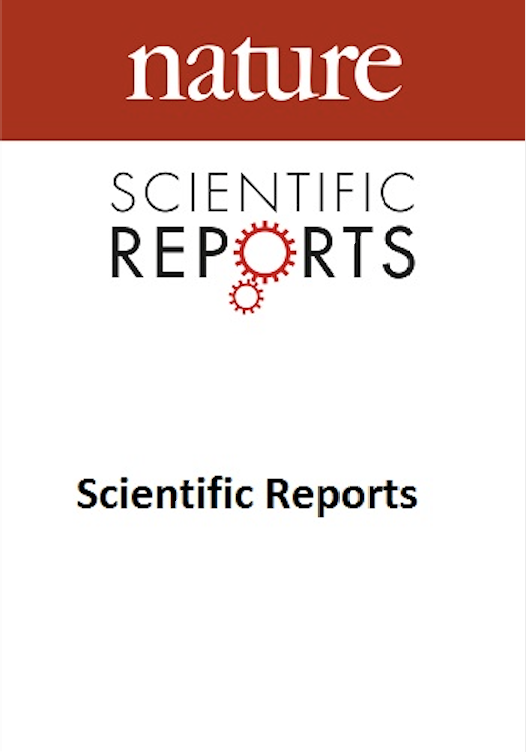
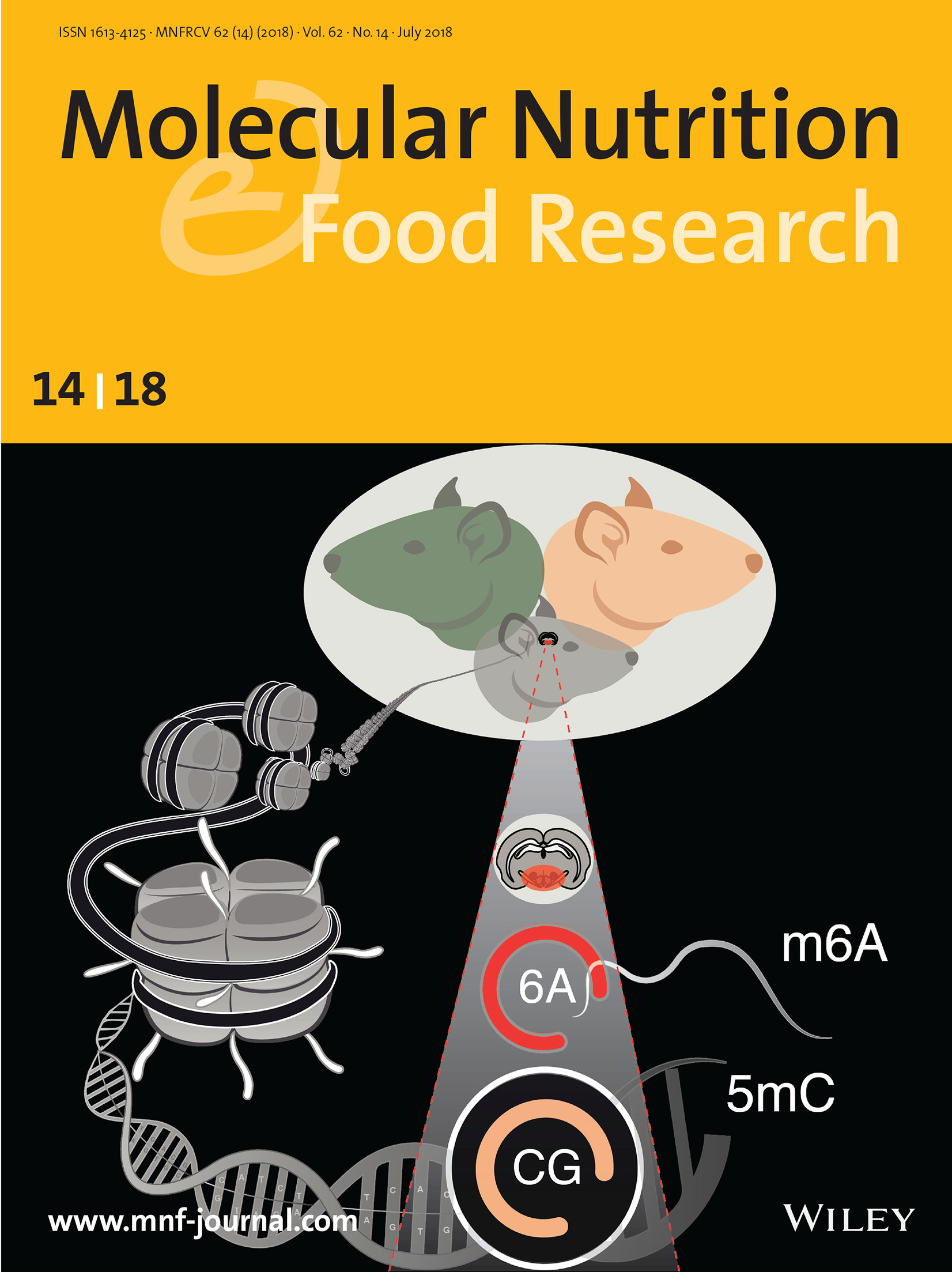
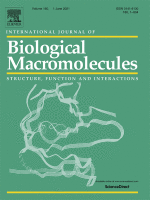

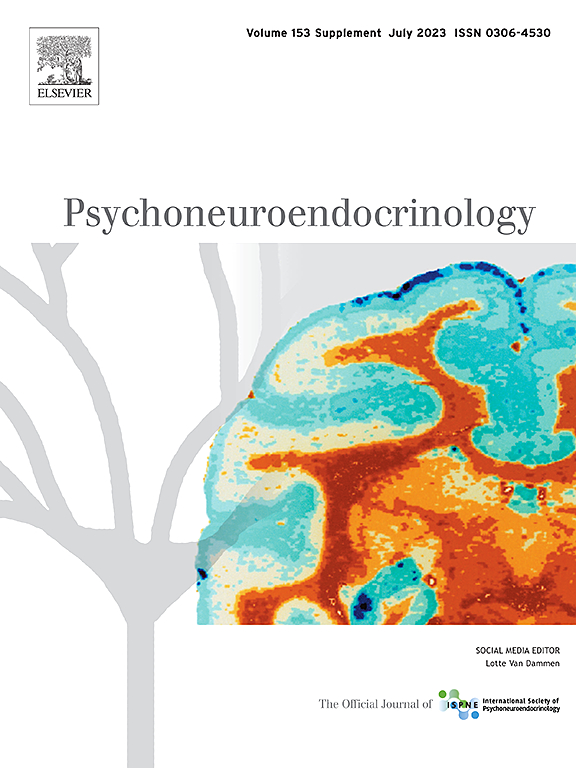
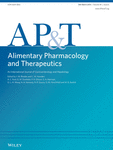
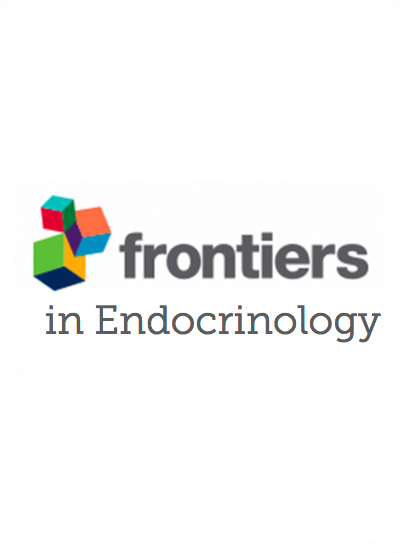
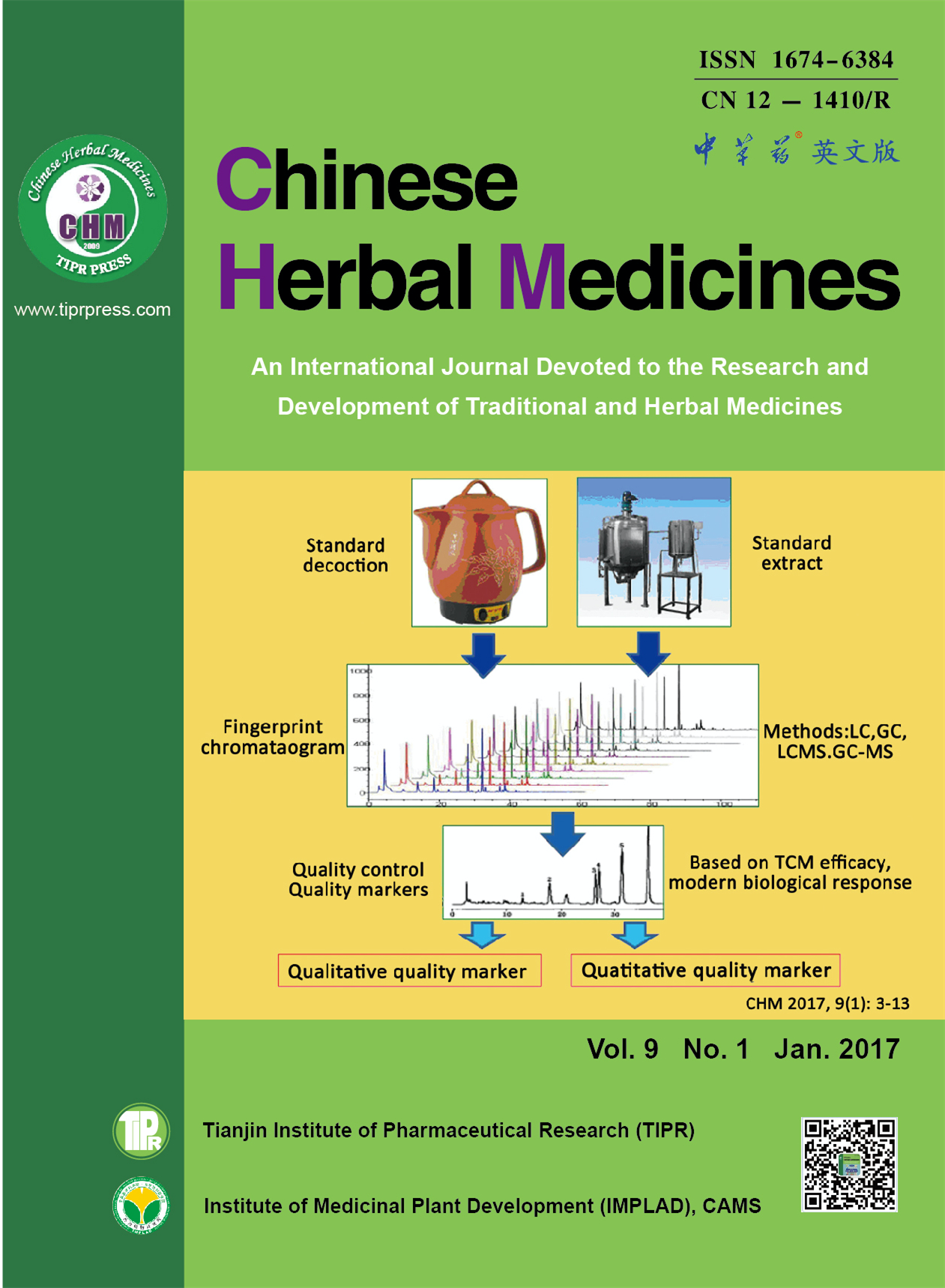


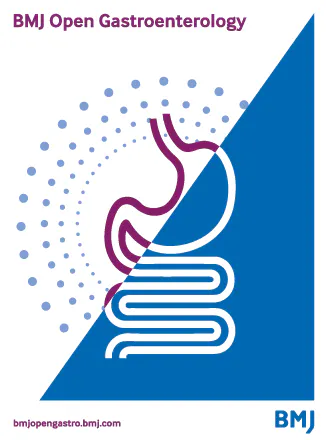
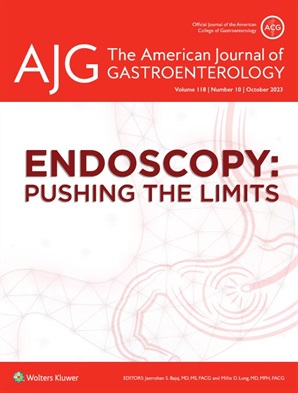
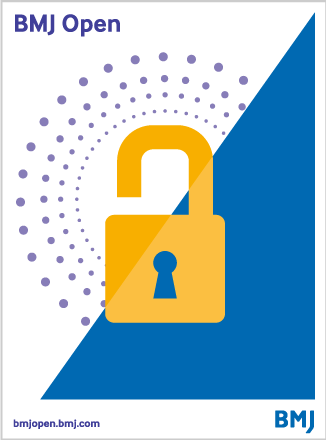
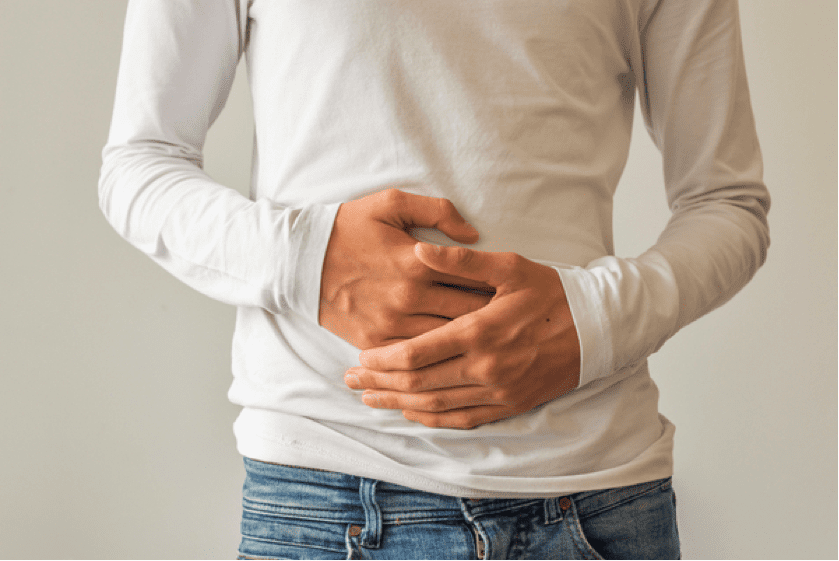
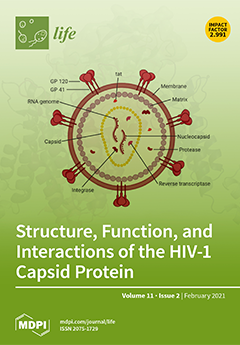
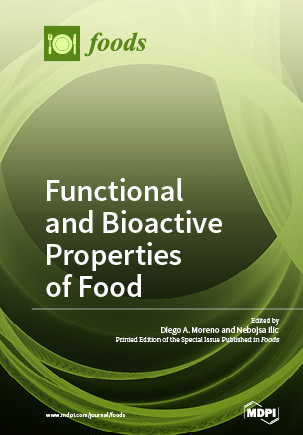
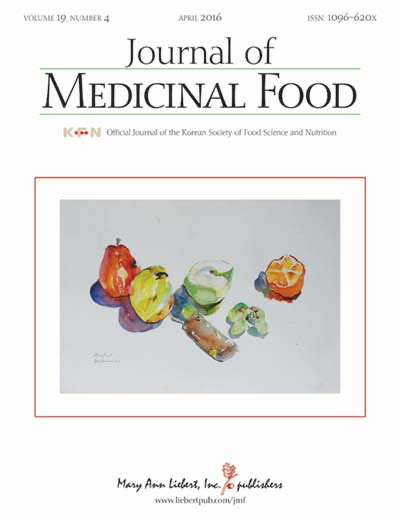
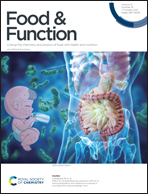
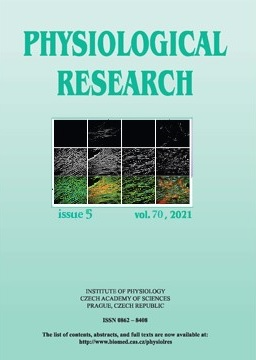
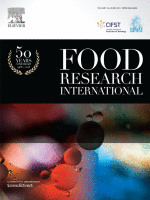
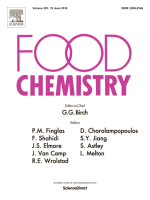
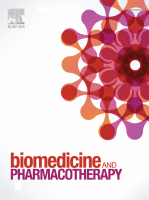


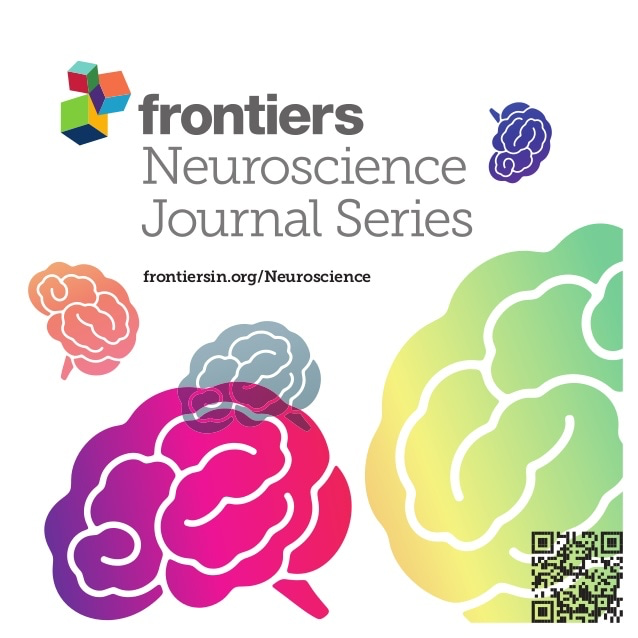


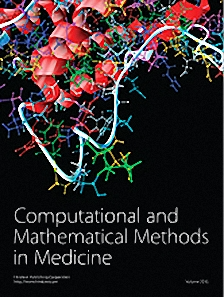
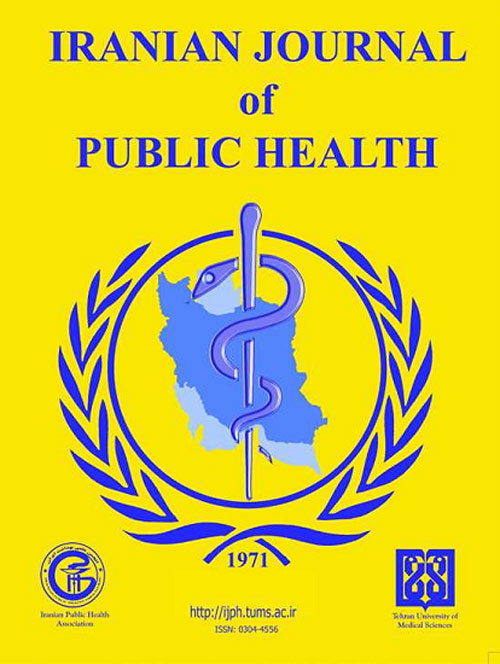
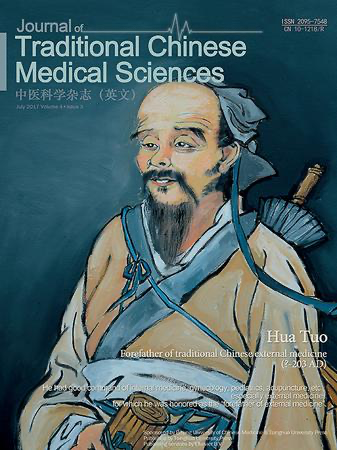
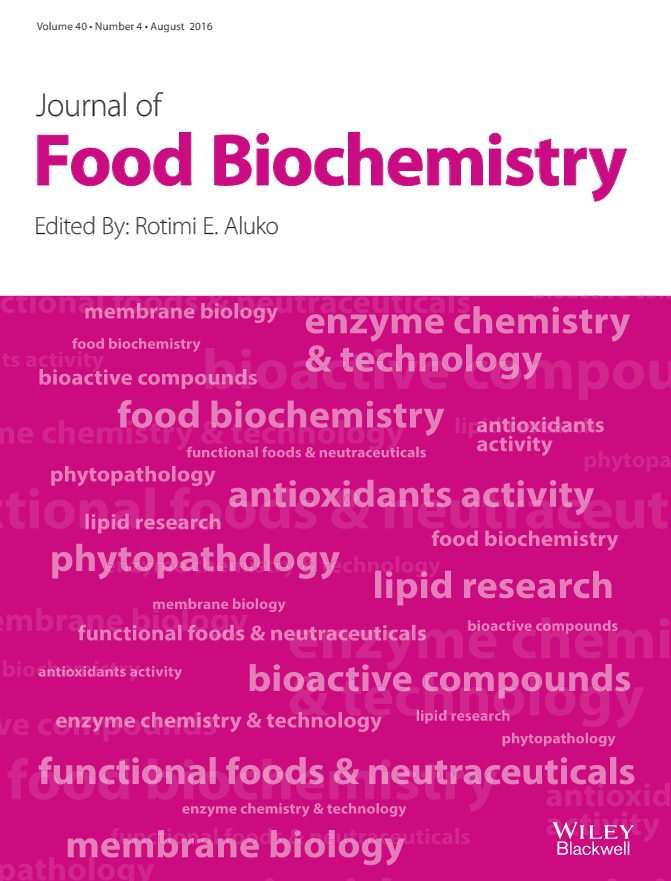
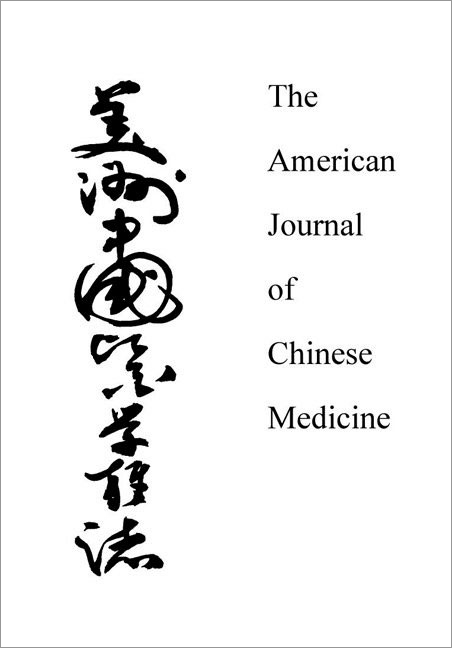
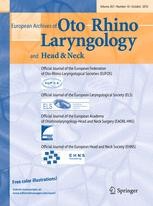


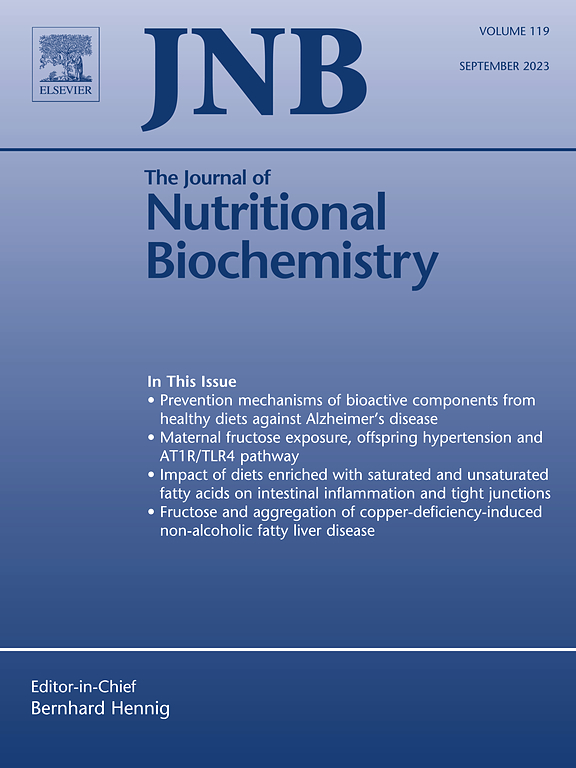
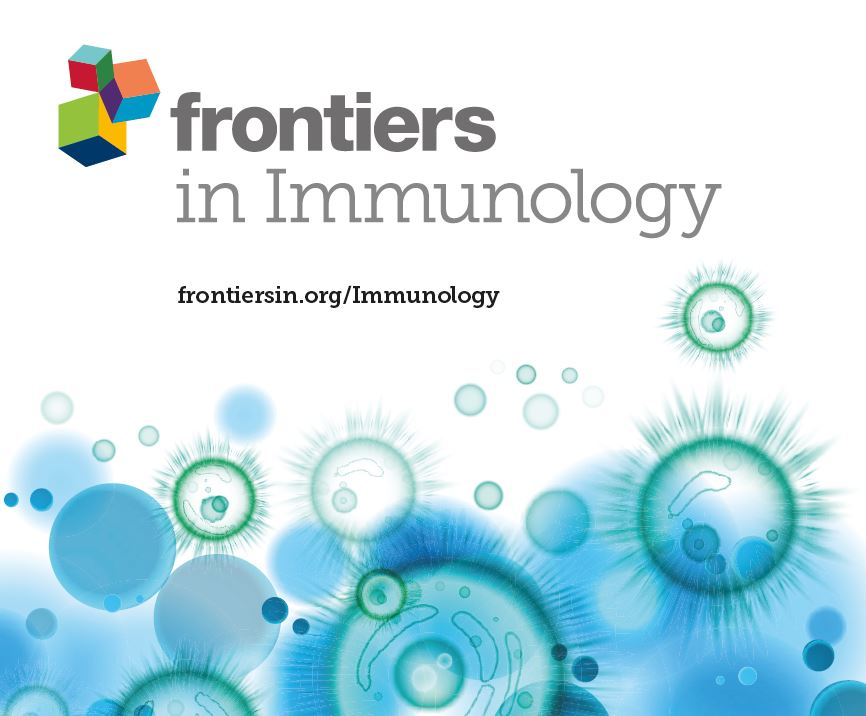
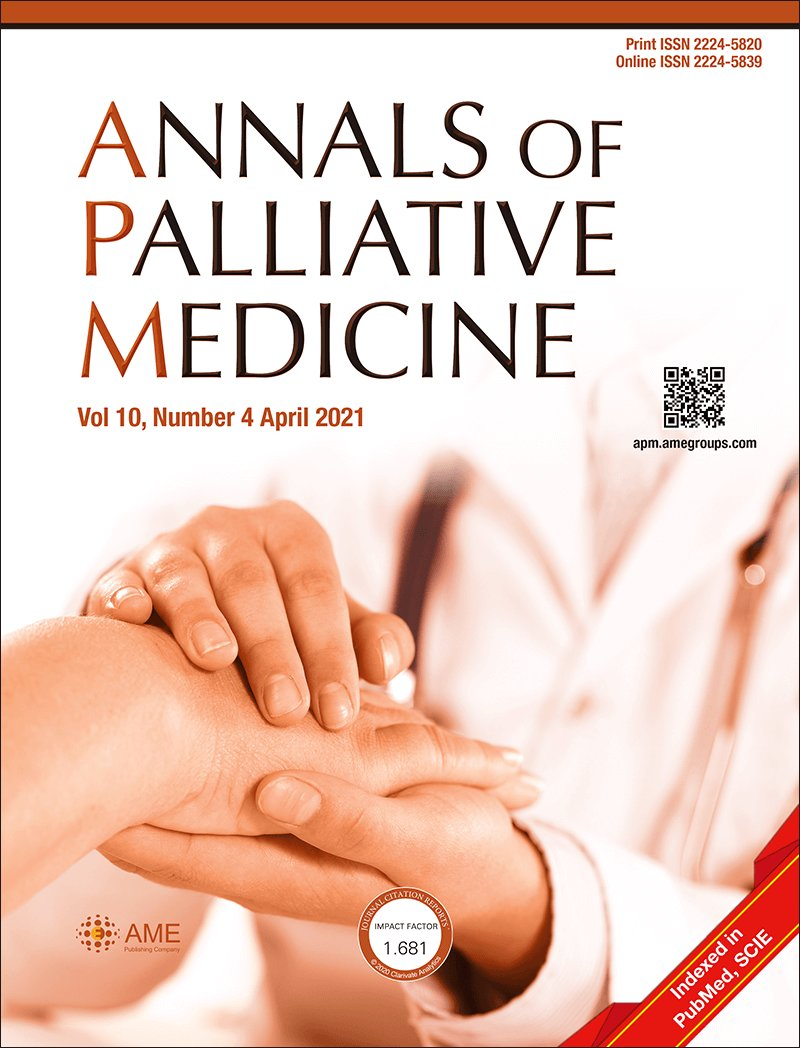
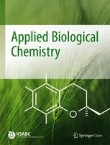
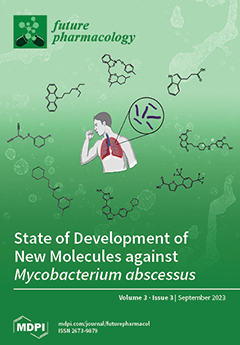
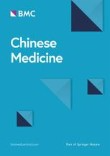
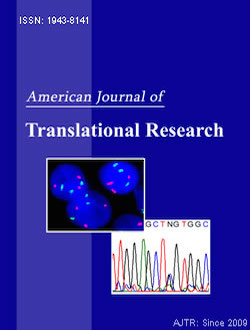
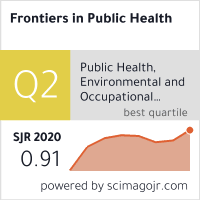
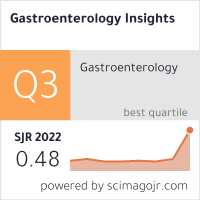
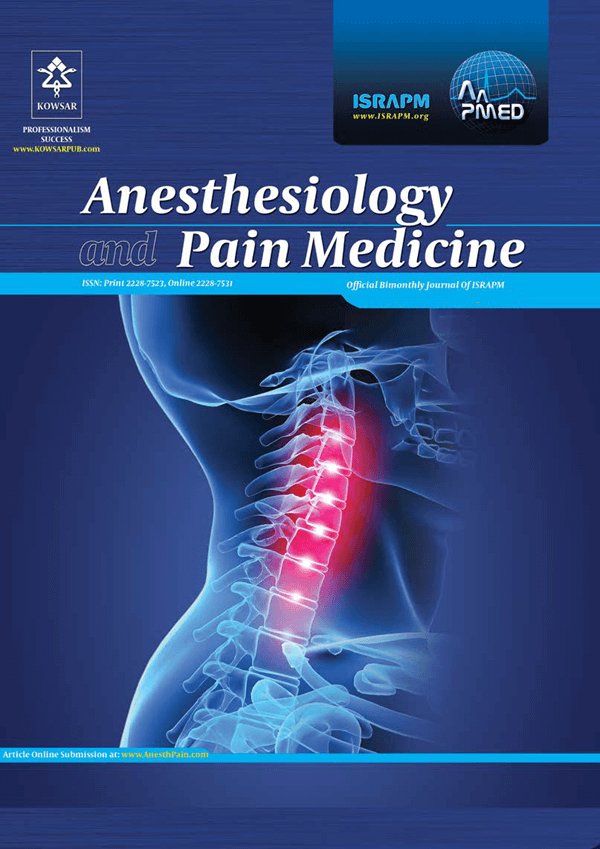
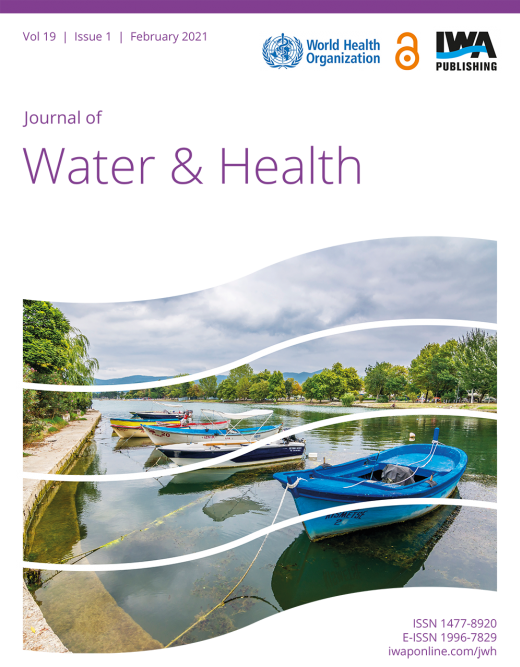
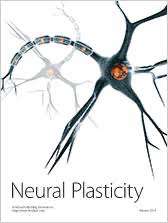

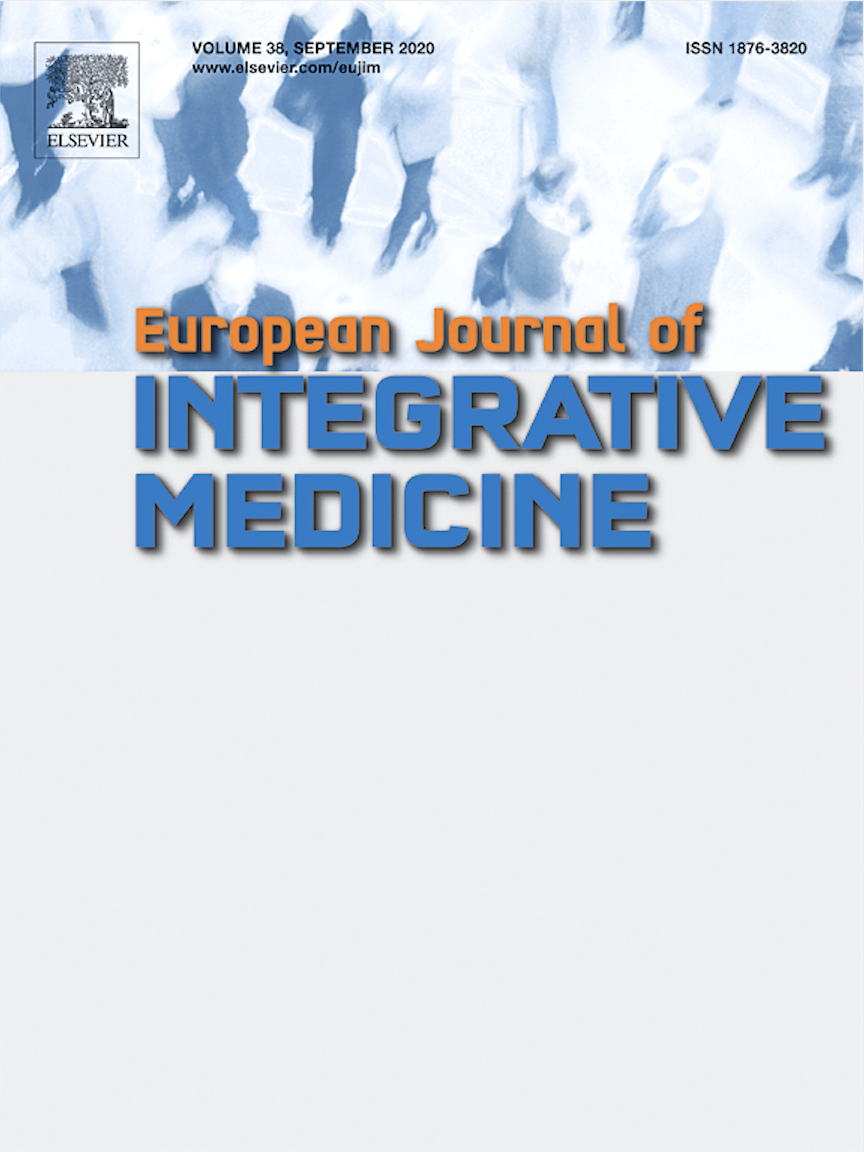
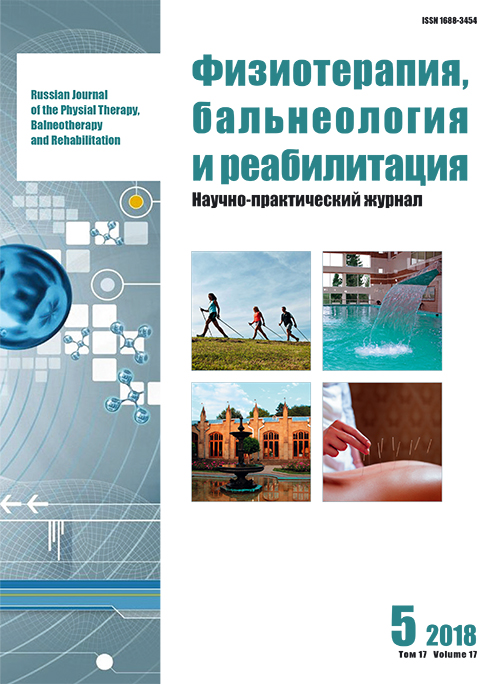

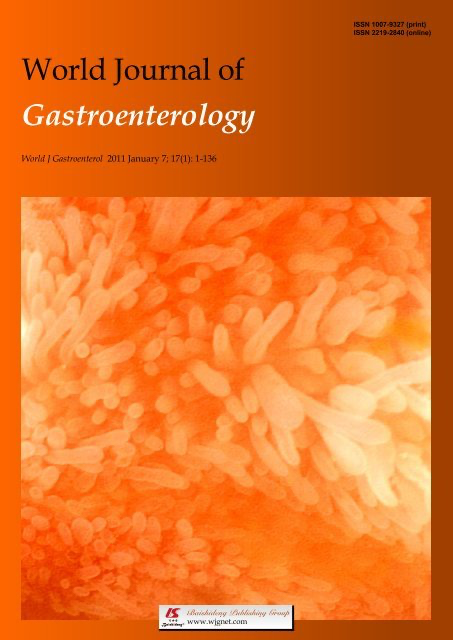


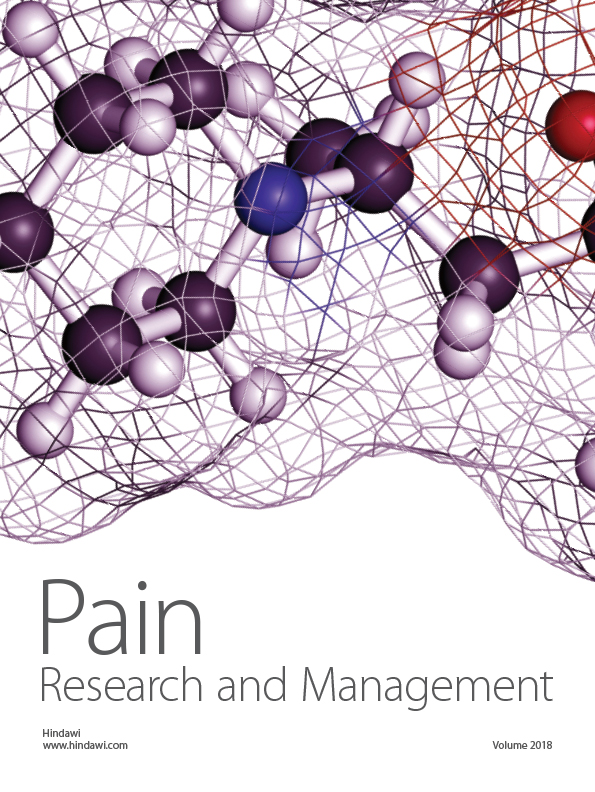
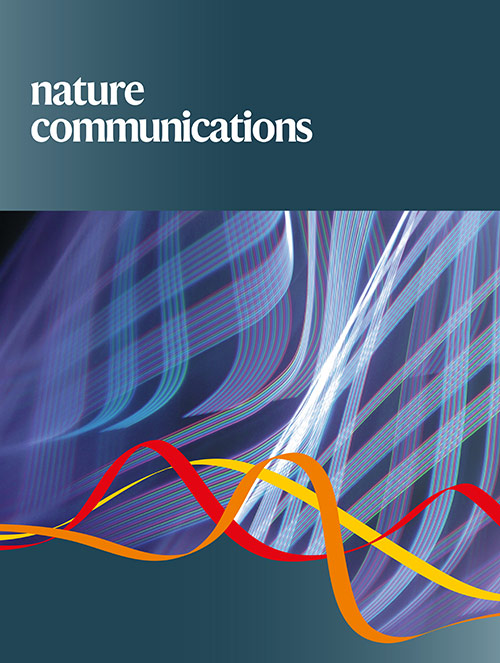
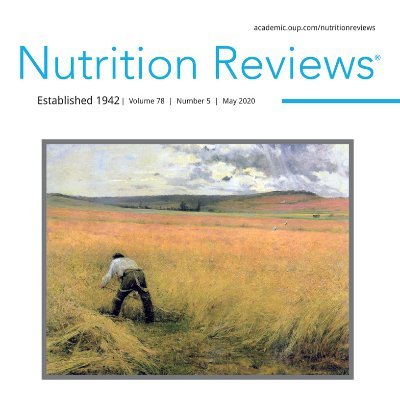
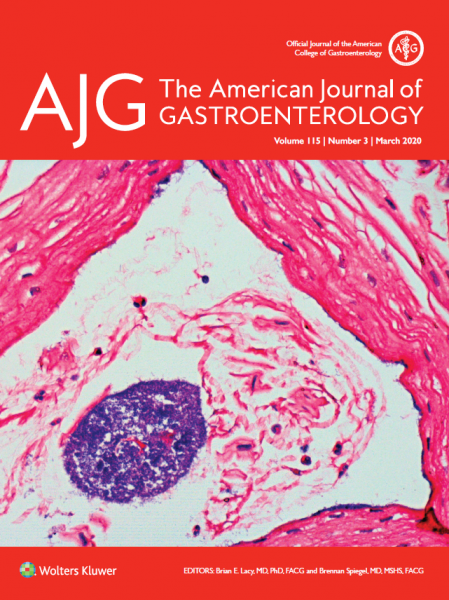
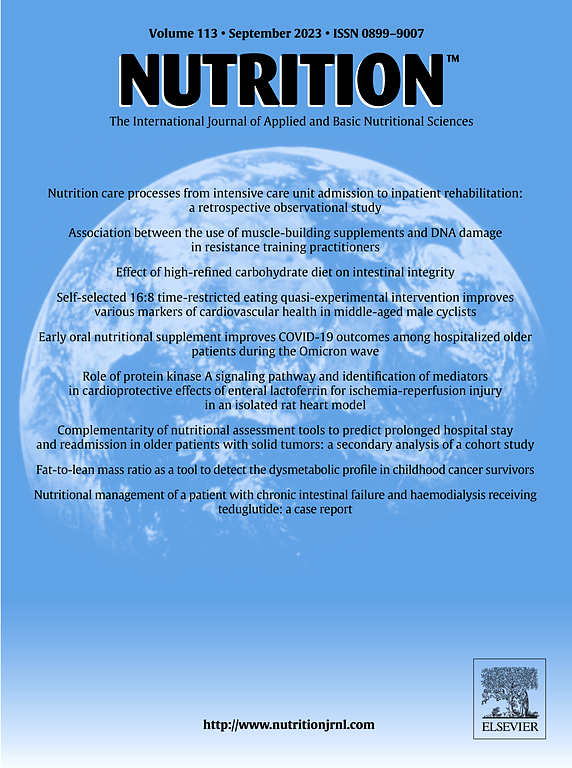
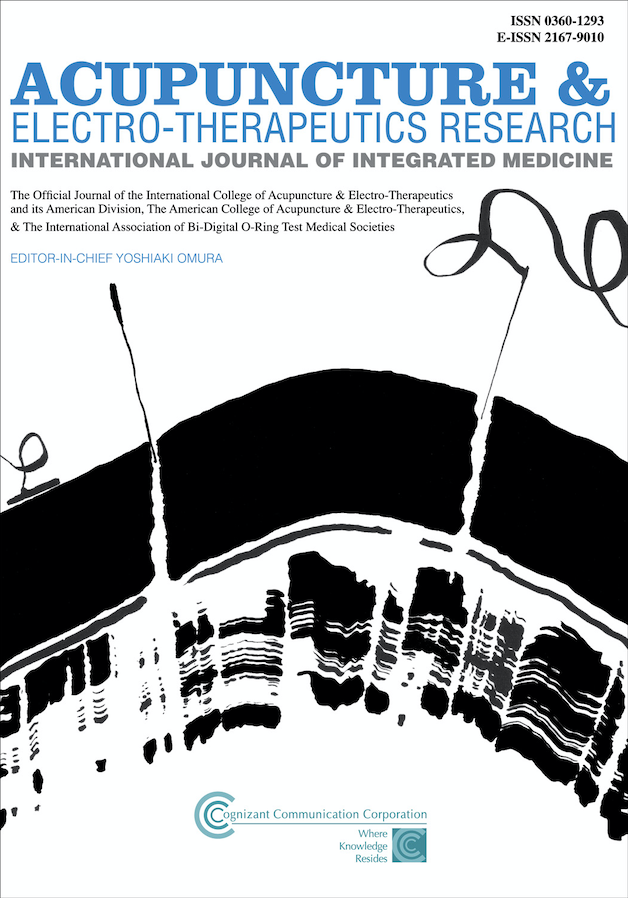
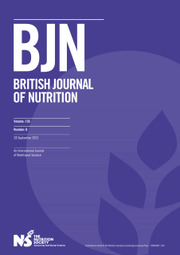
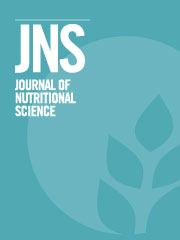
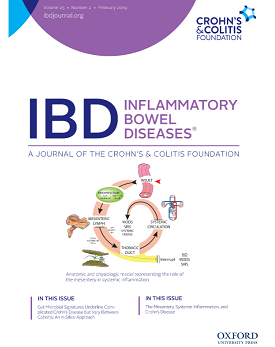


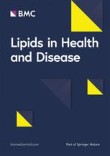
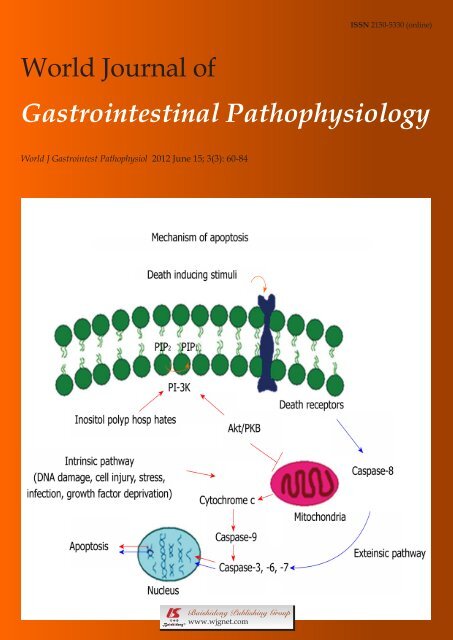
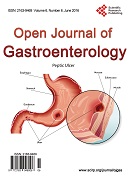
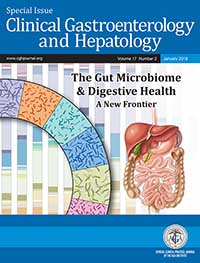
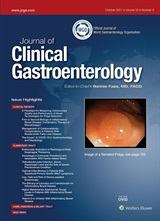
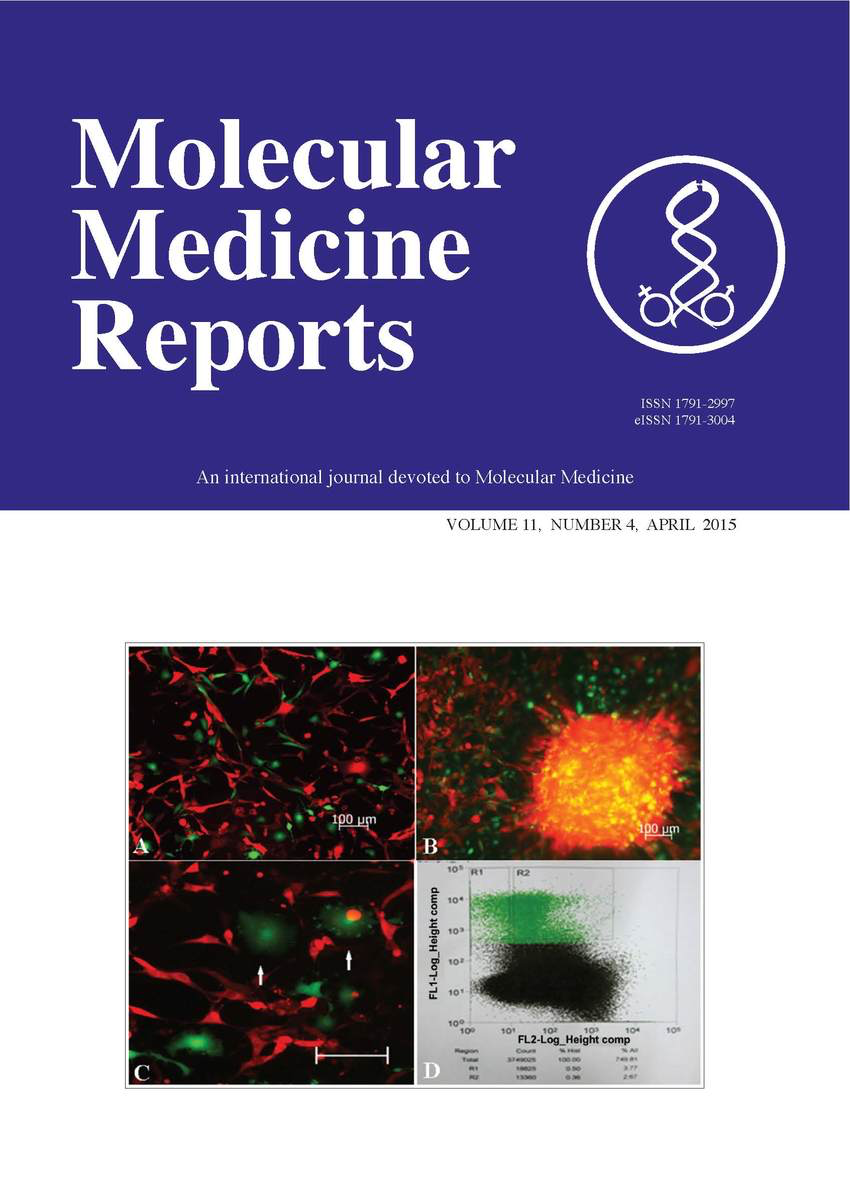
Don't know why DOI doesn't work —Adrian Y 14 Sep 2023